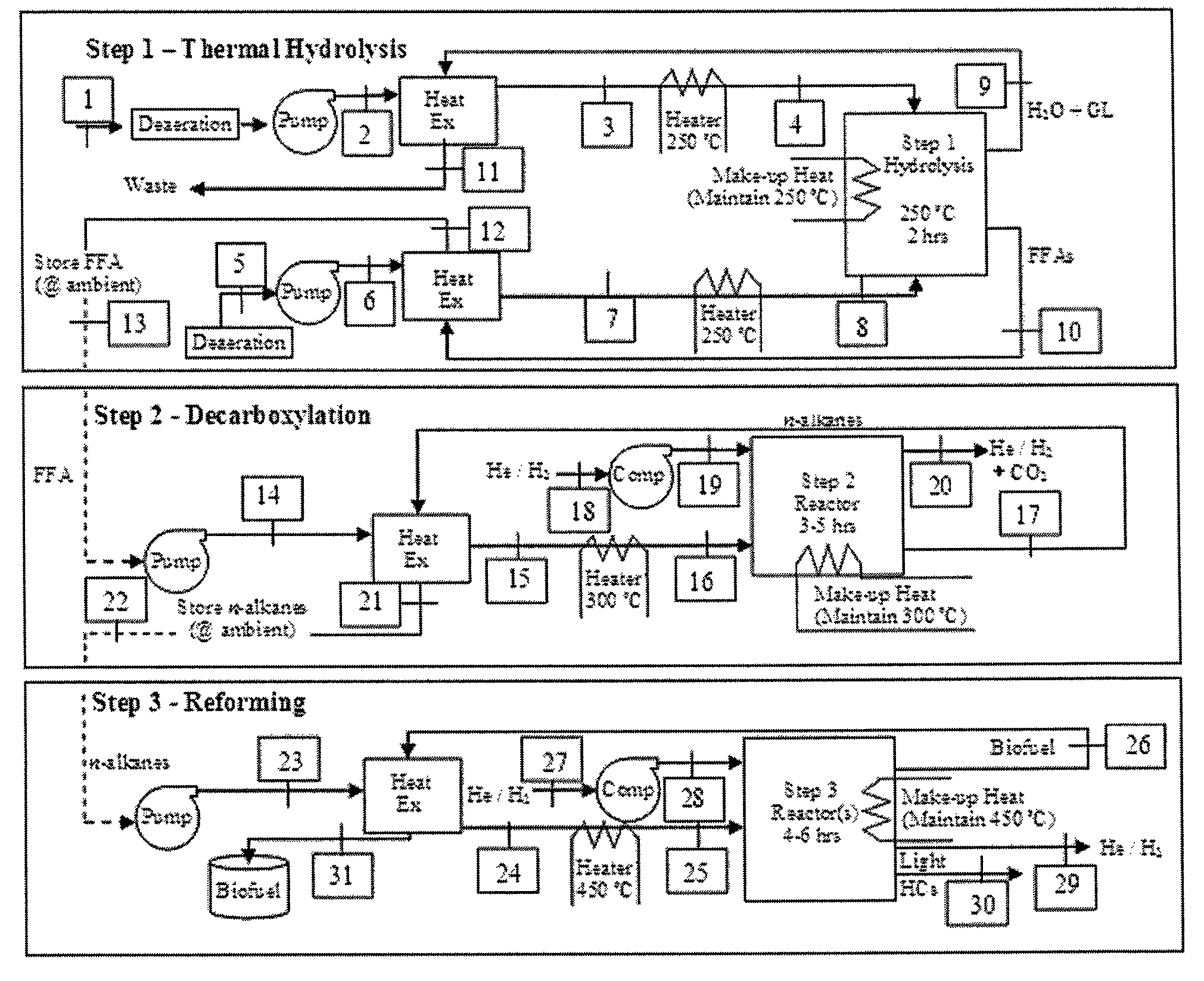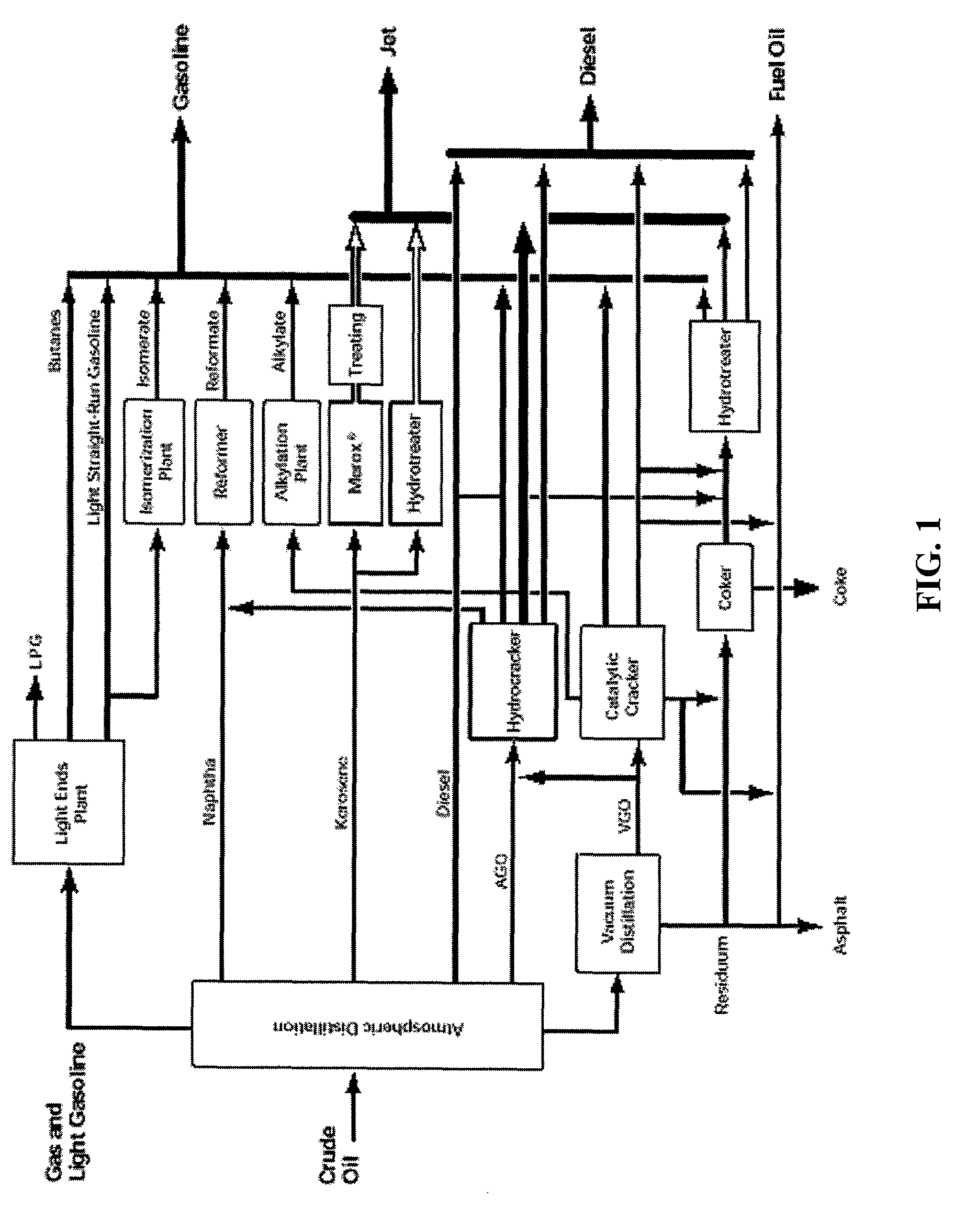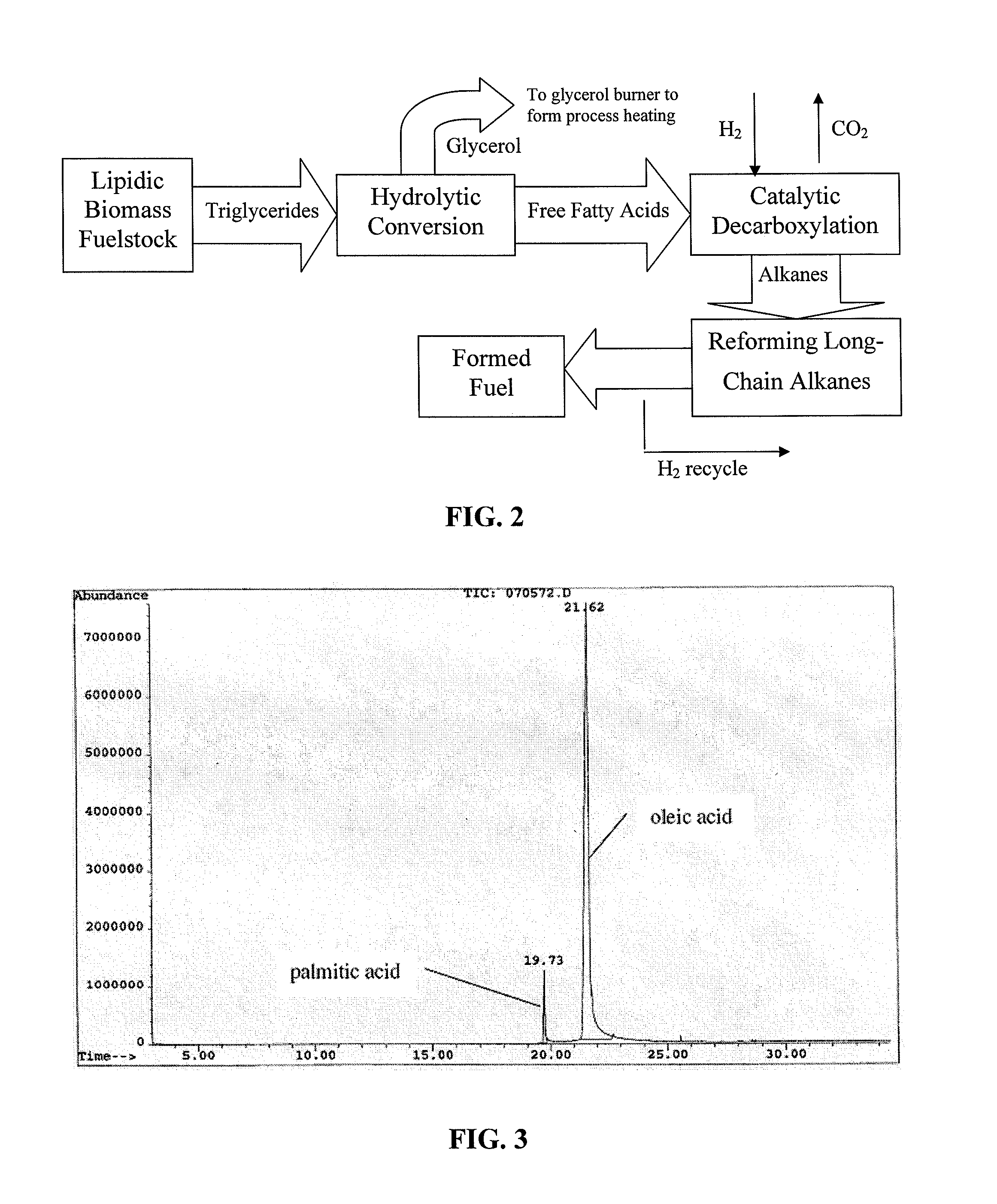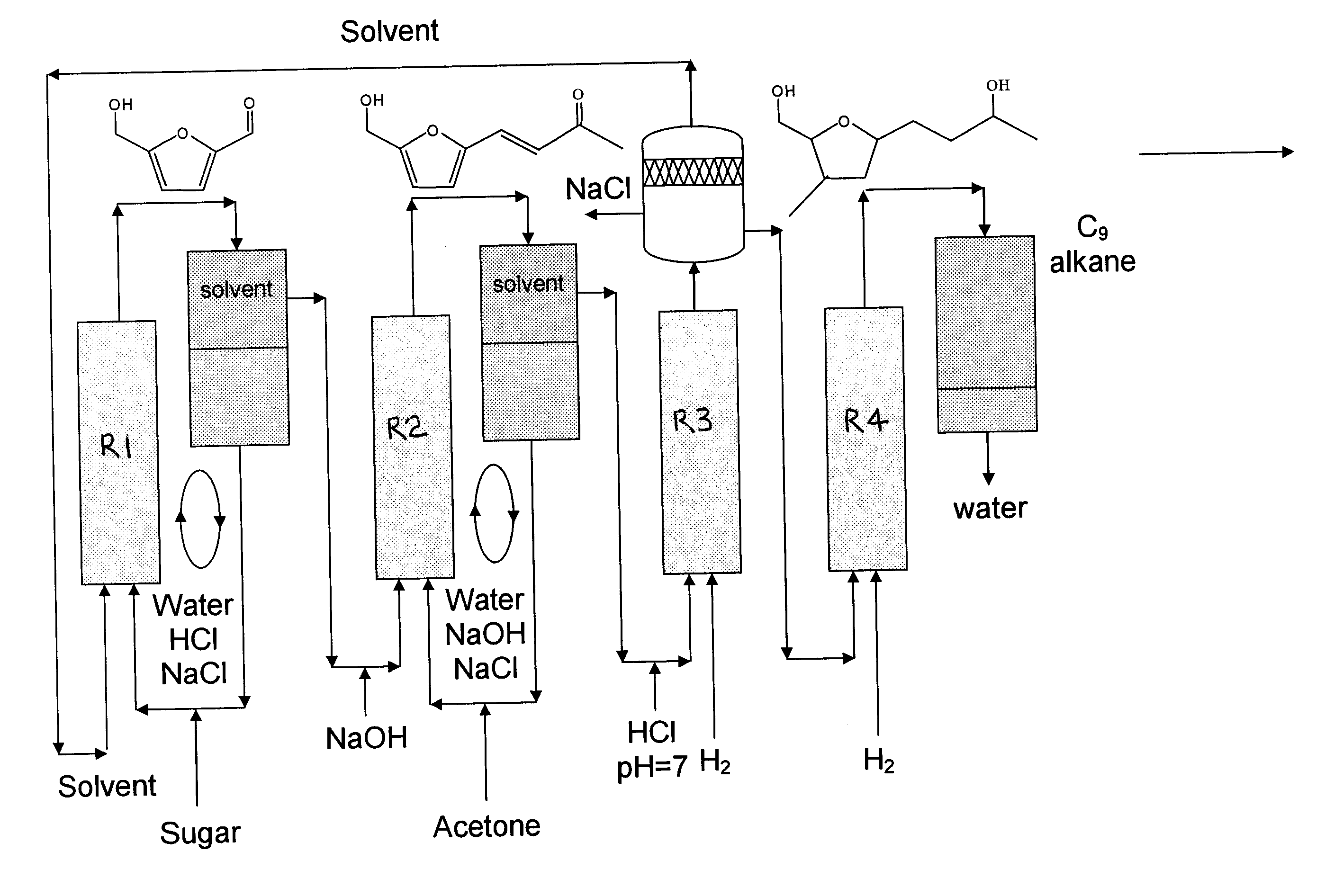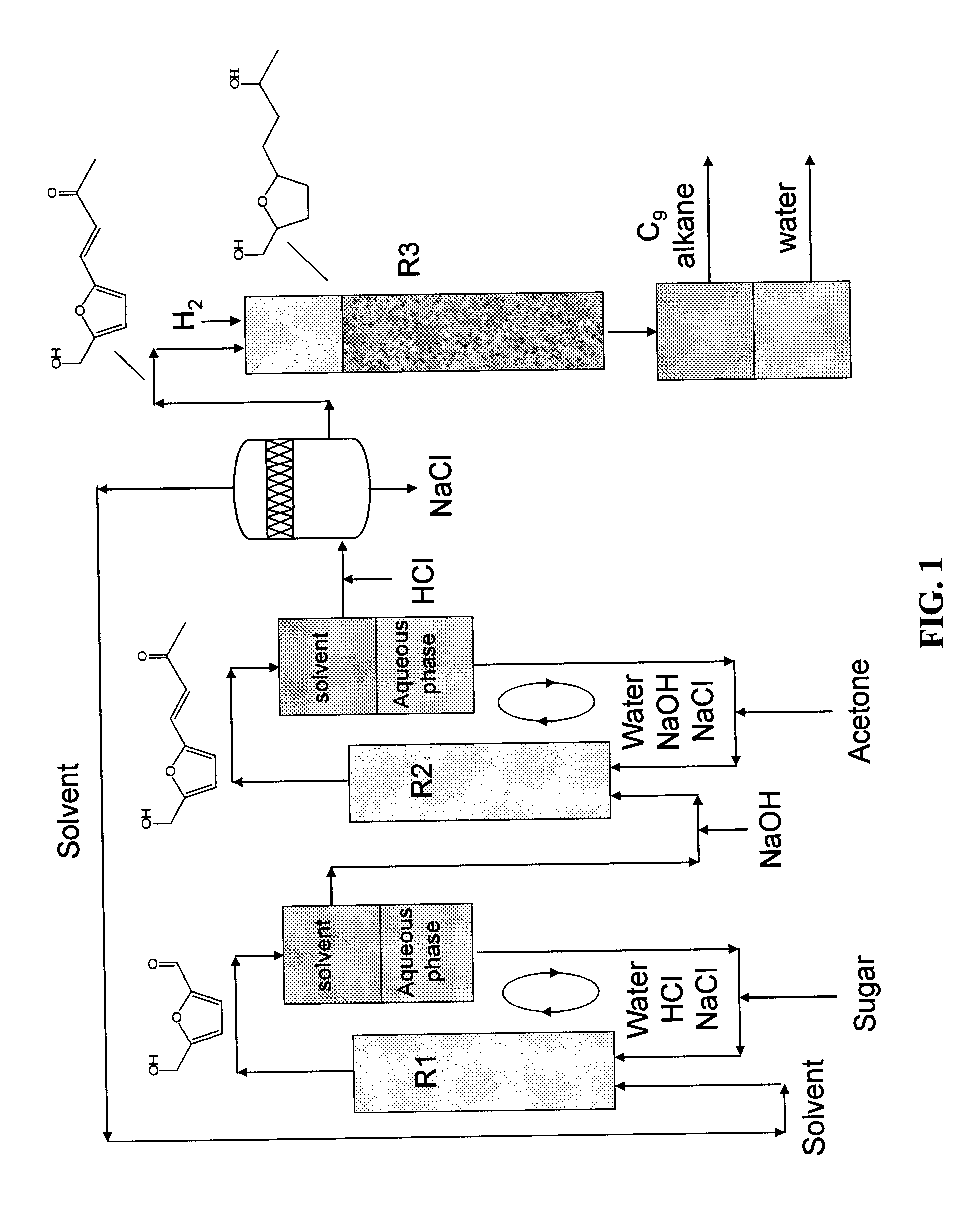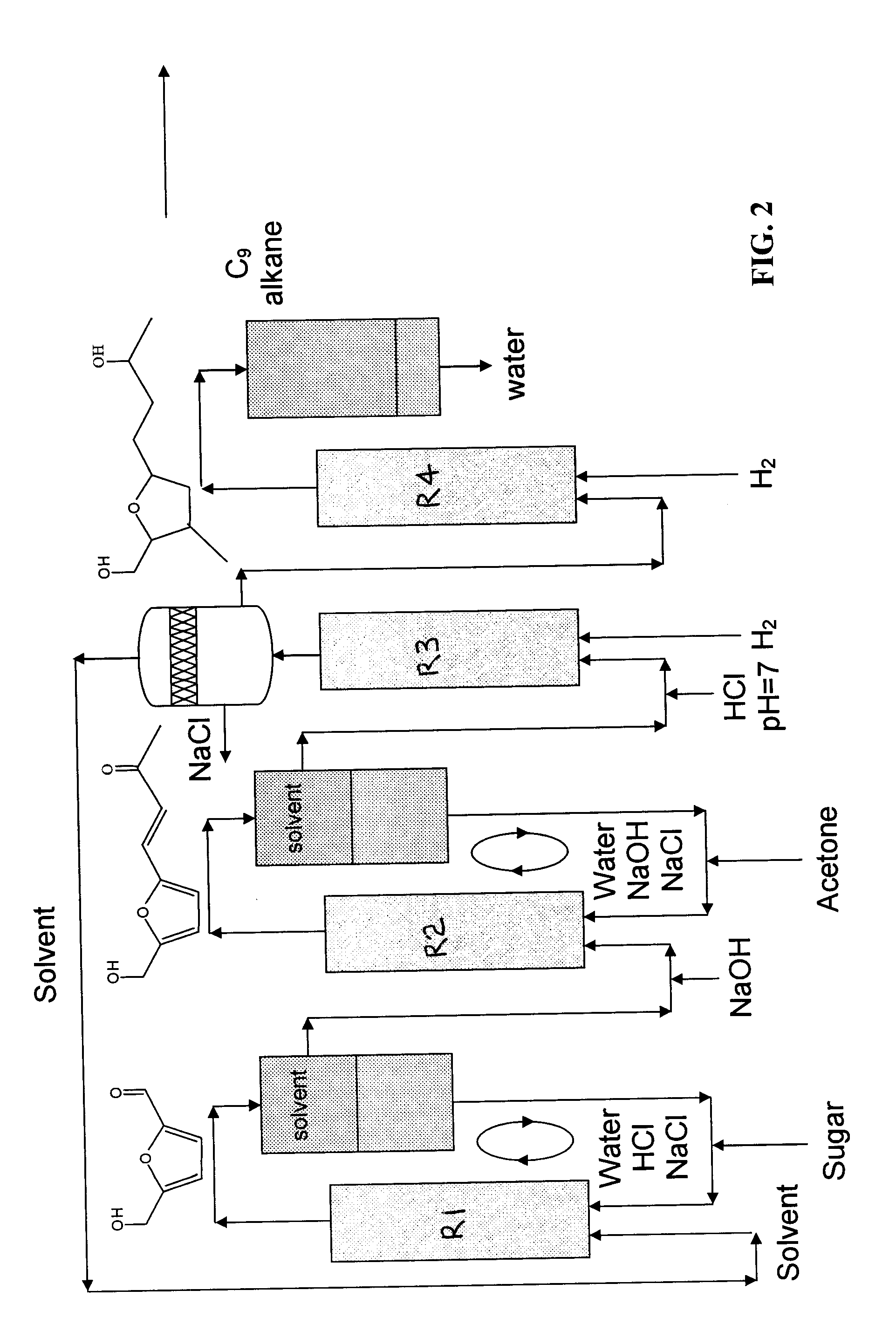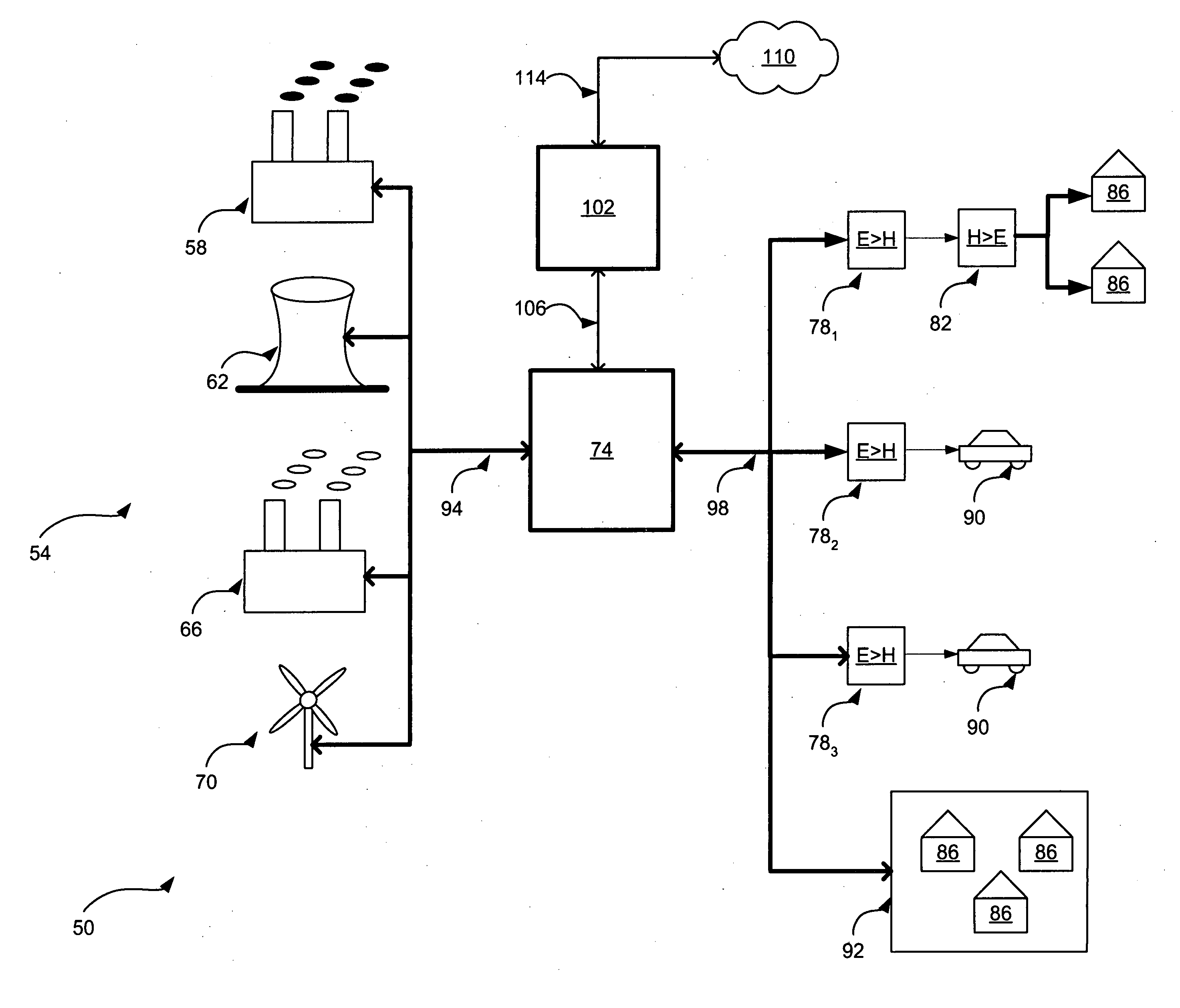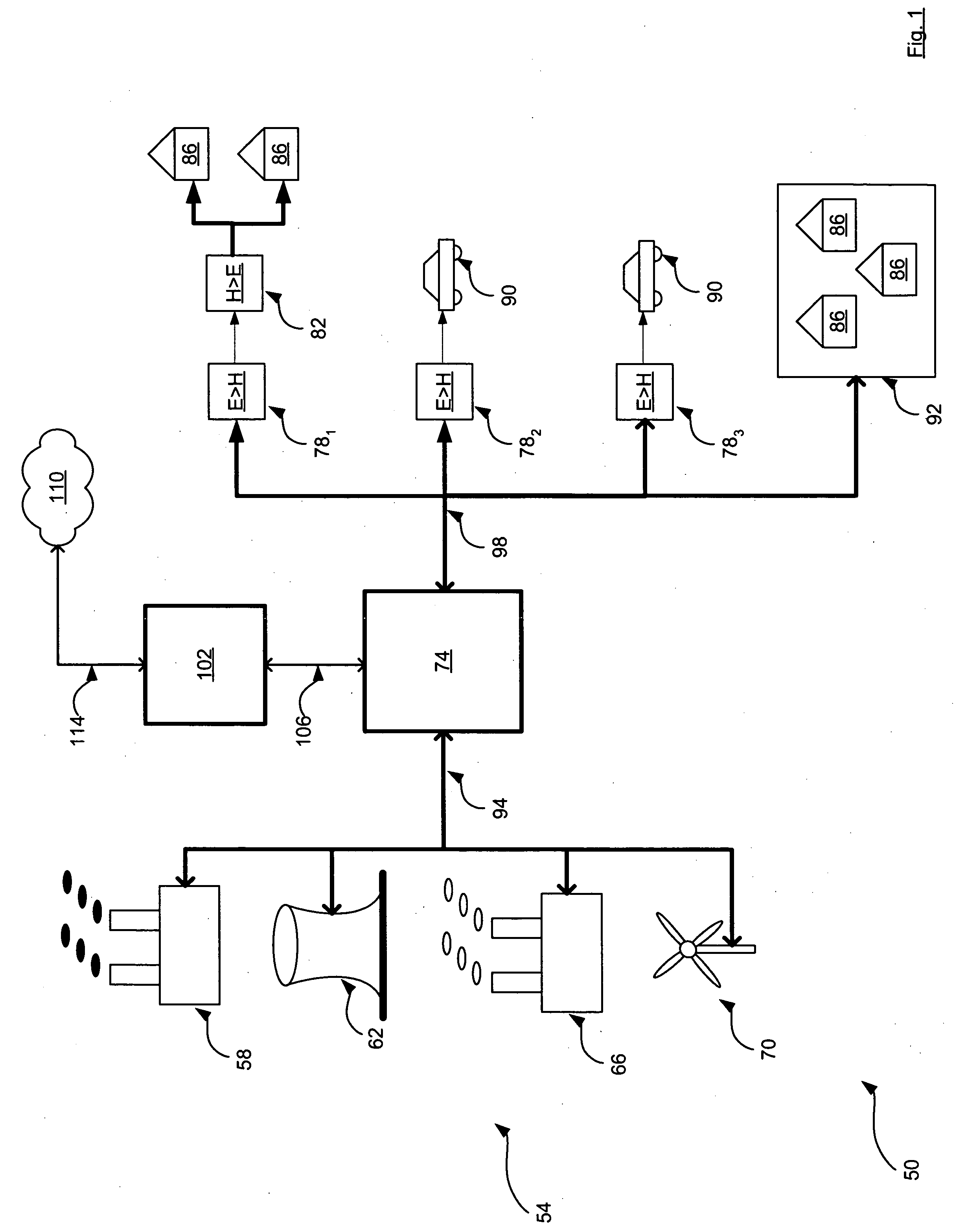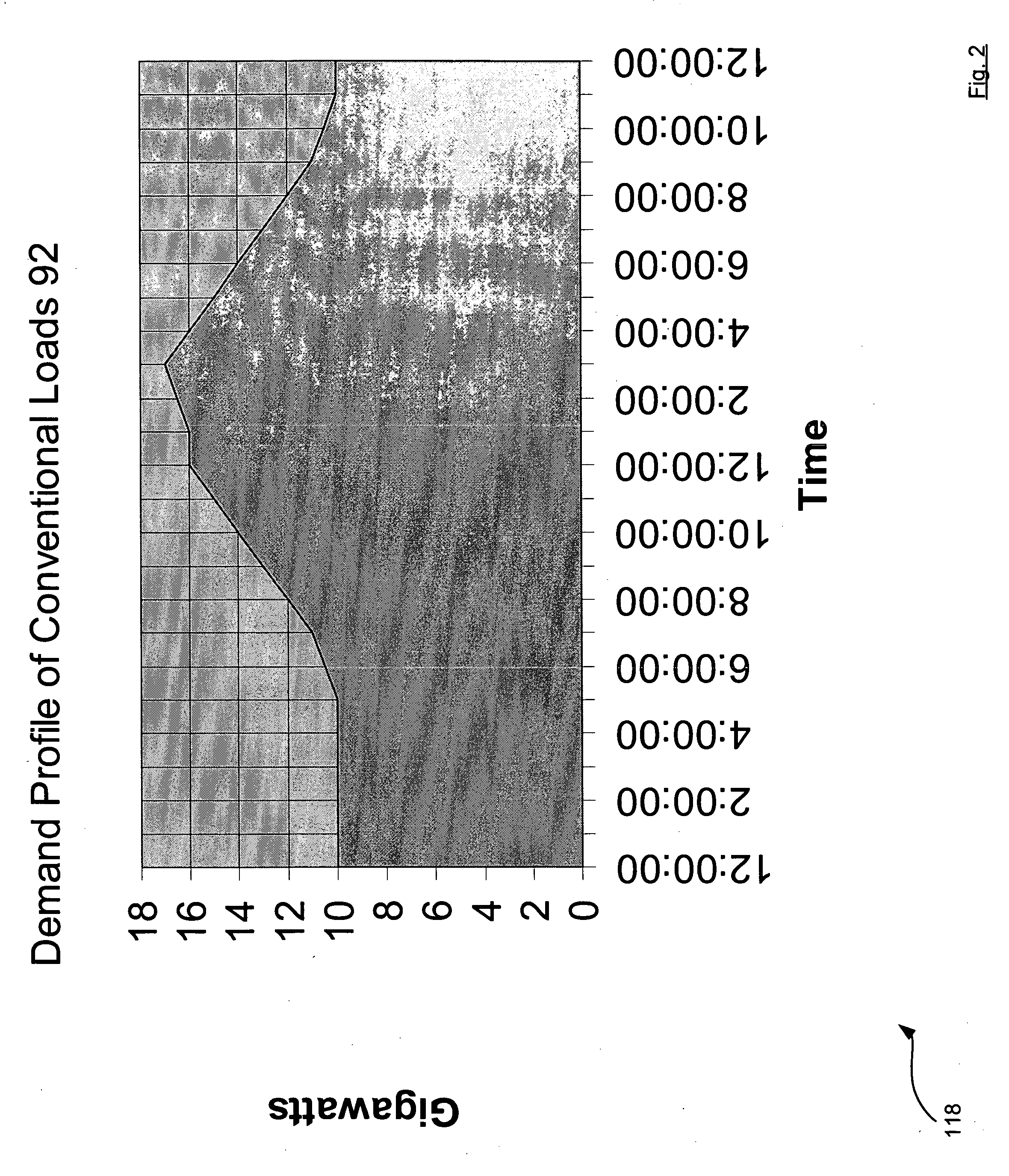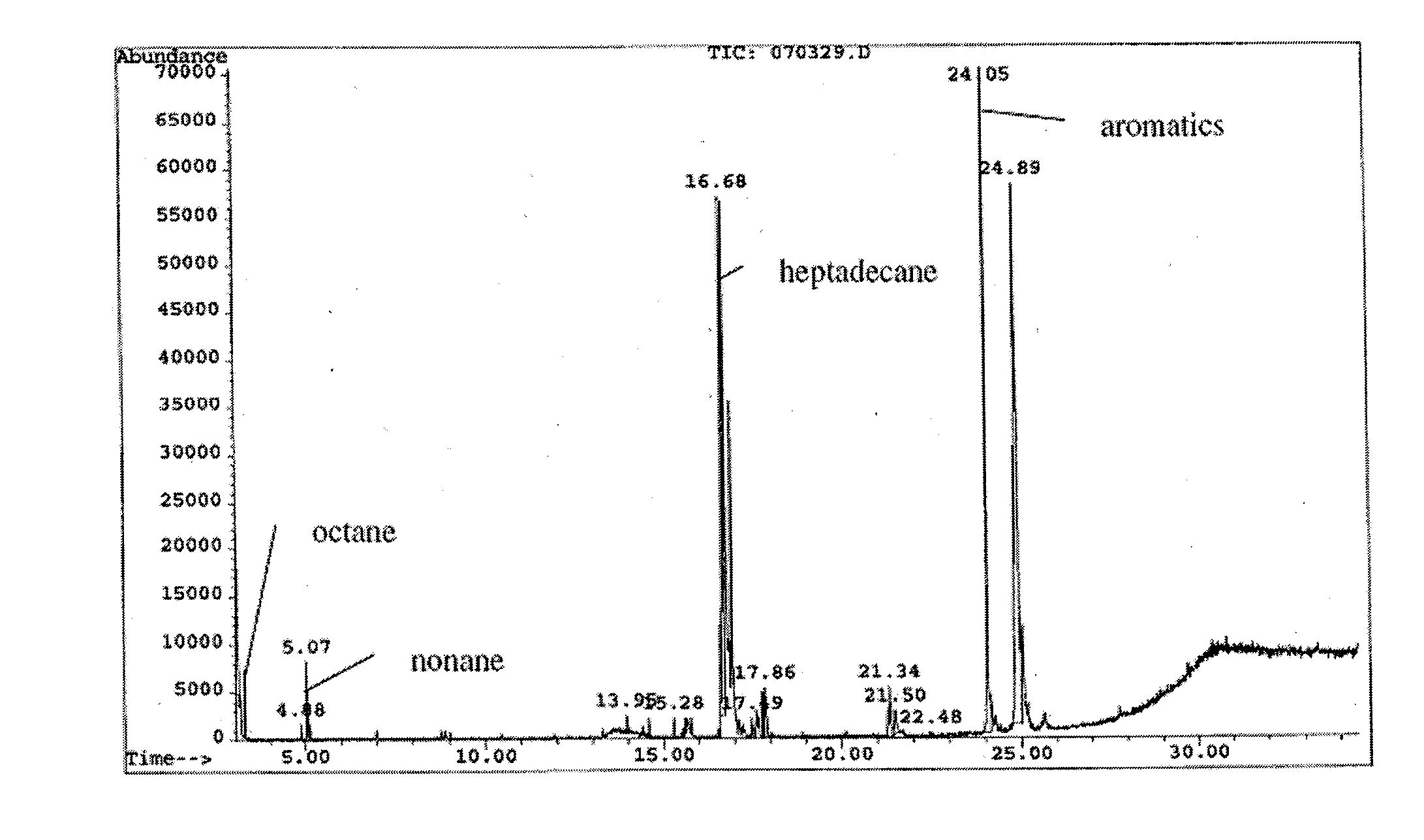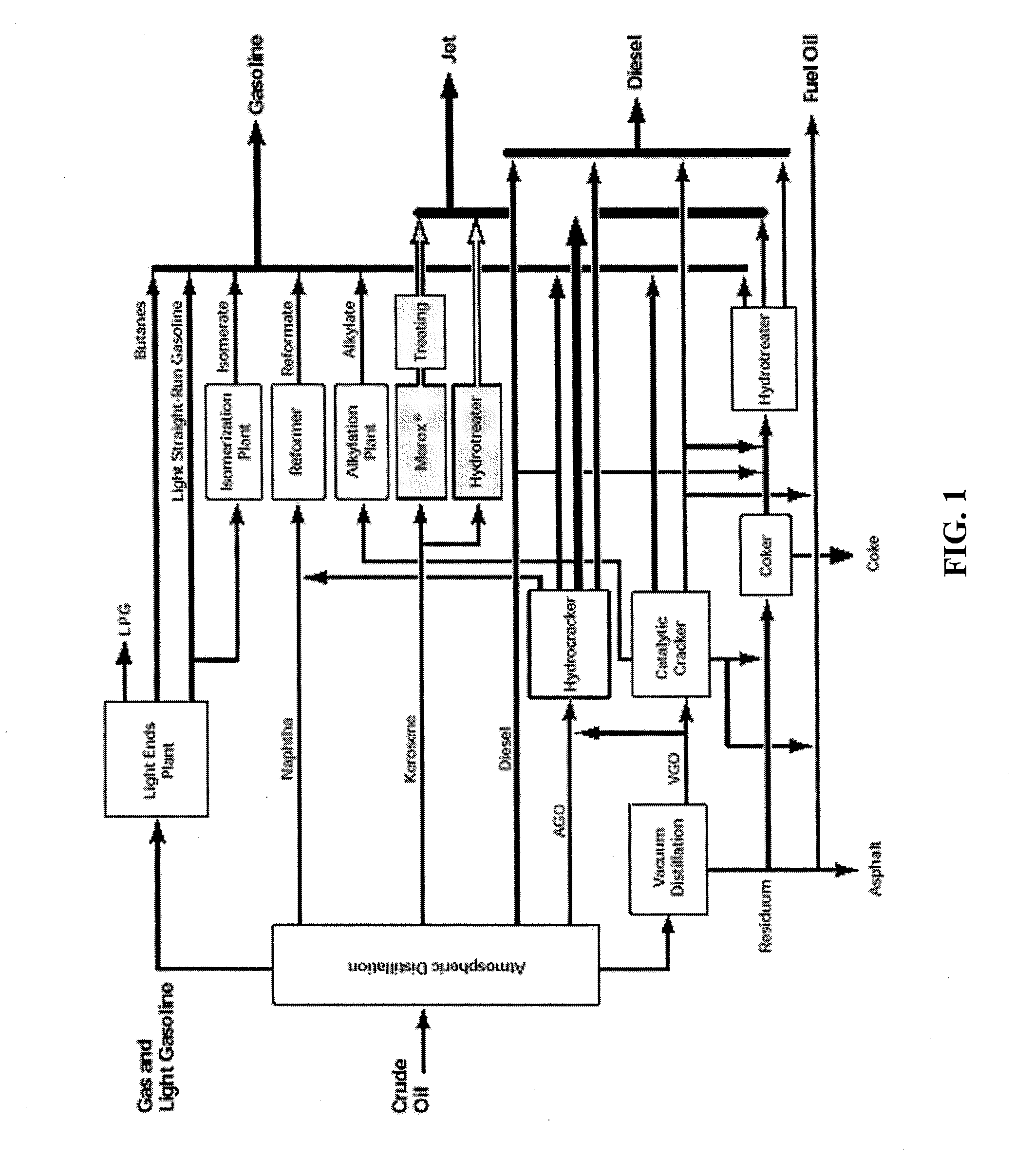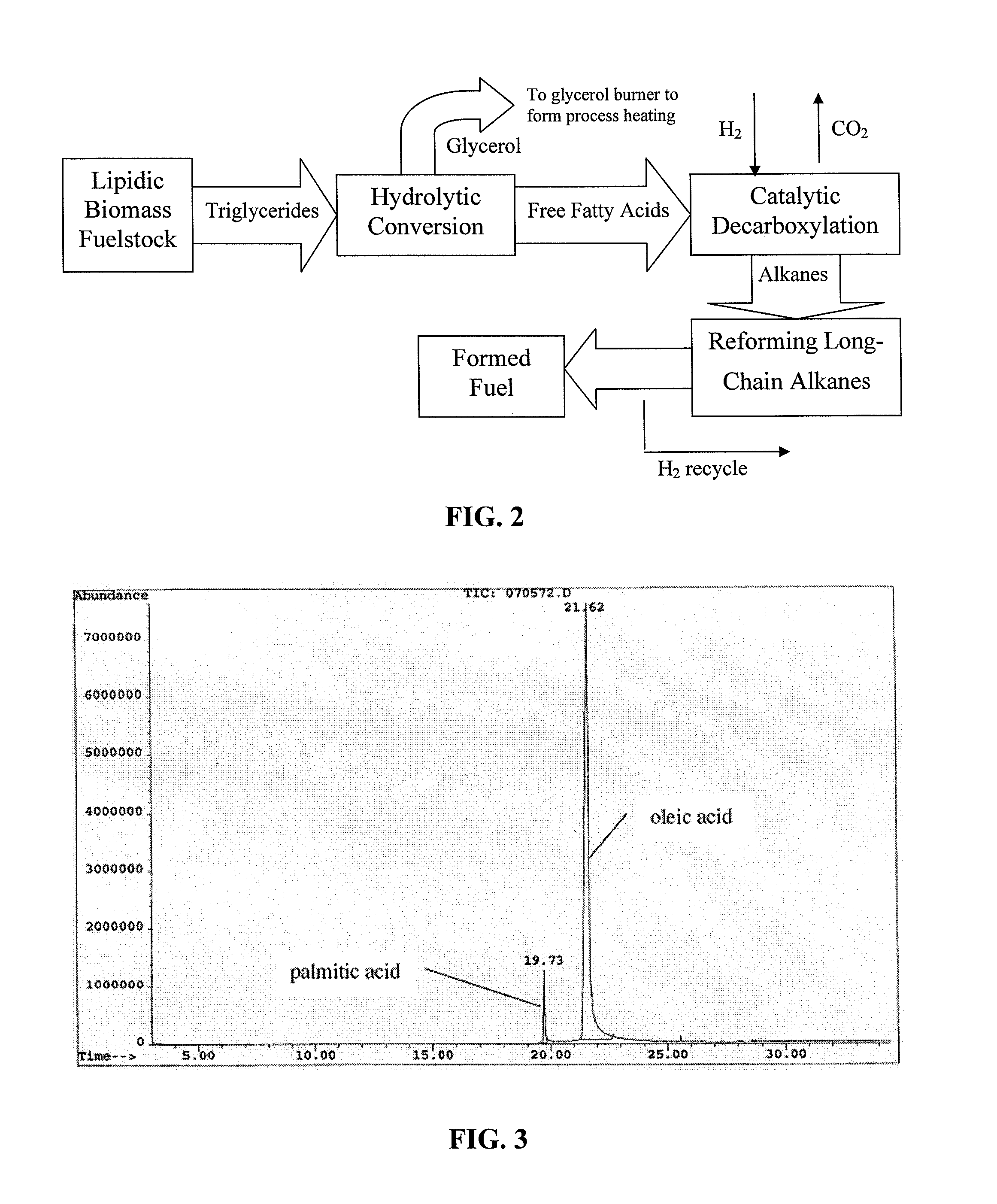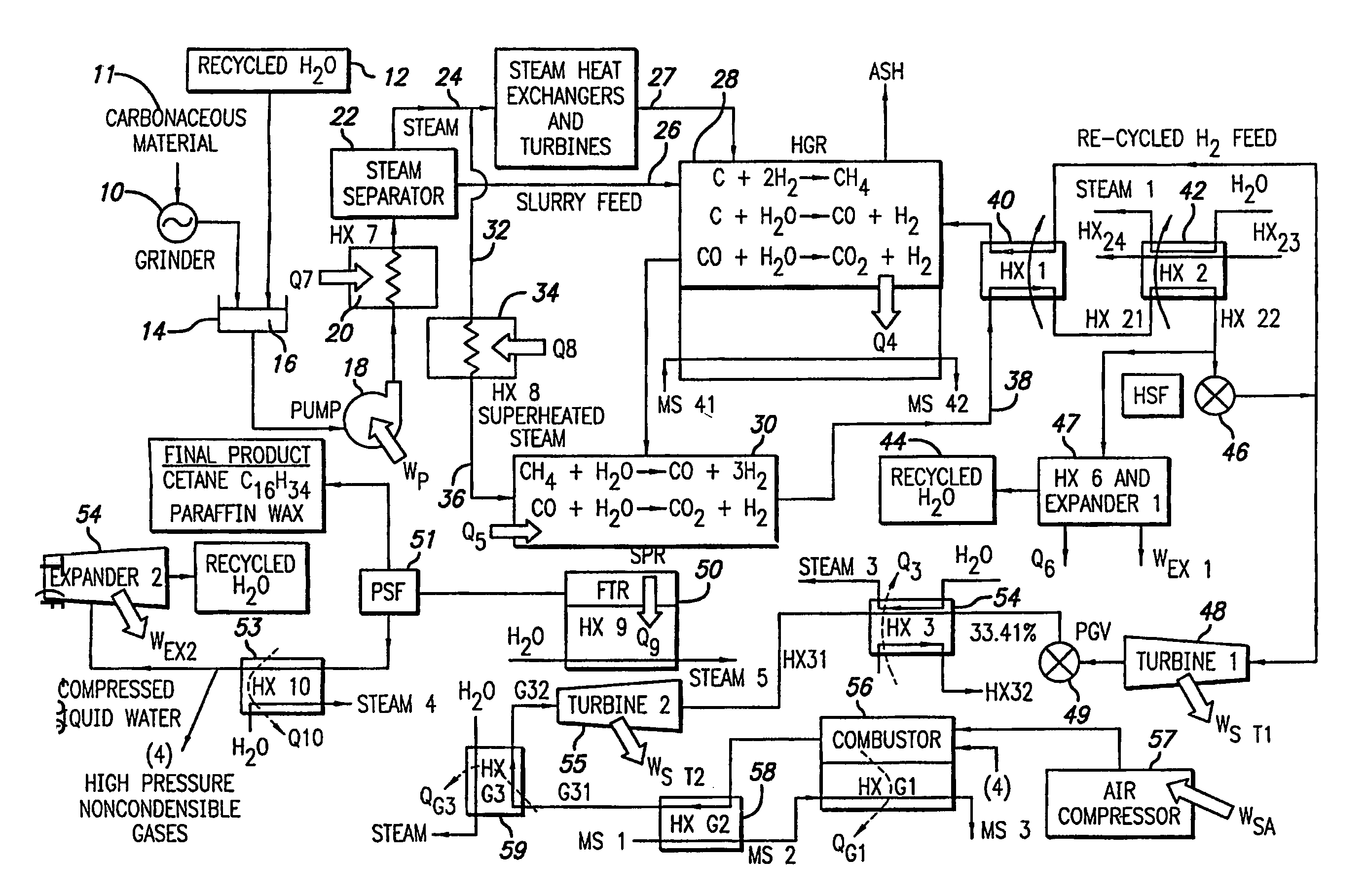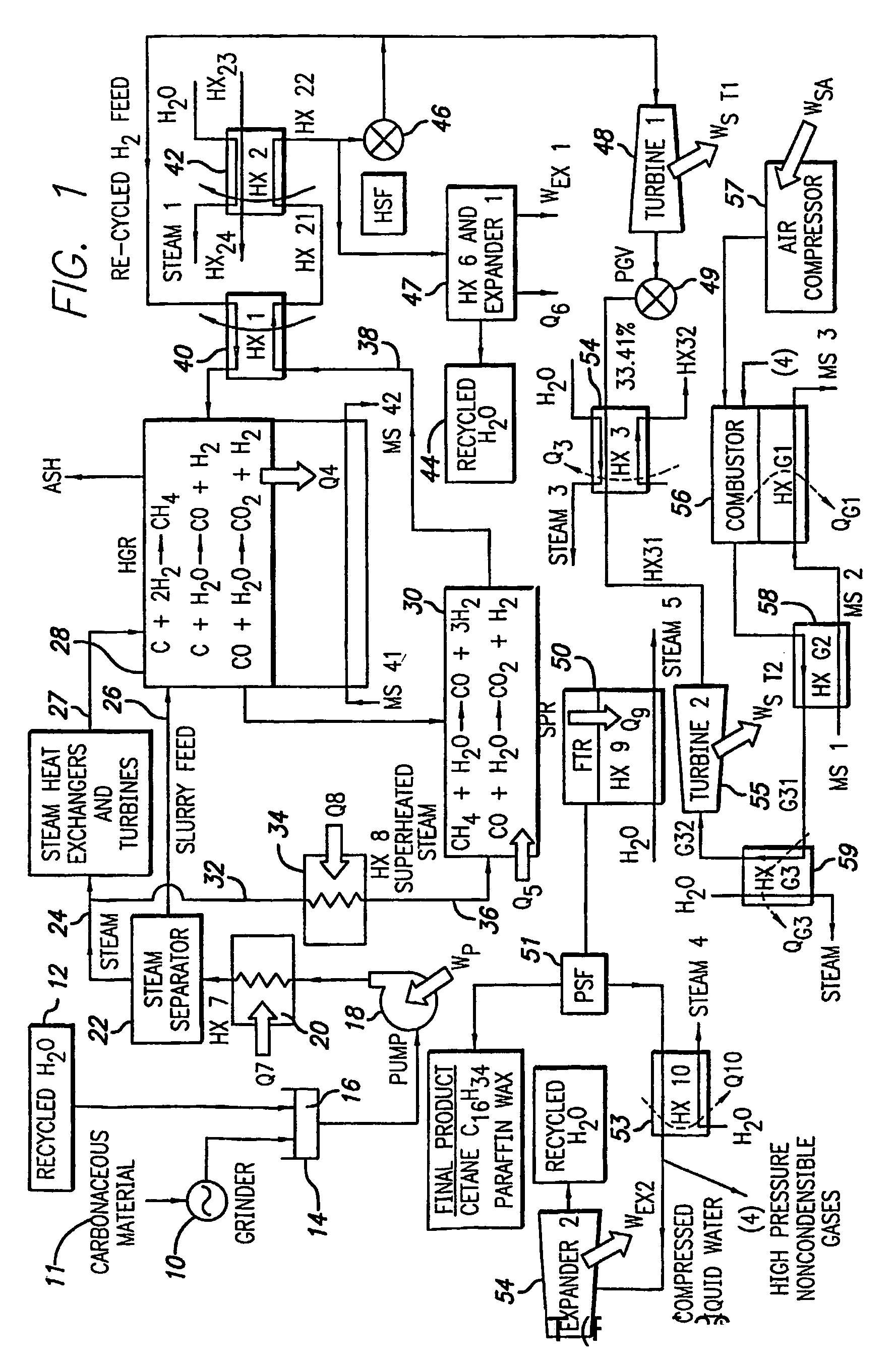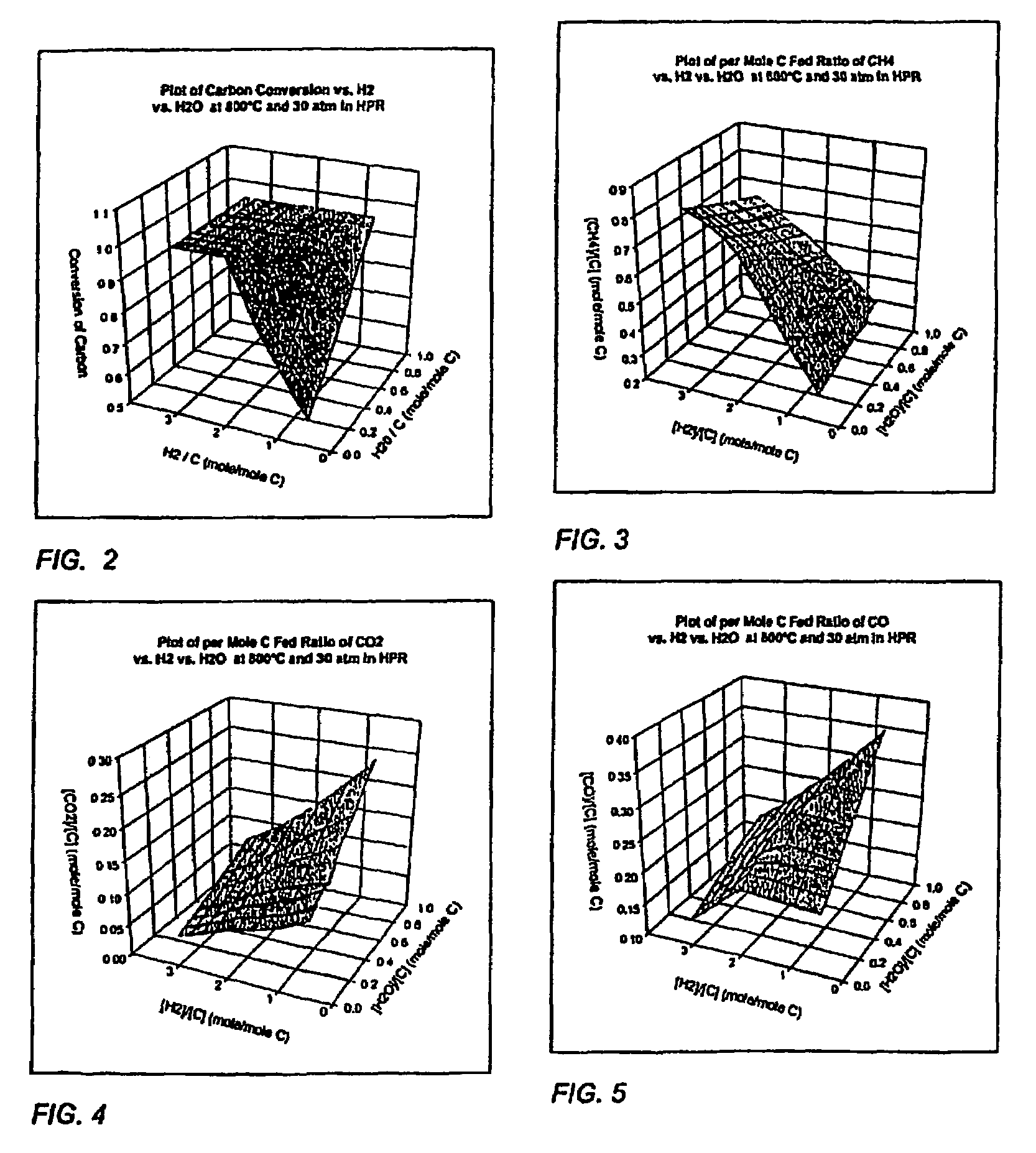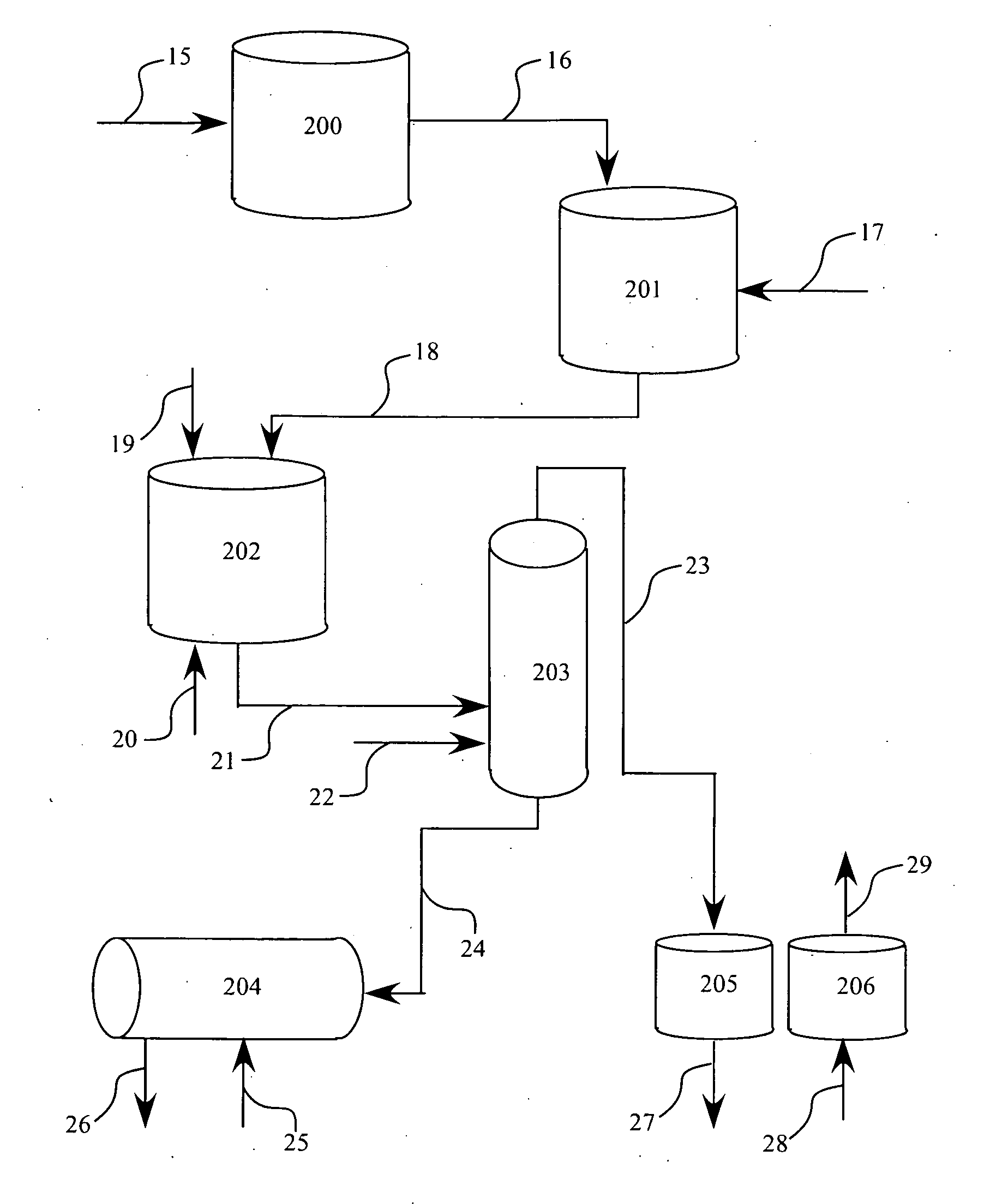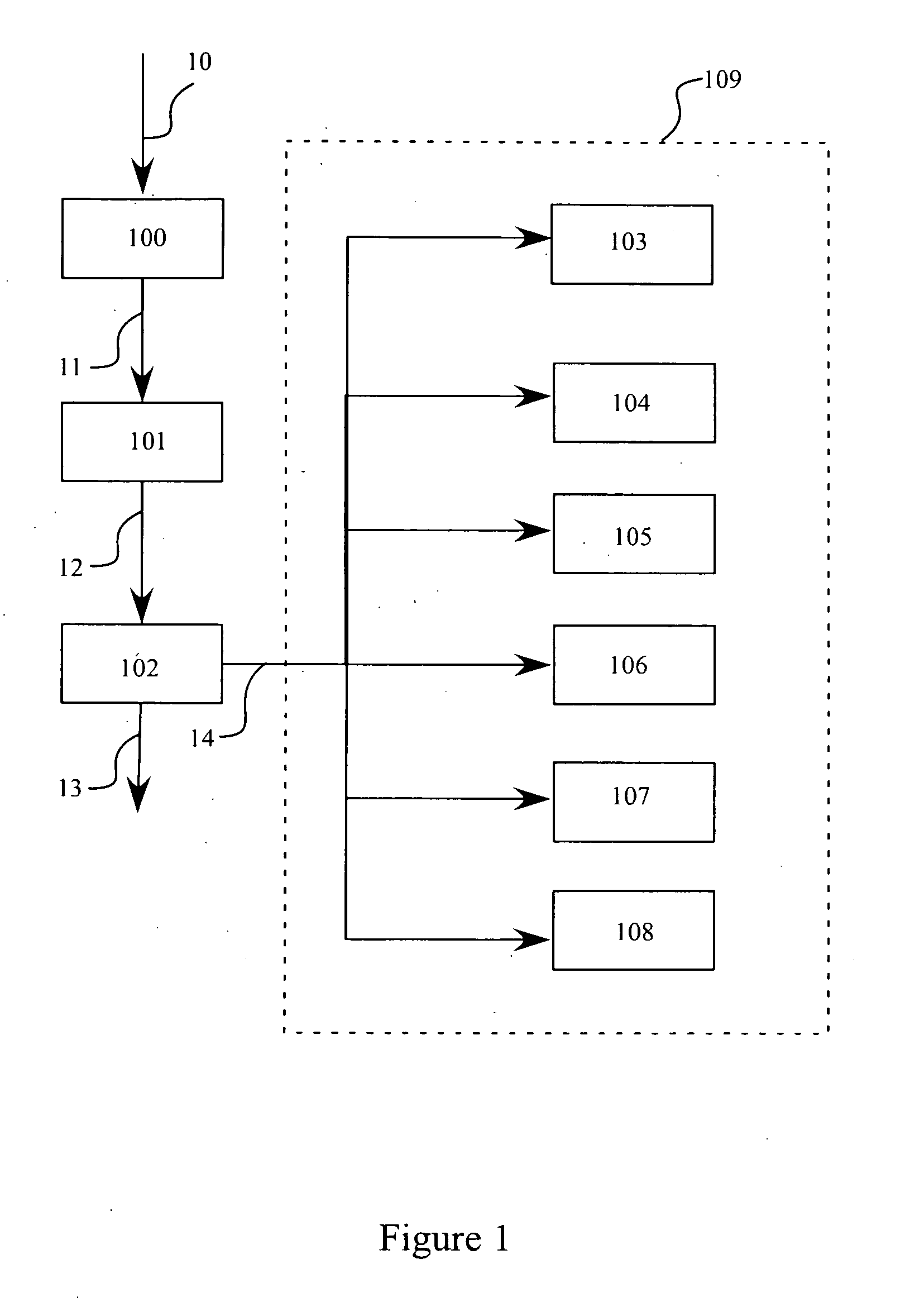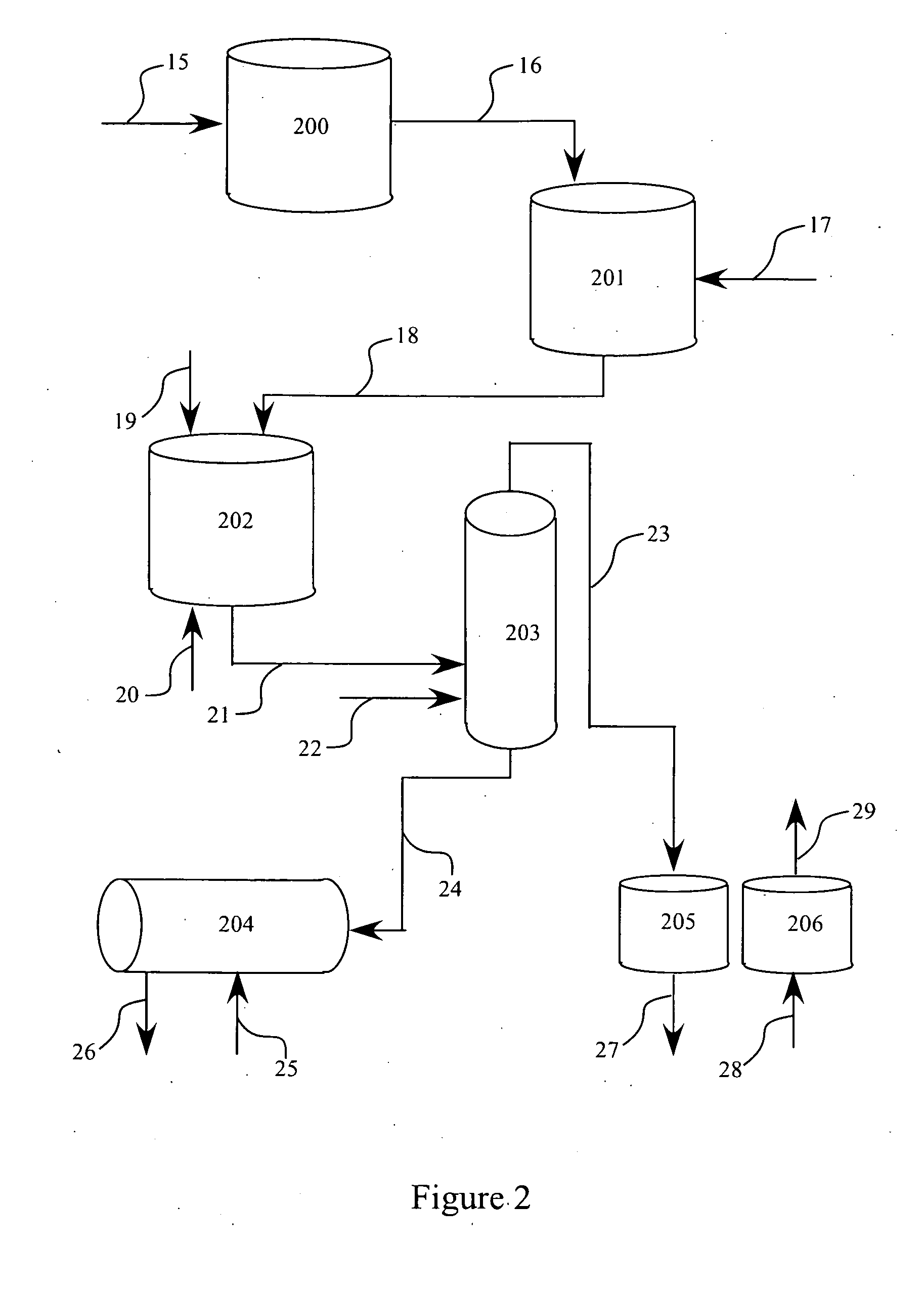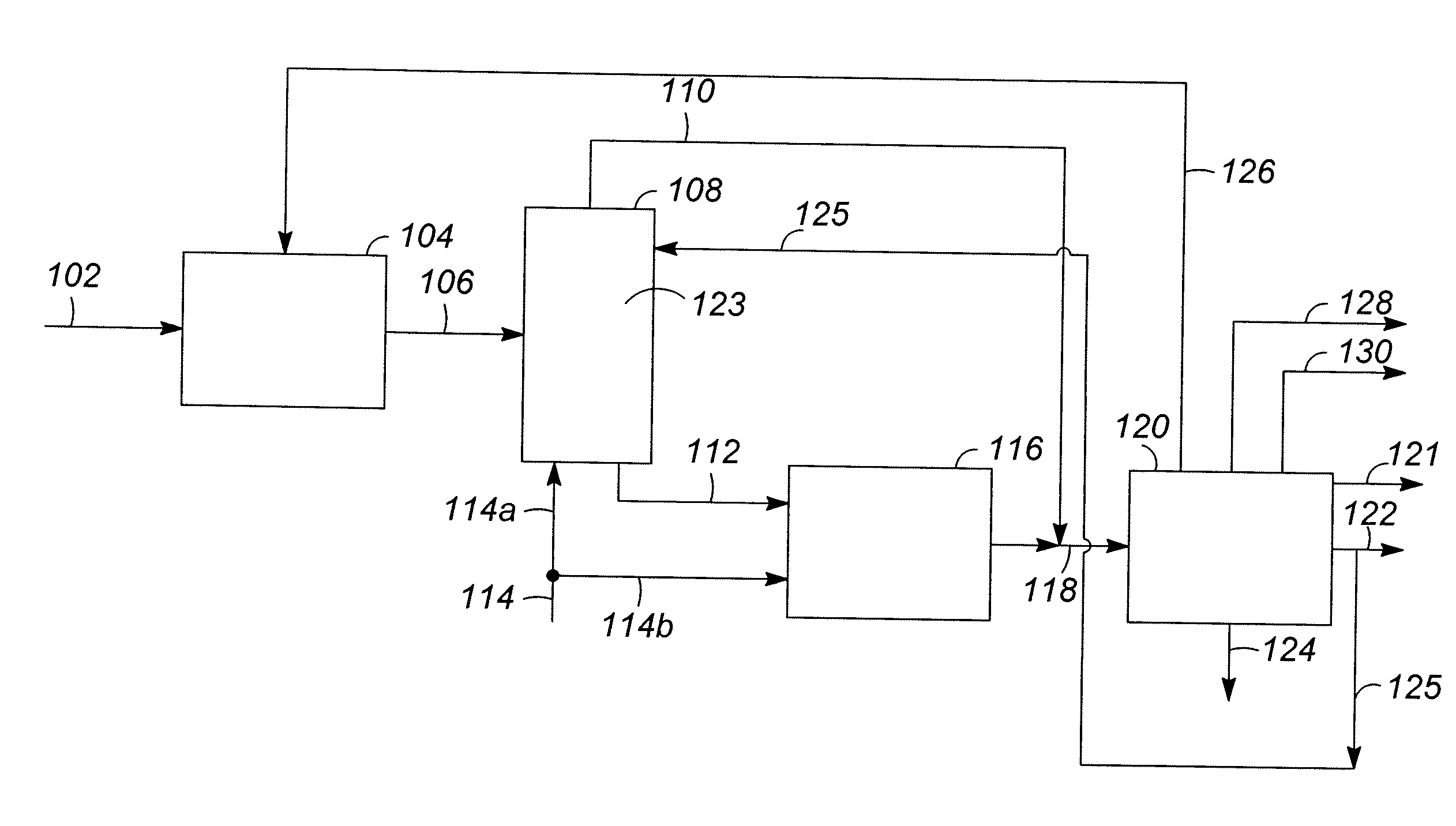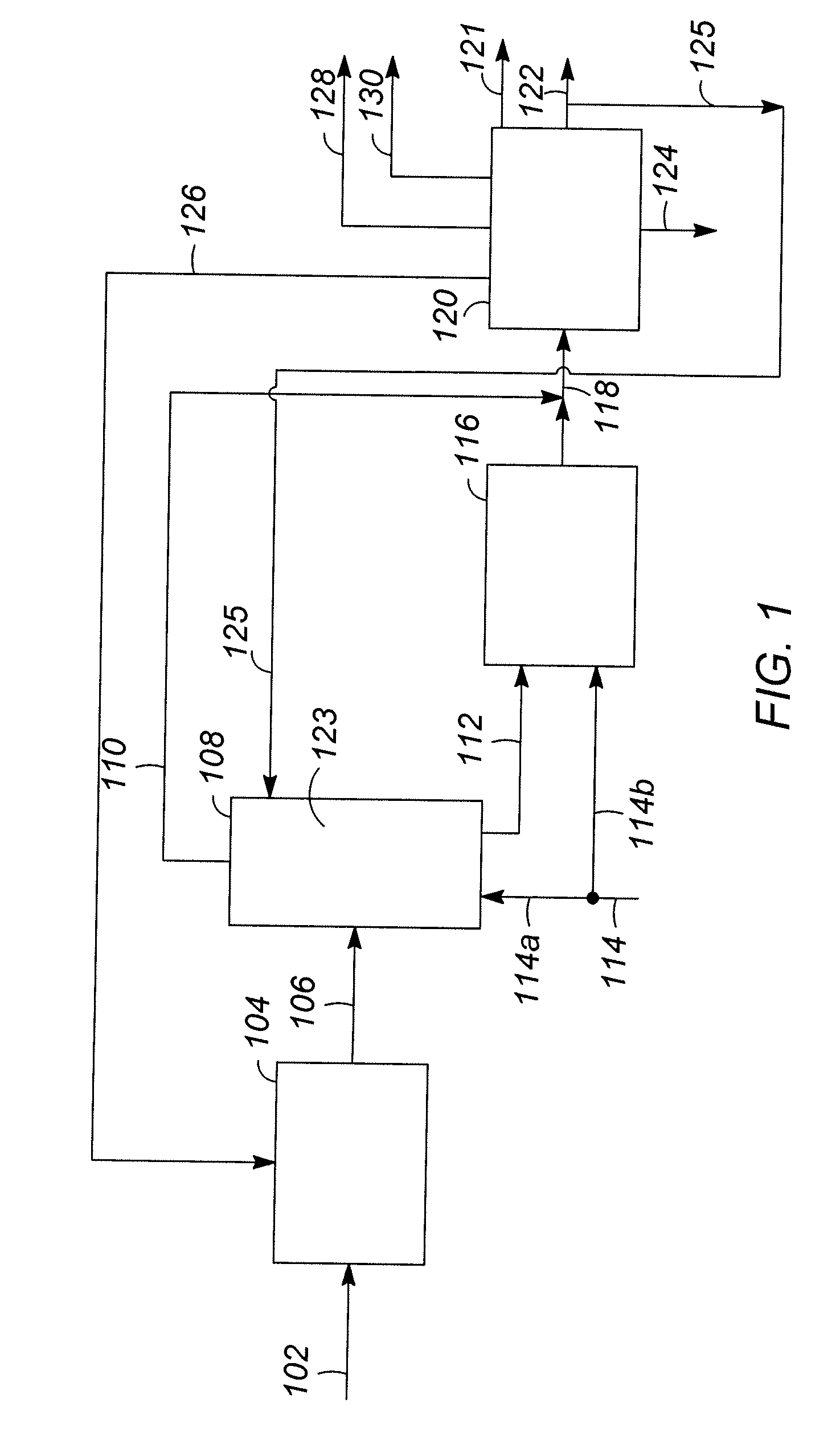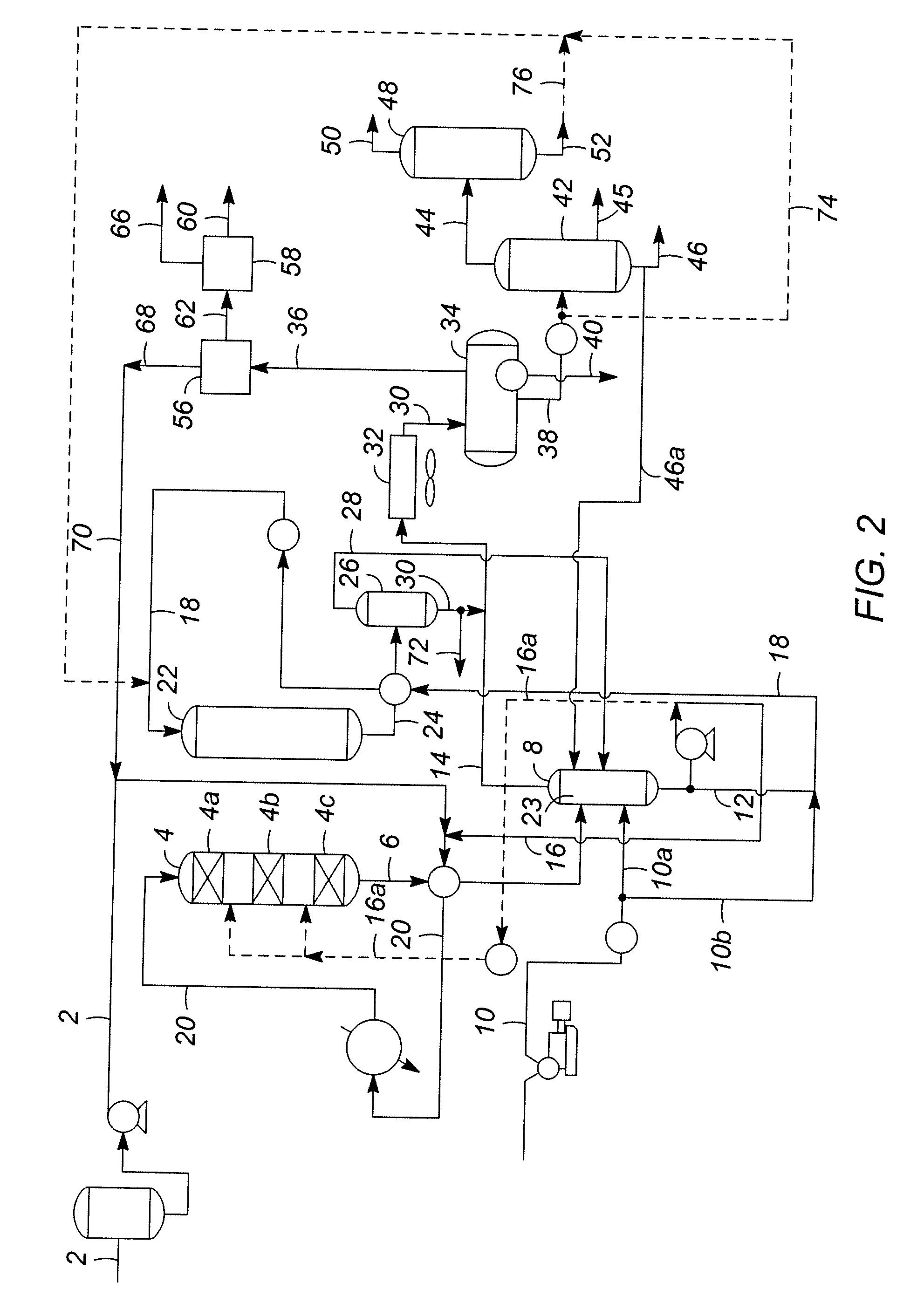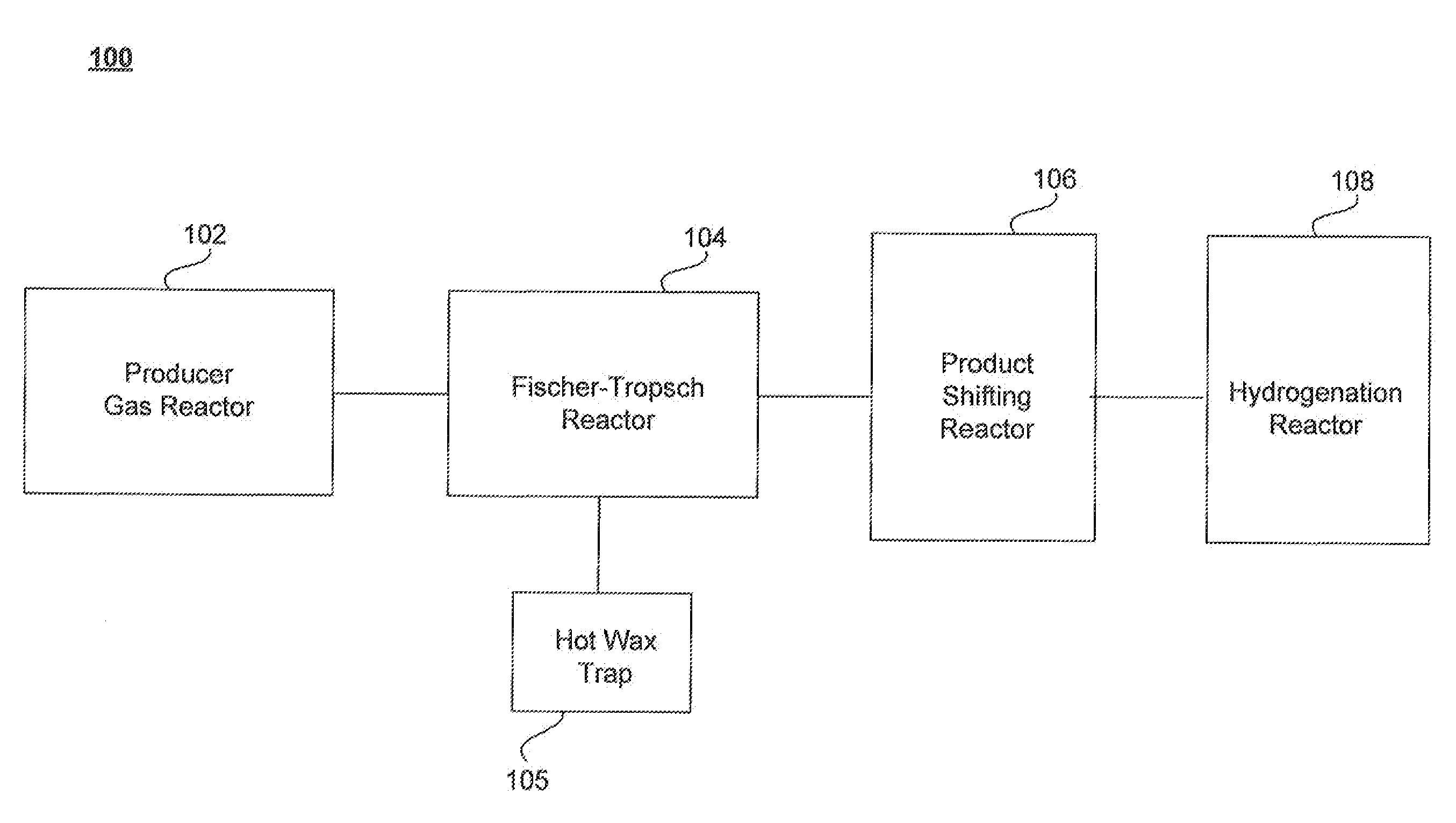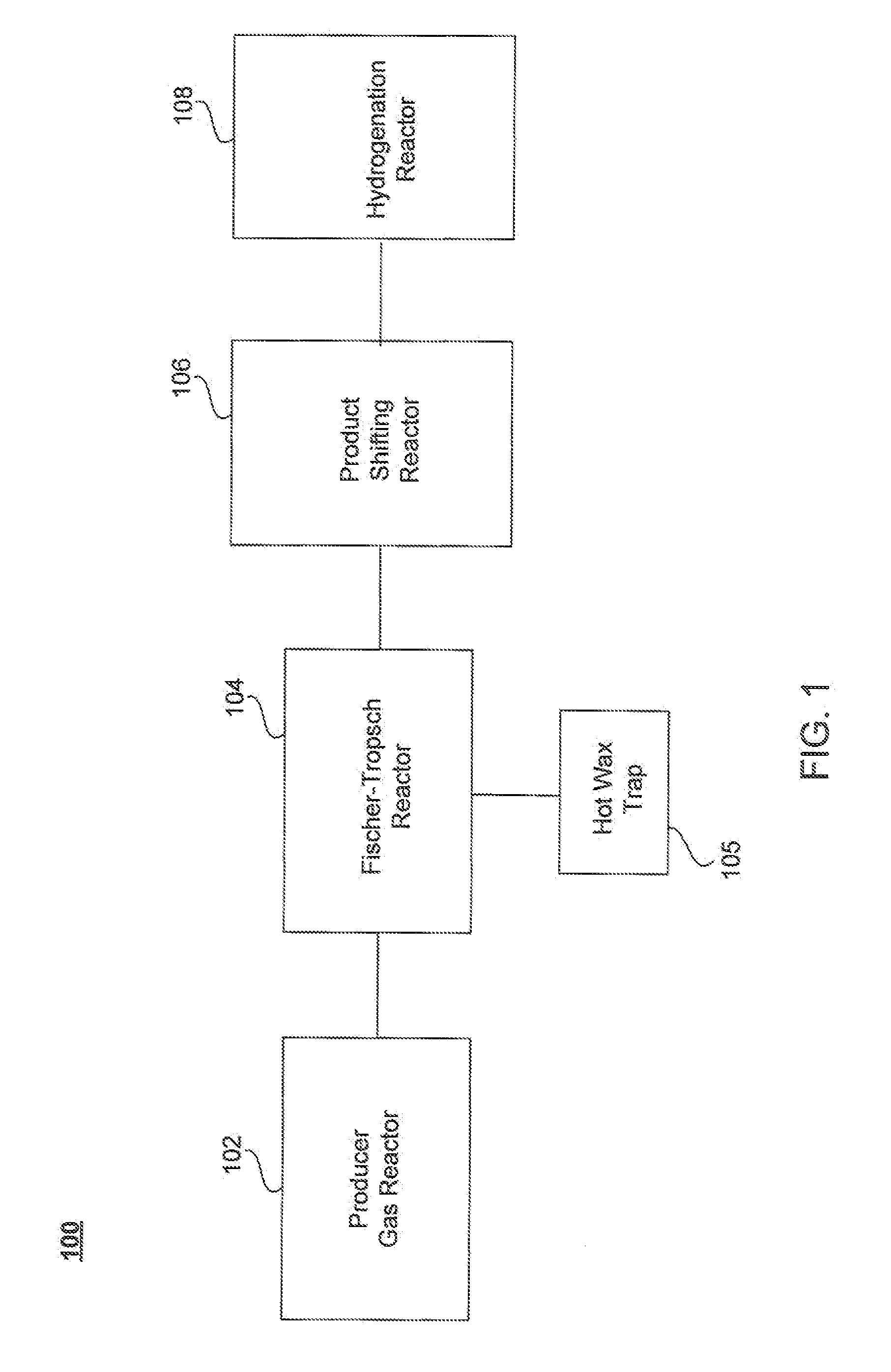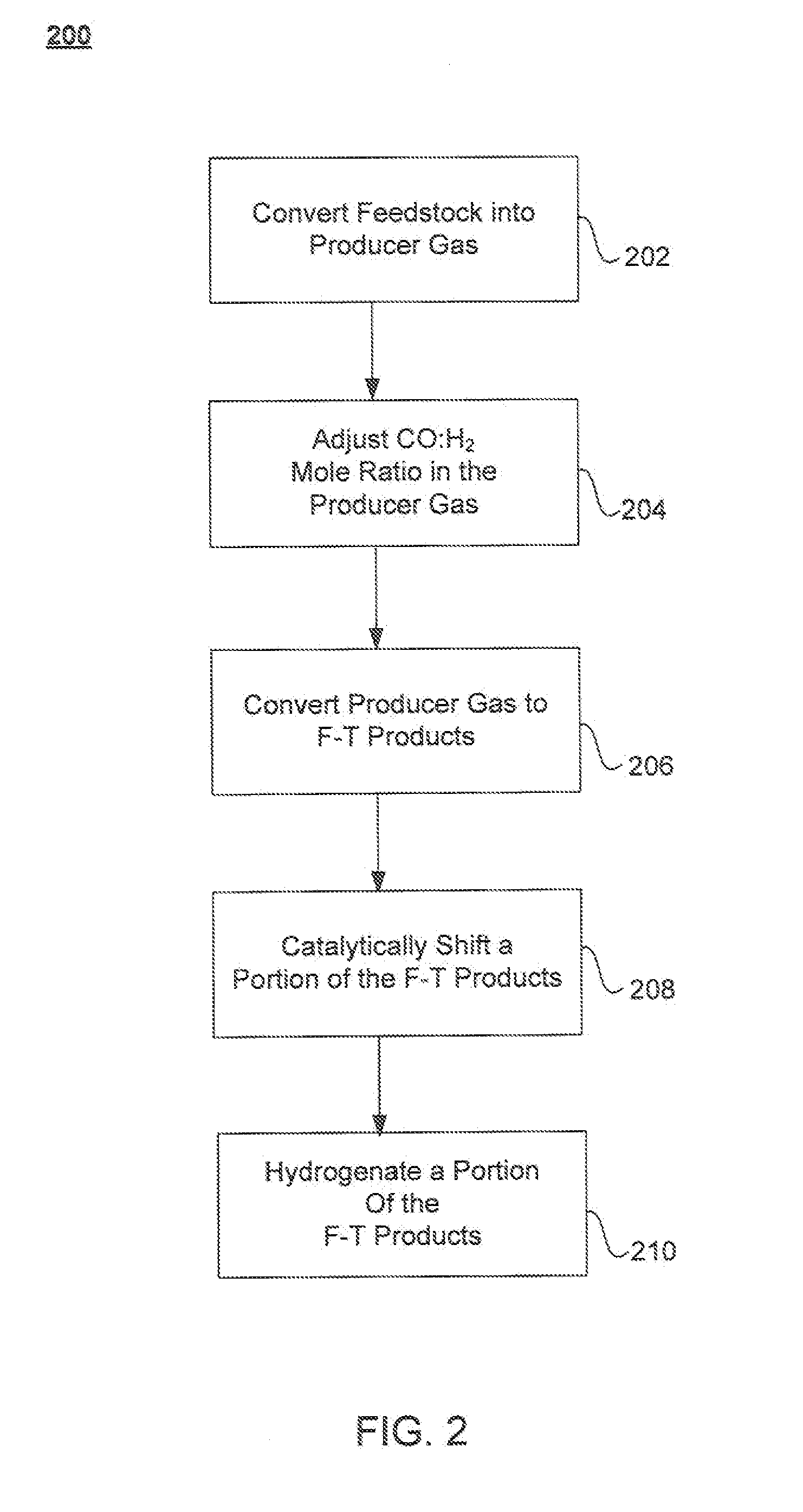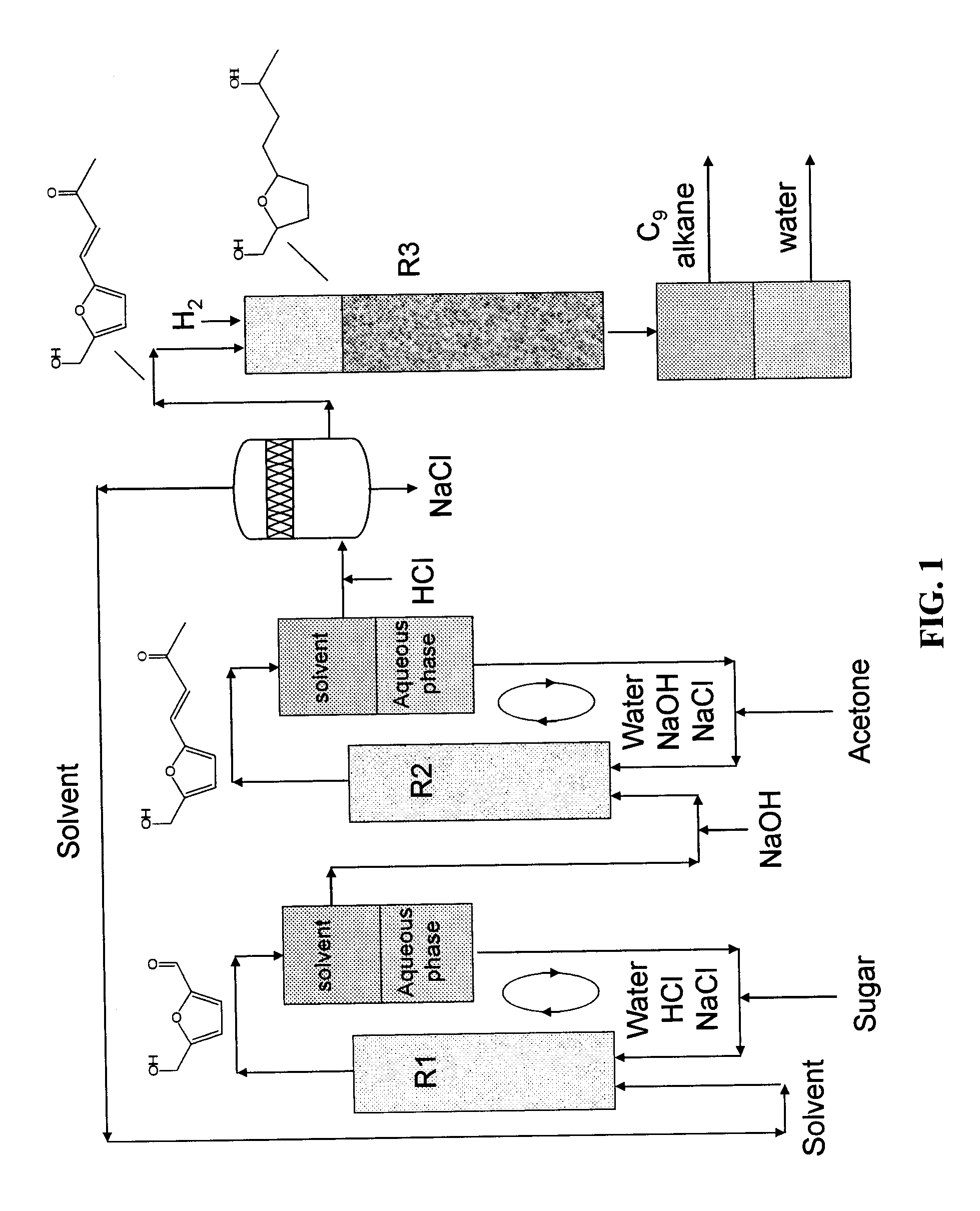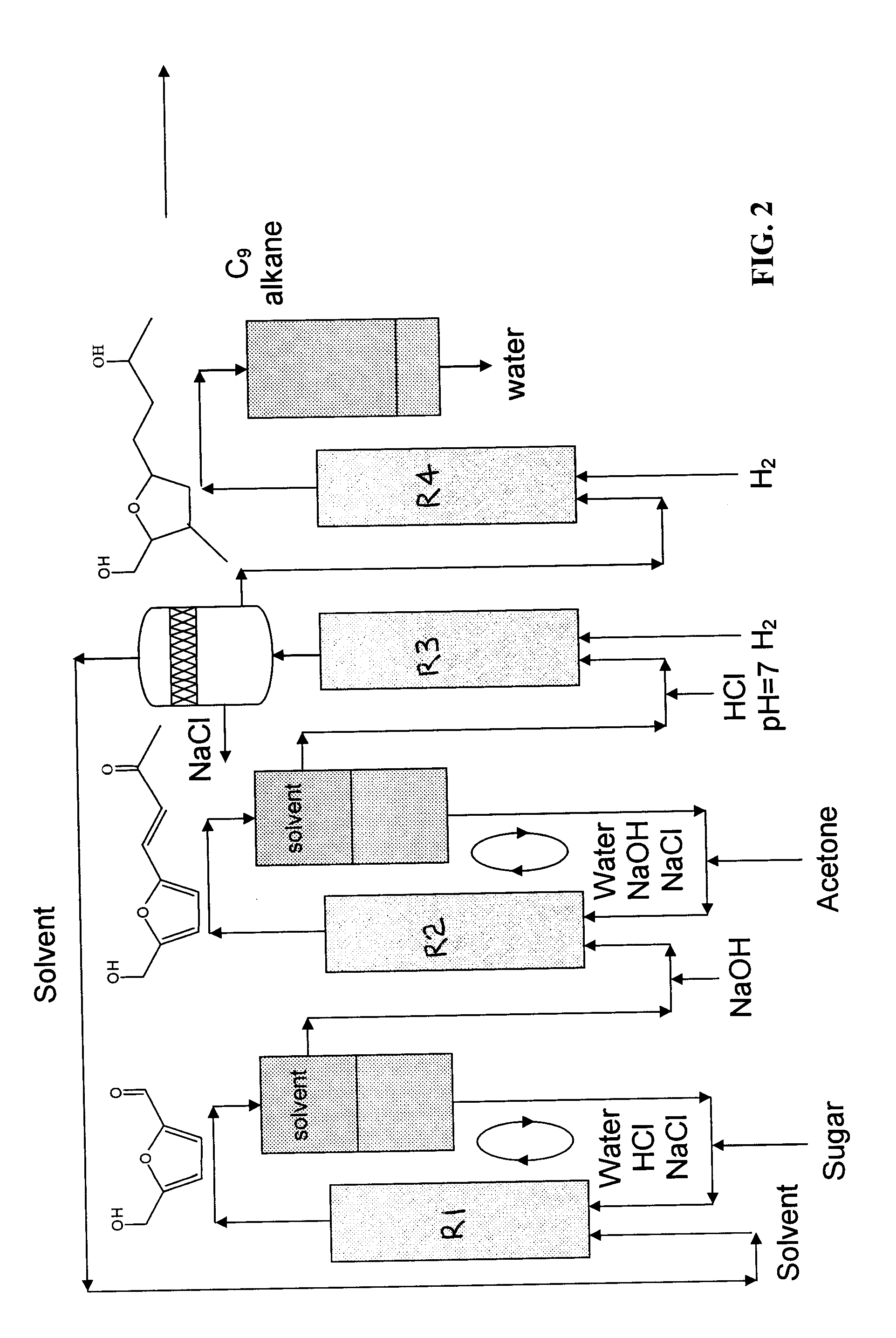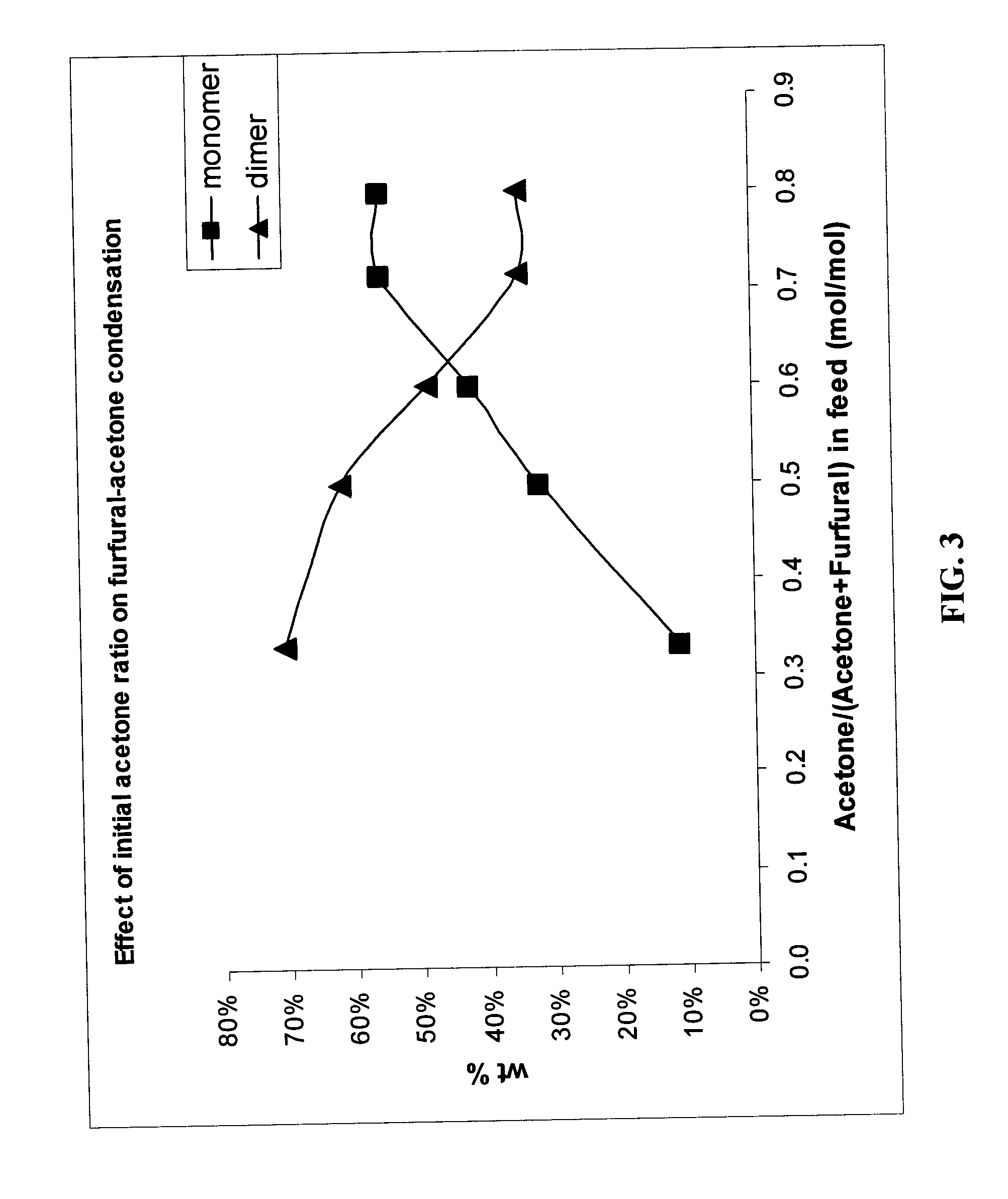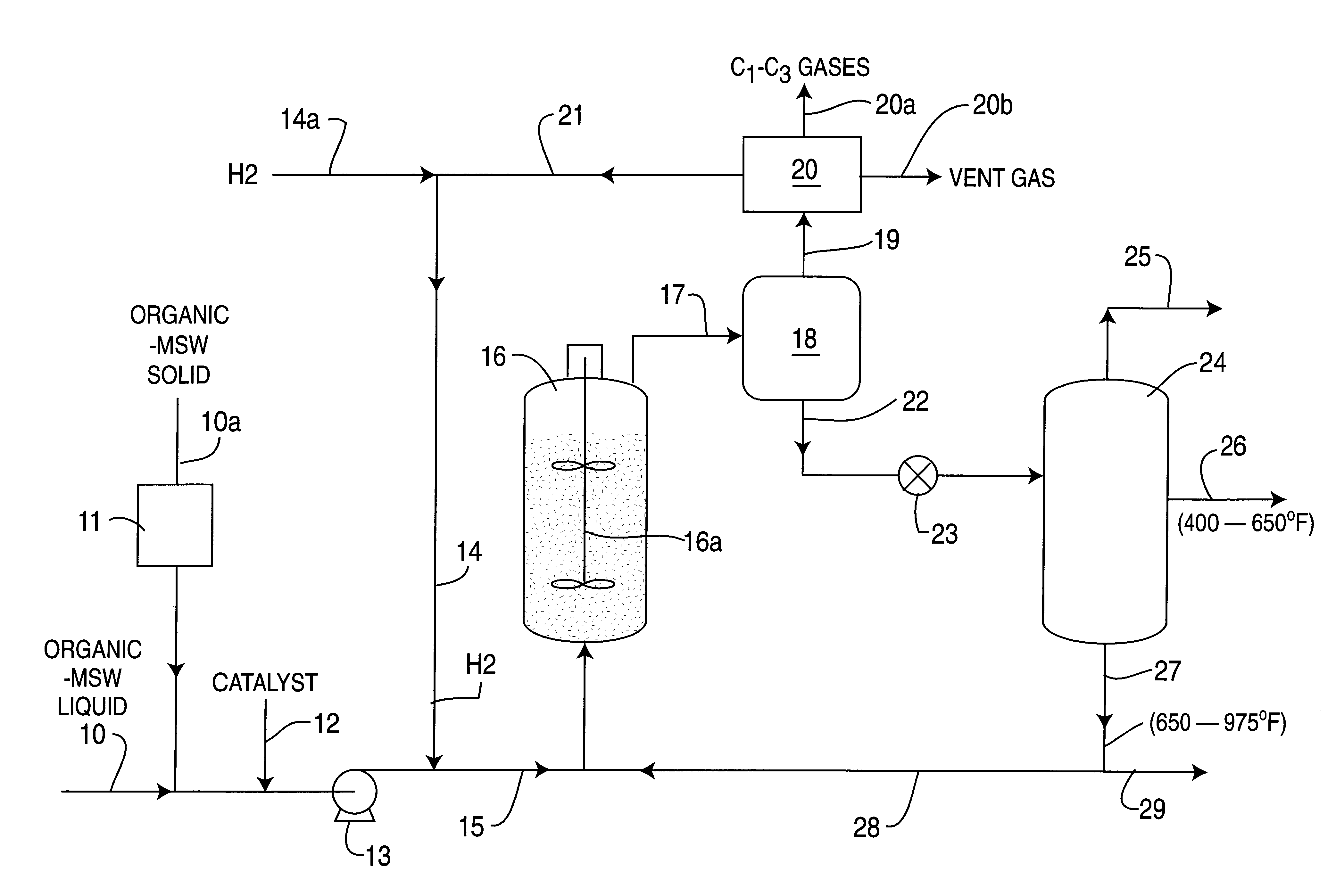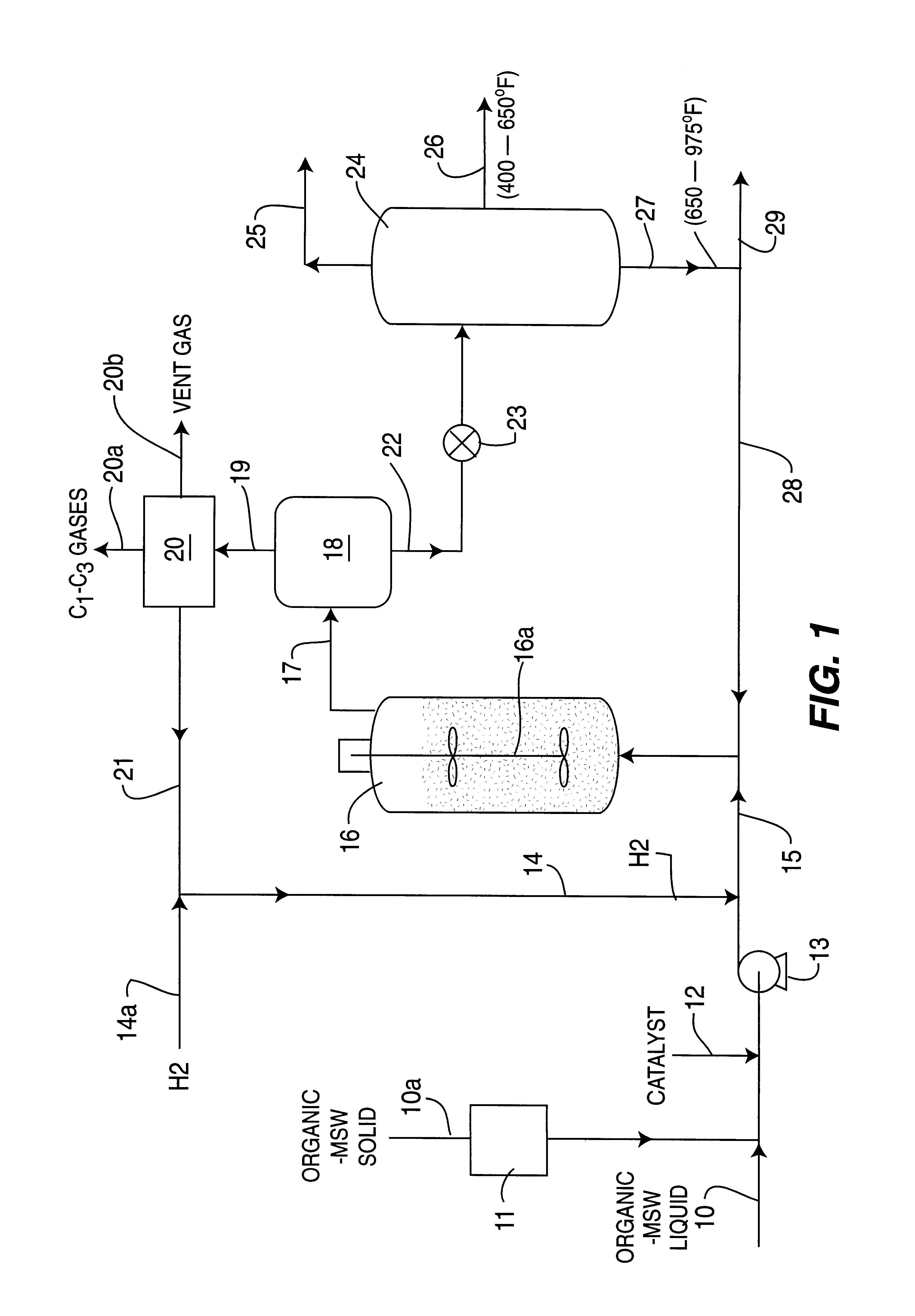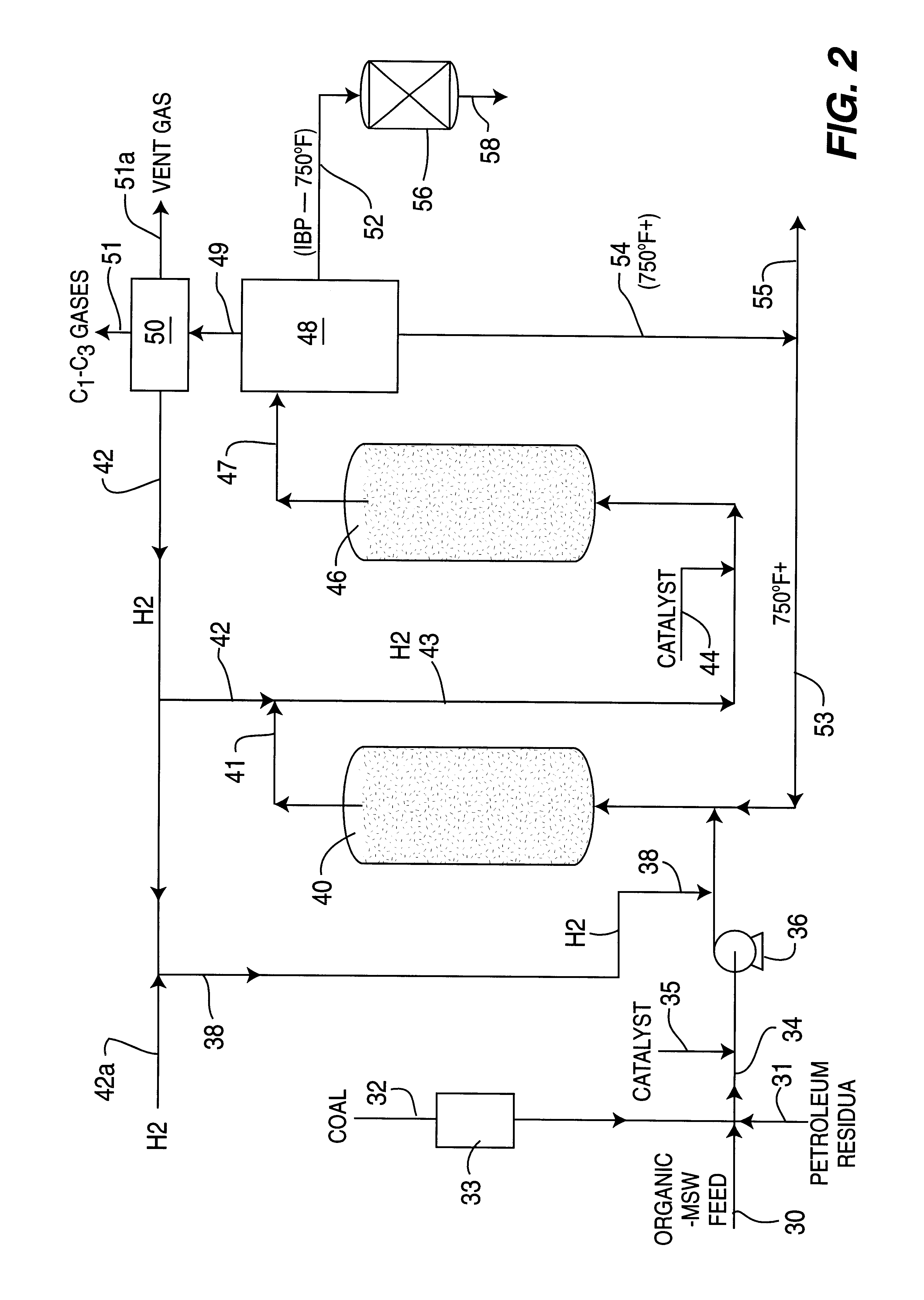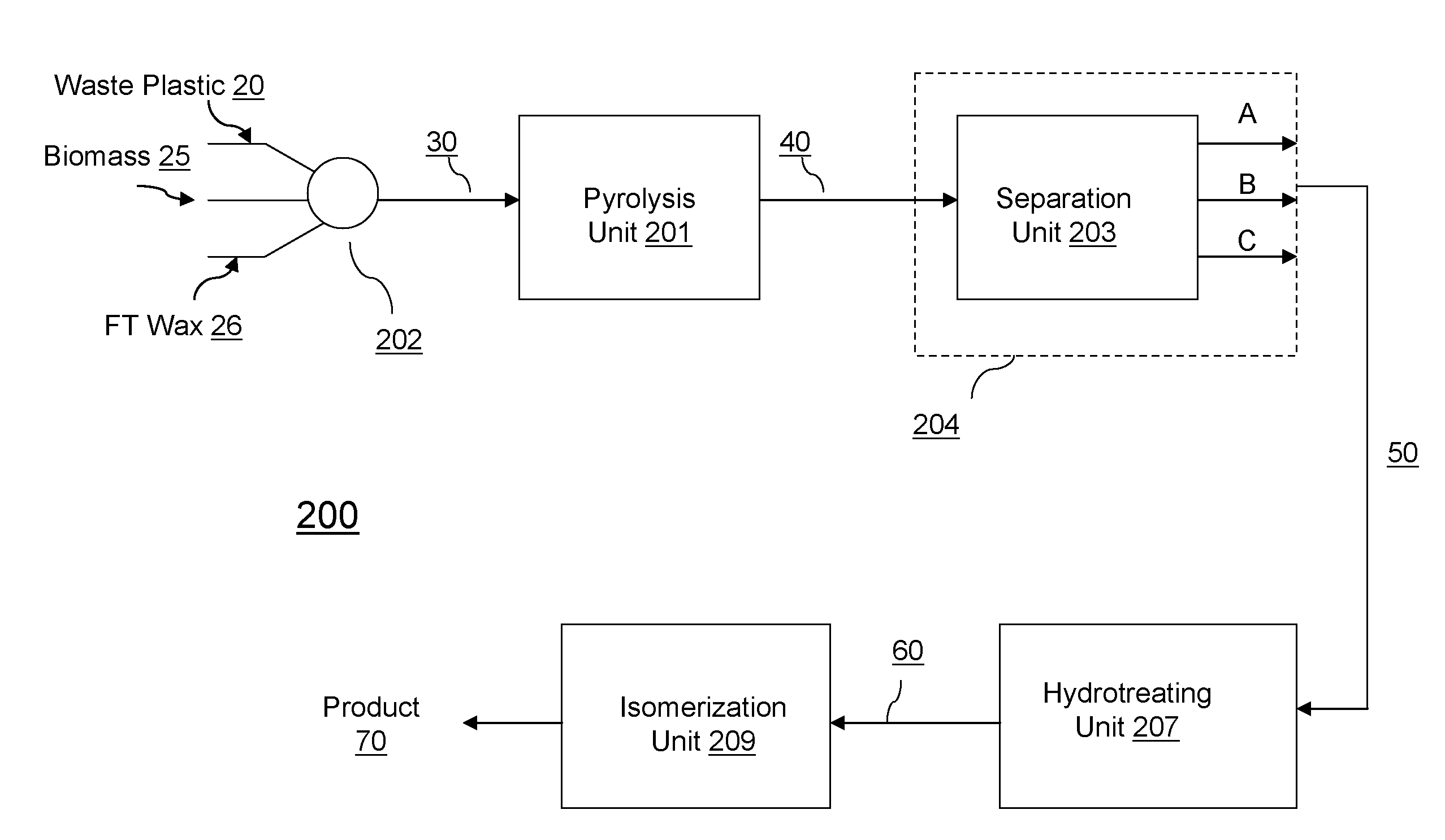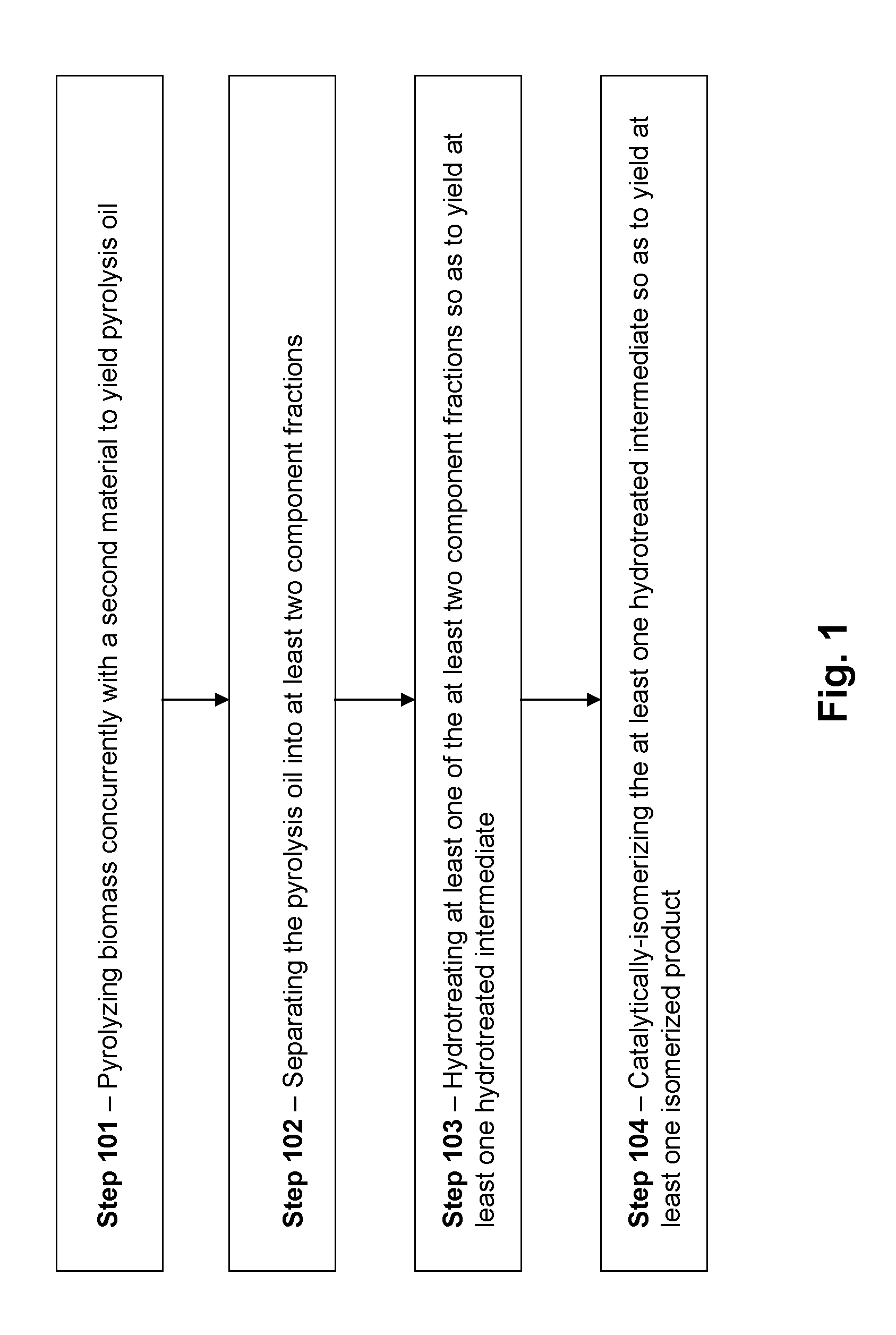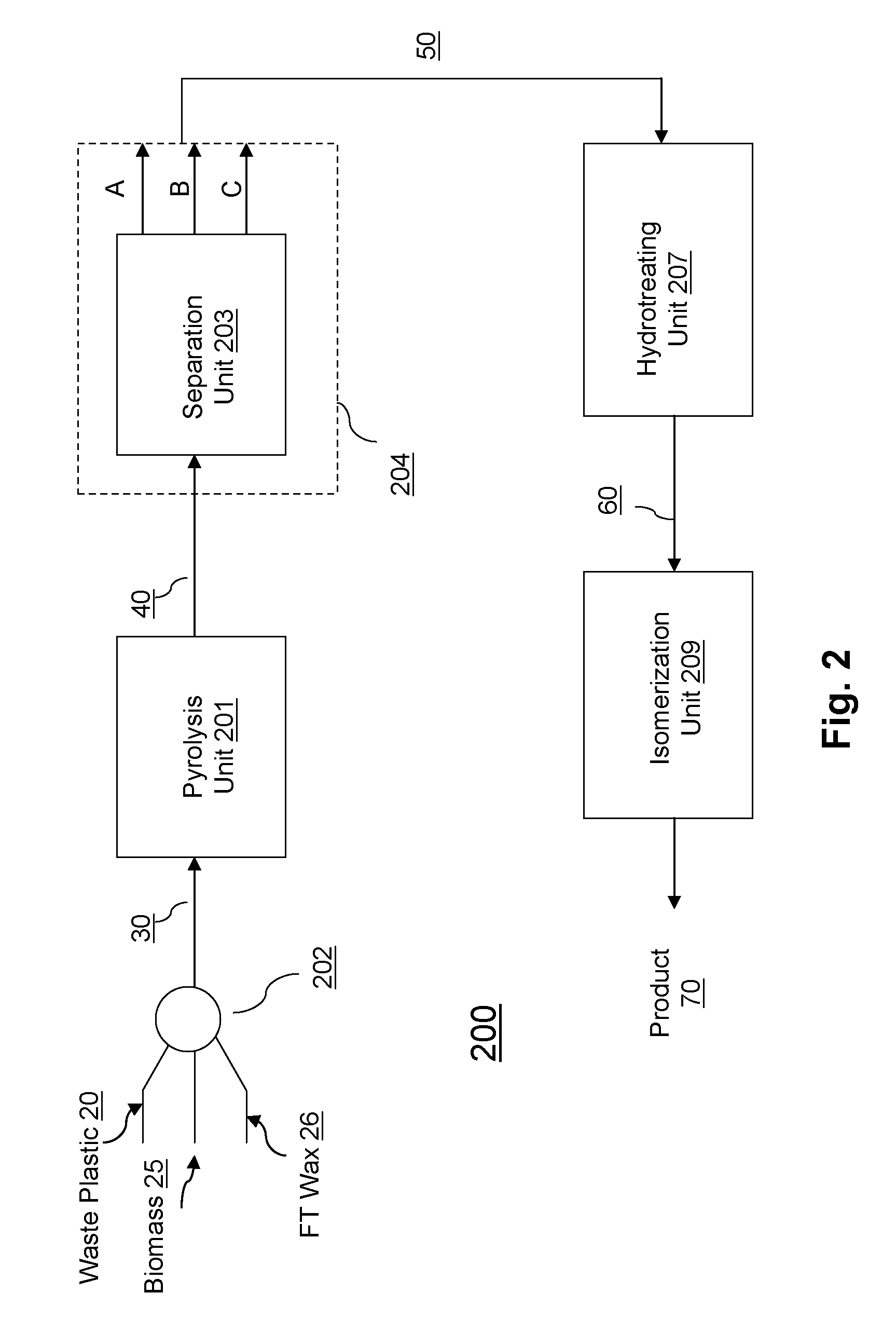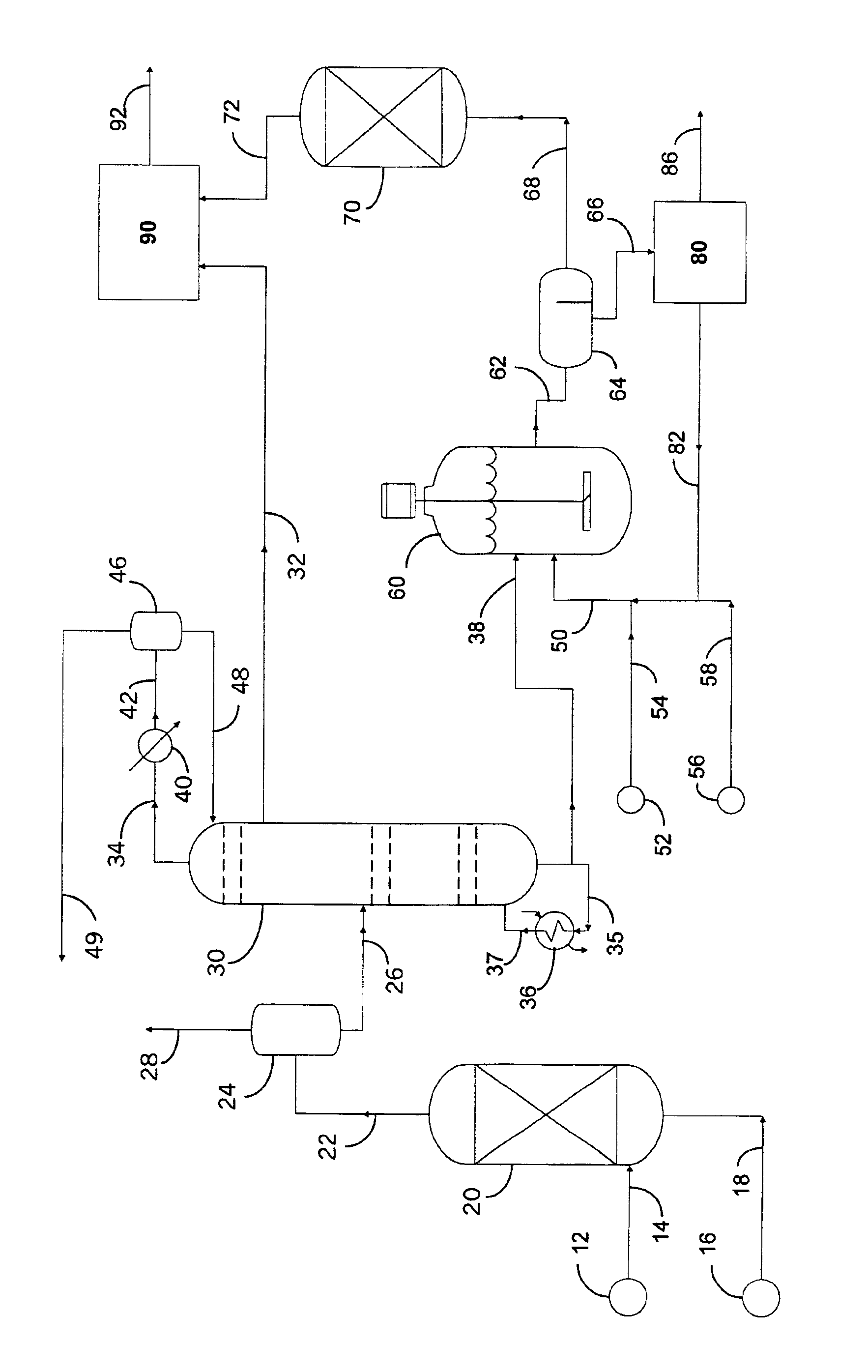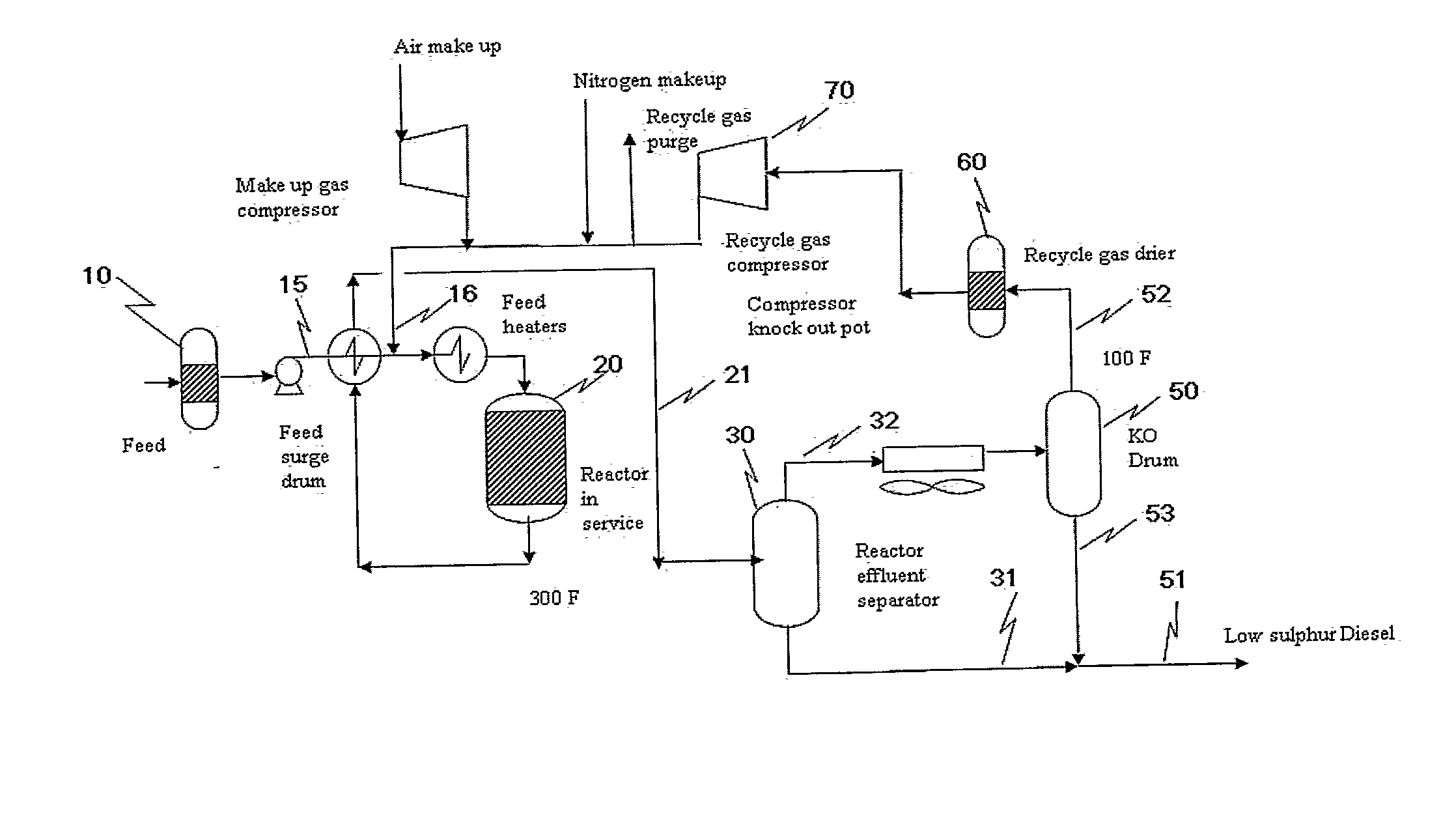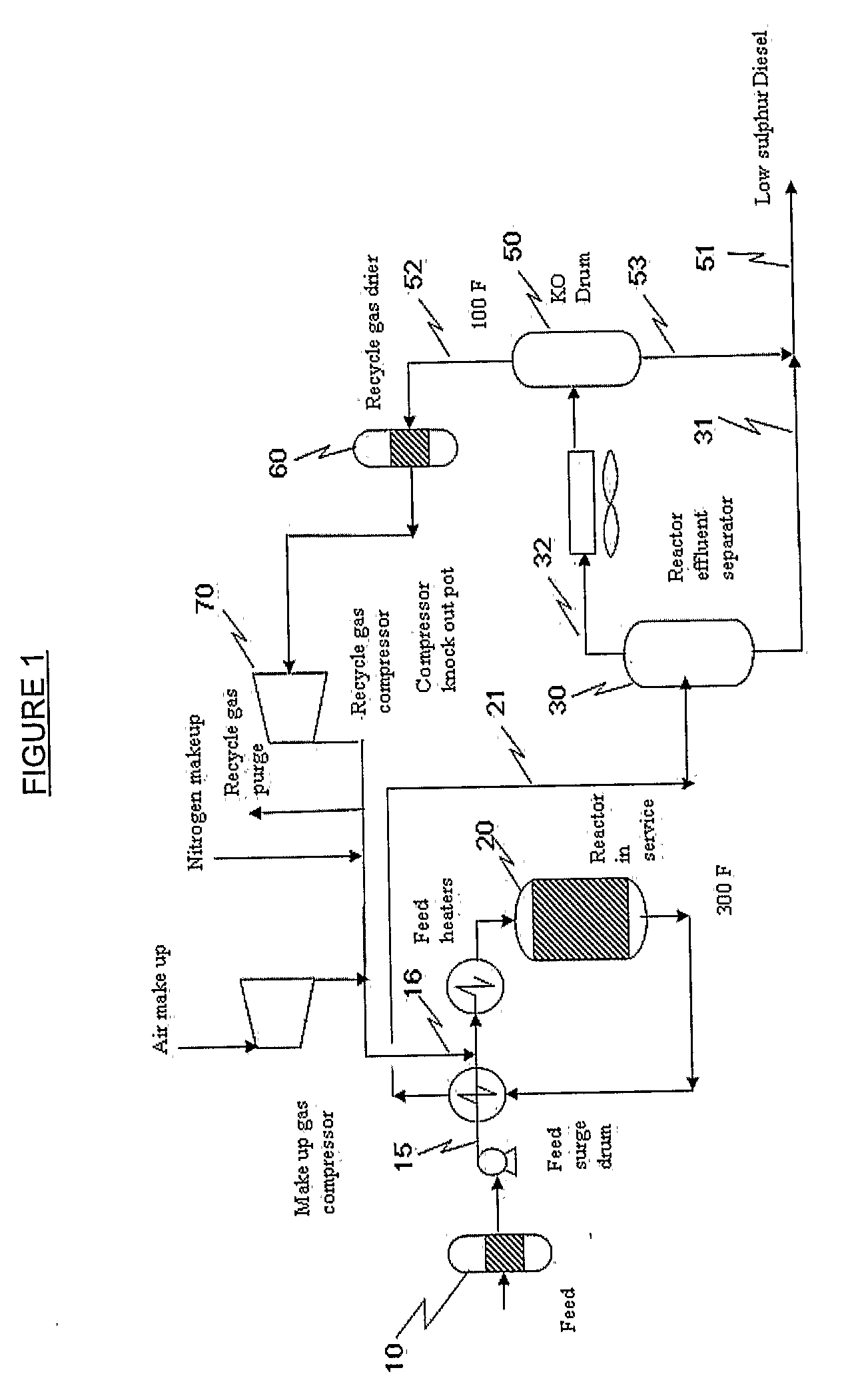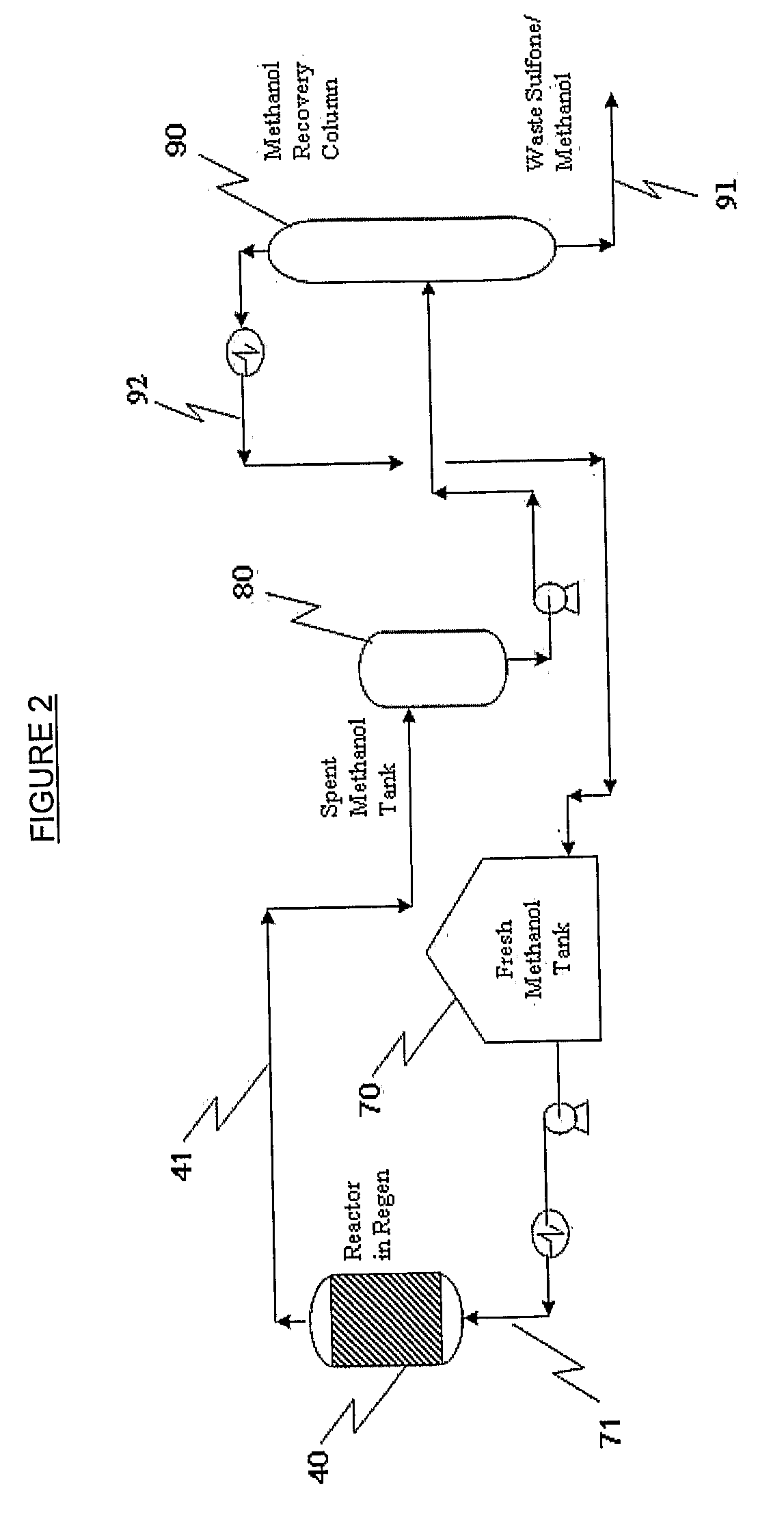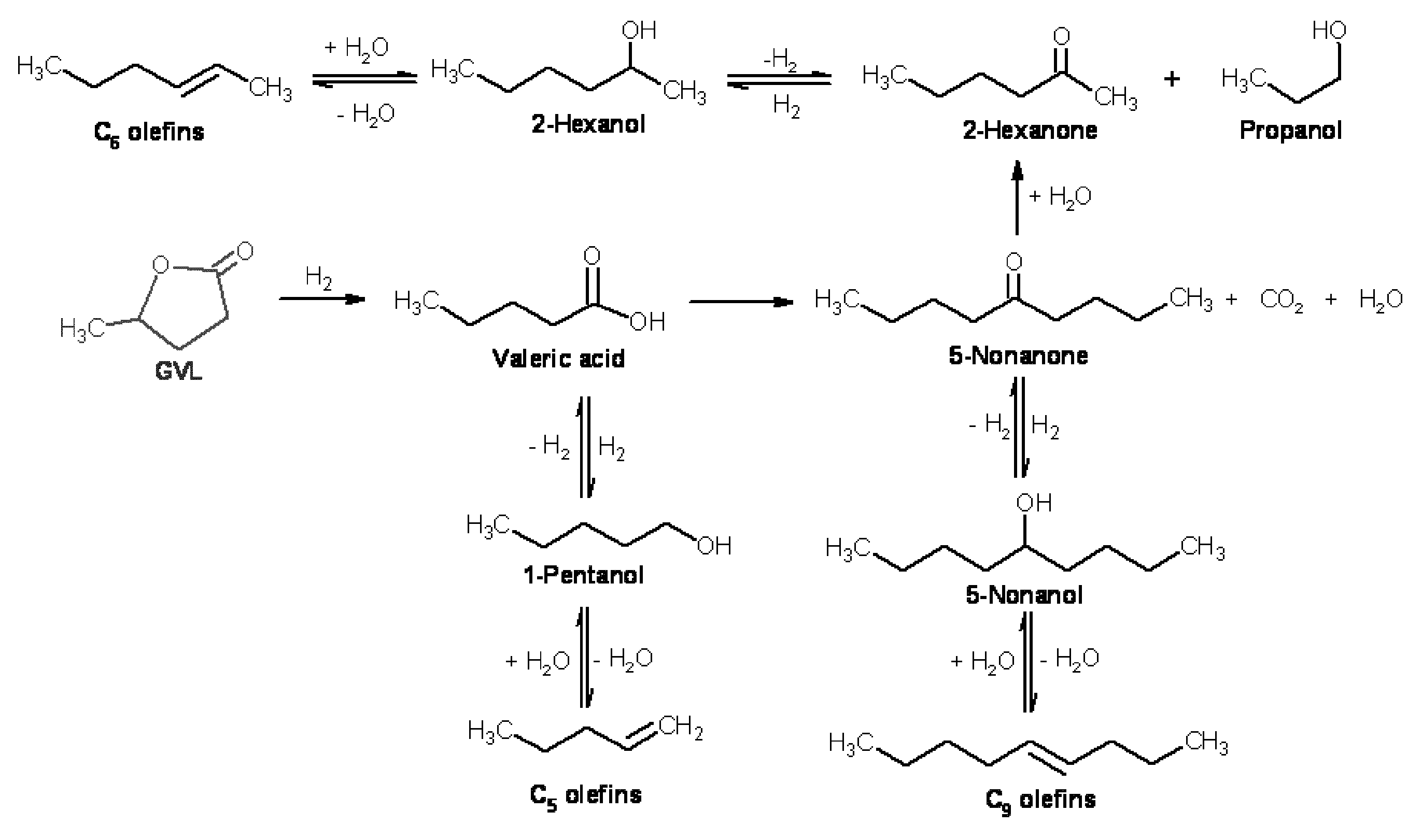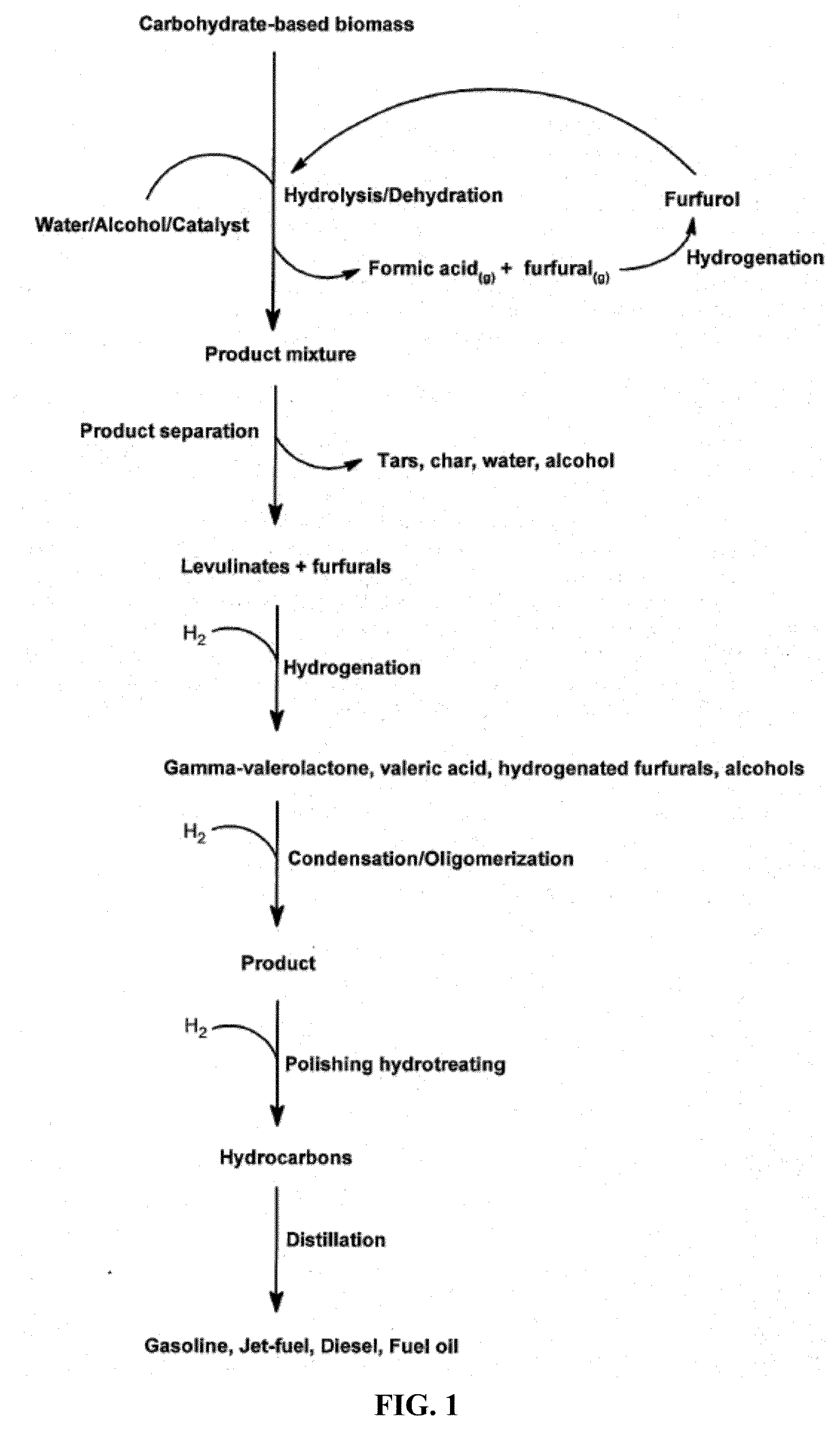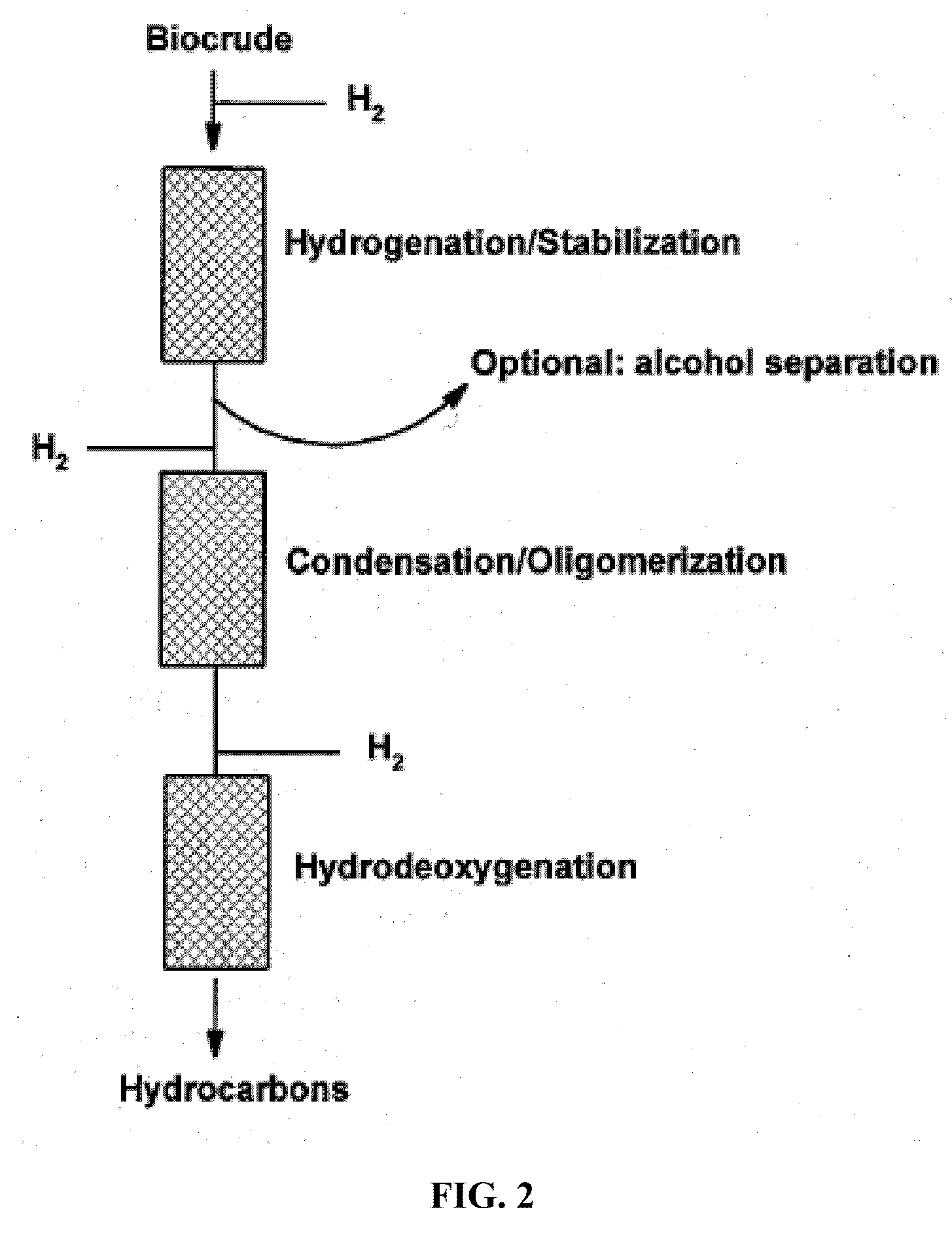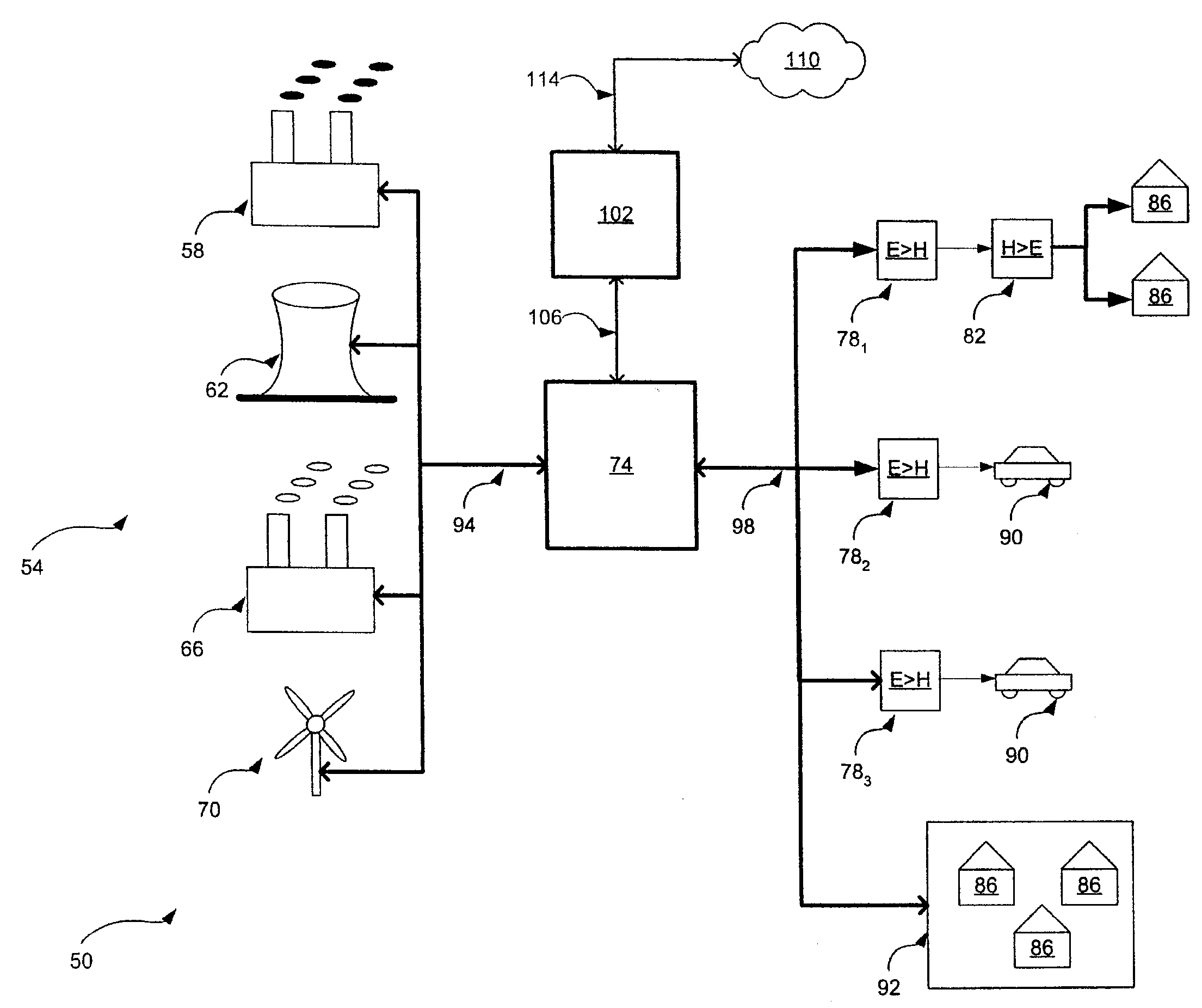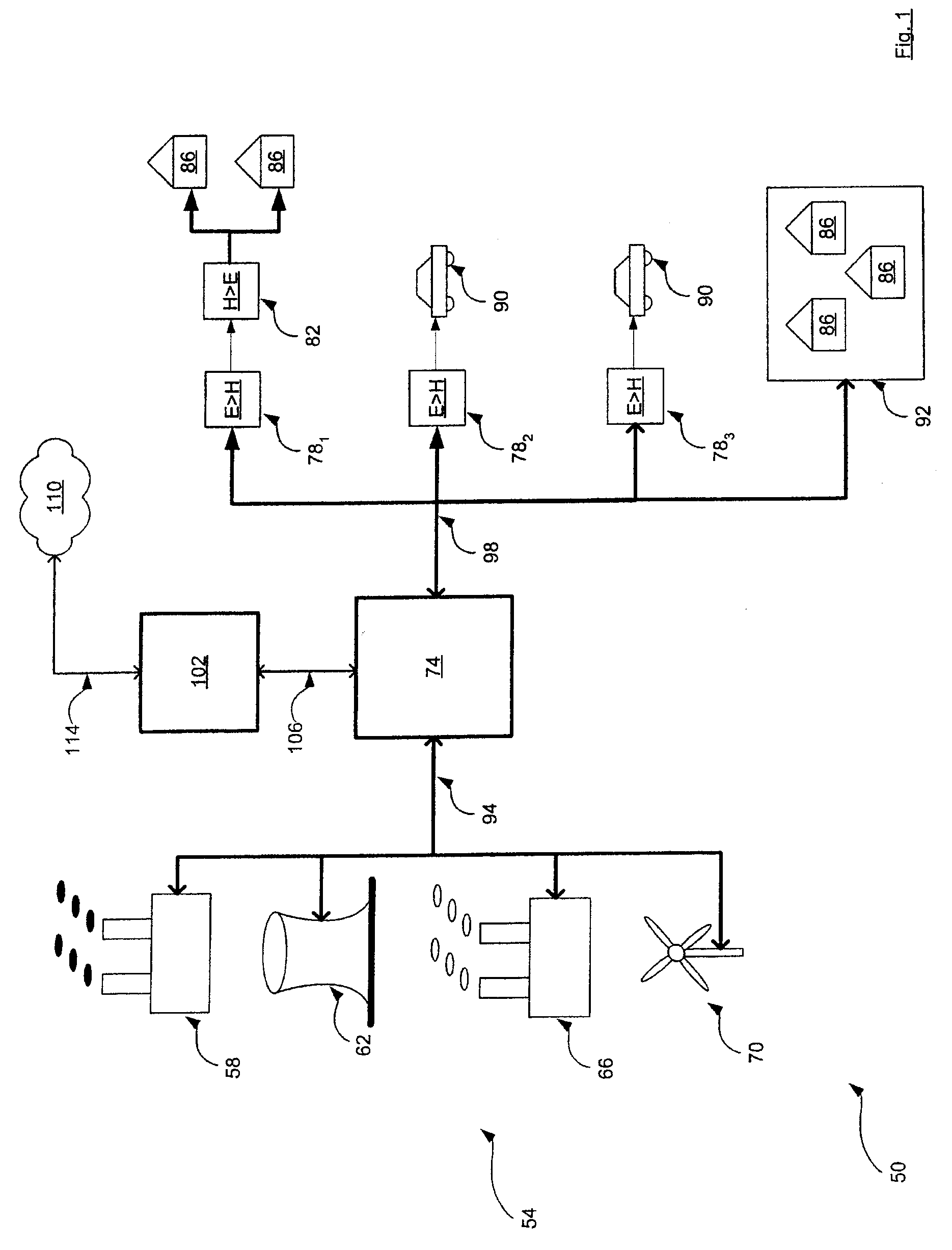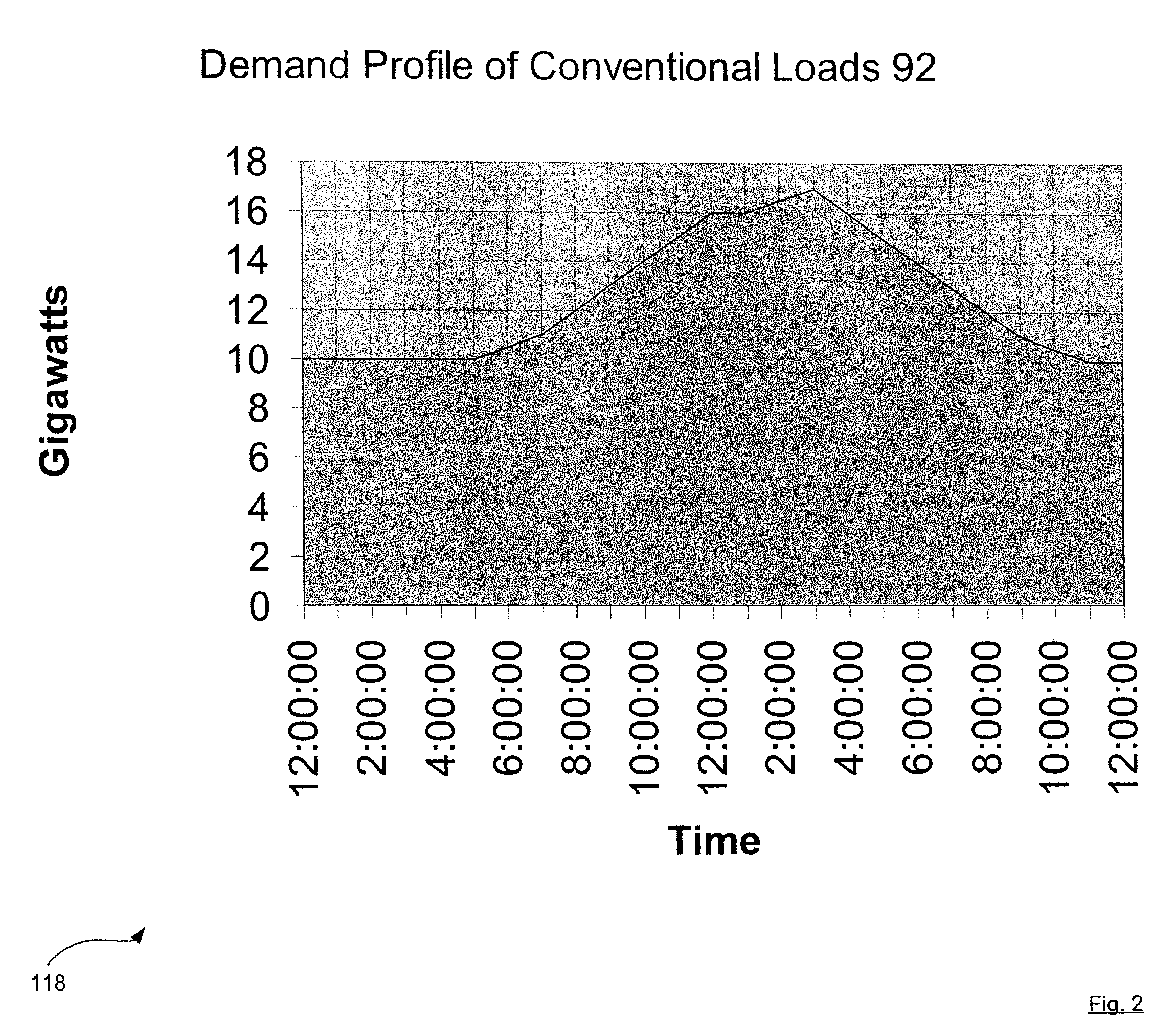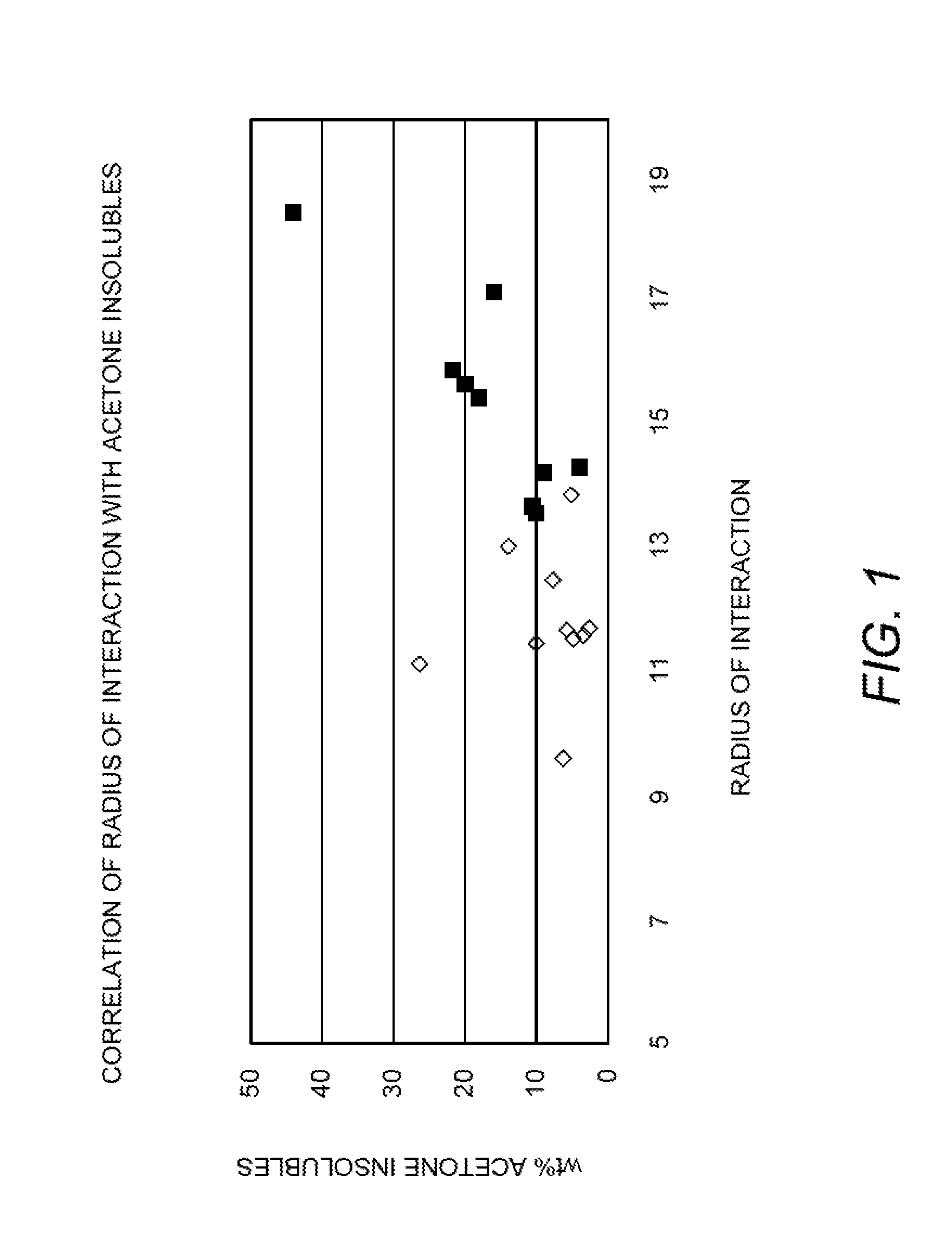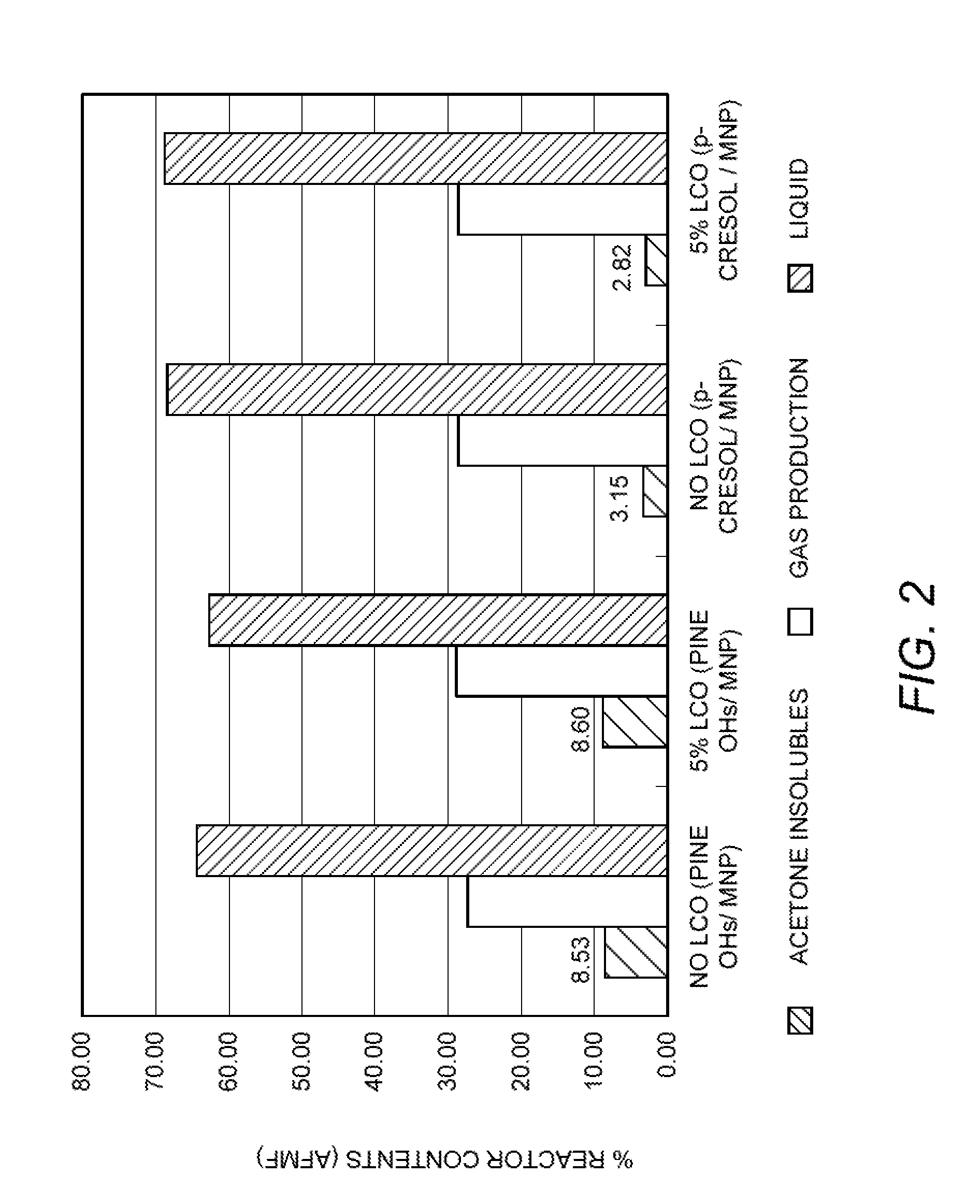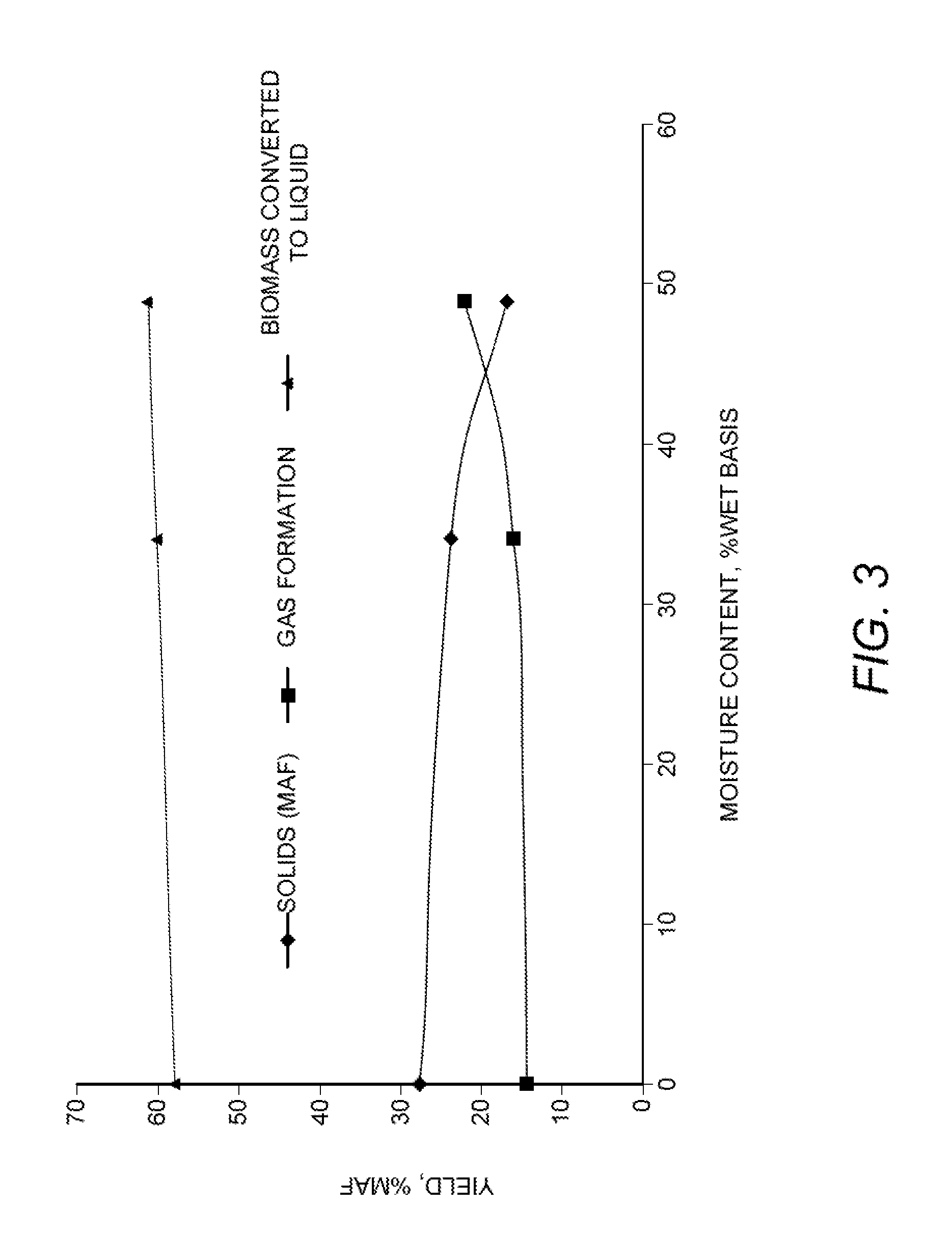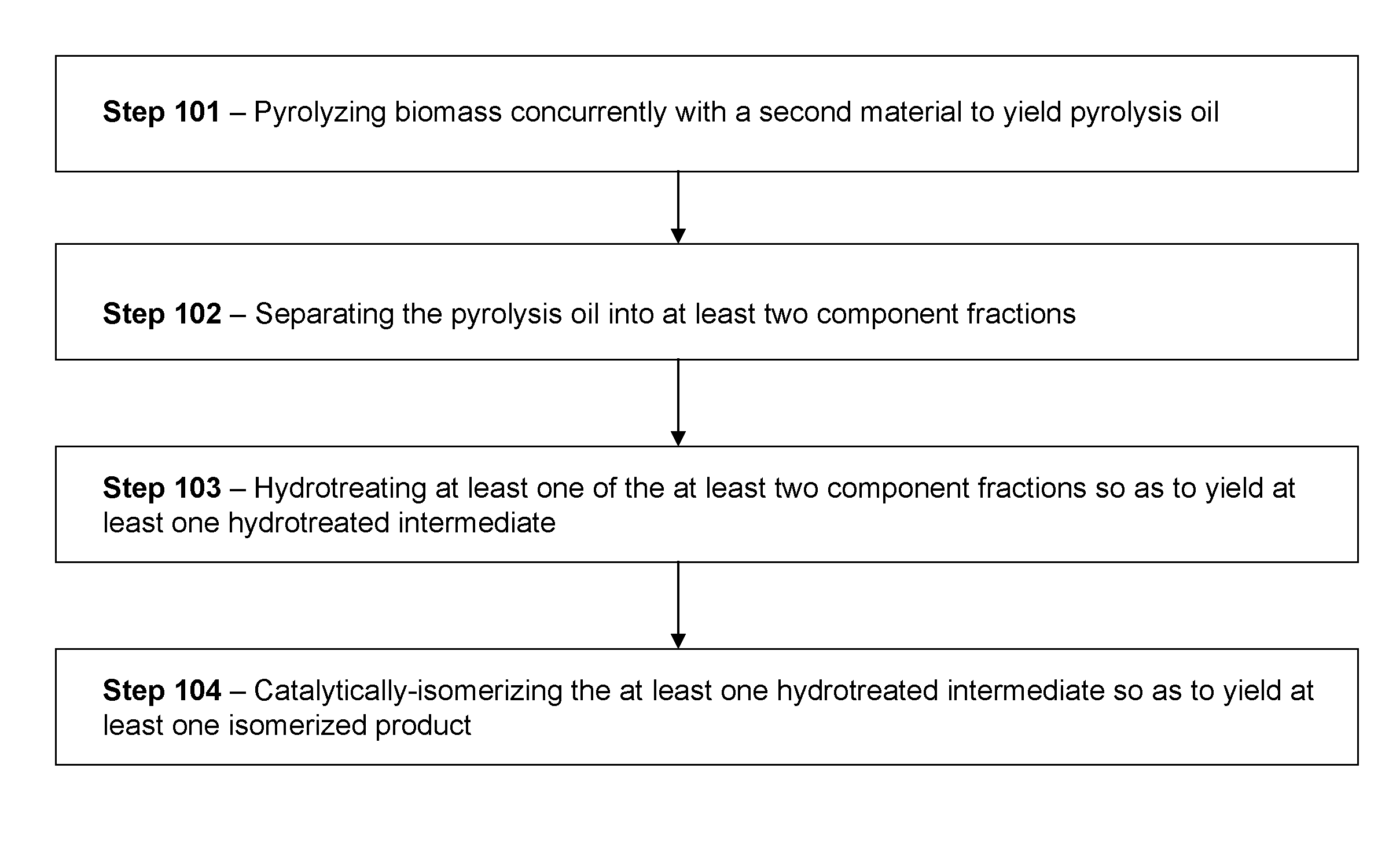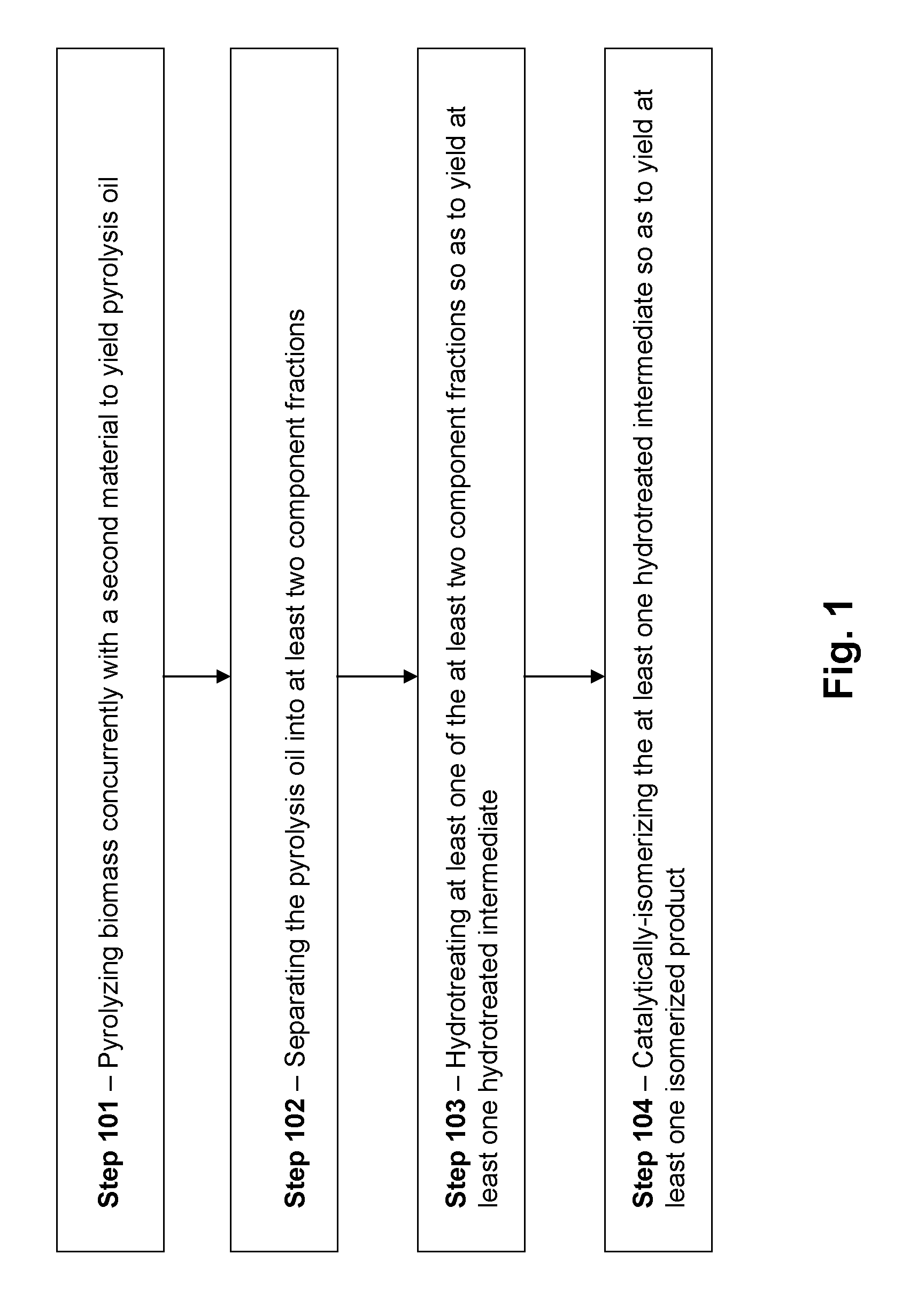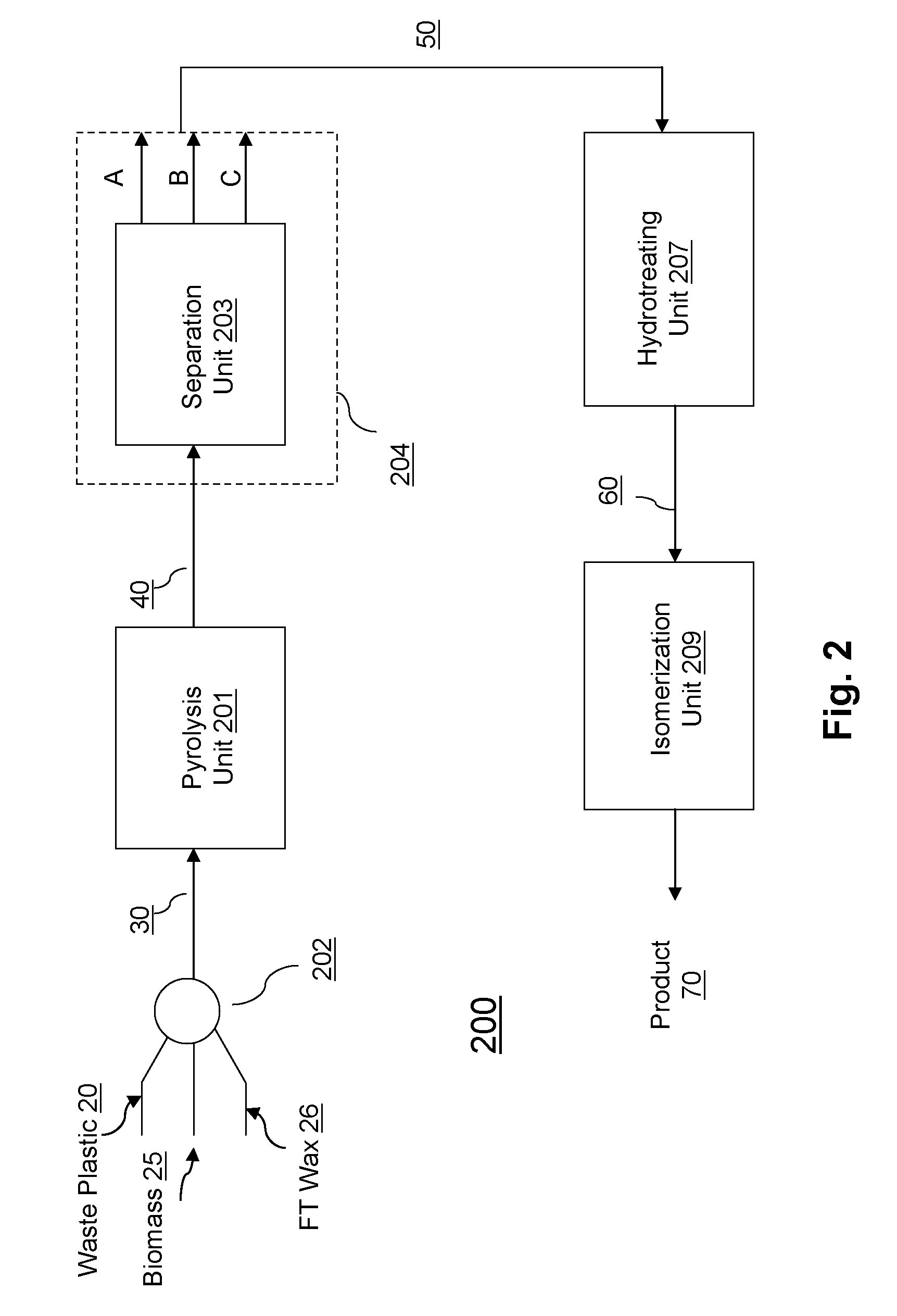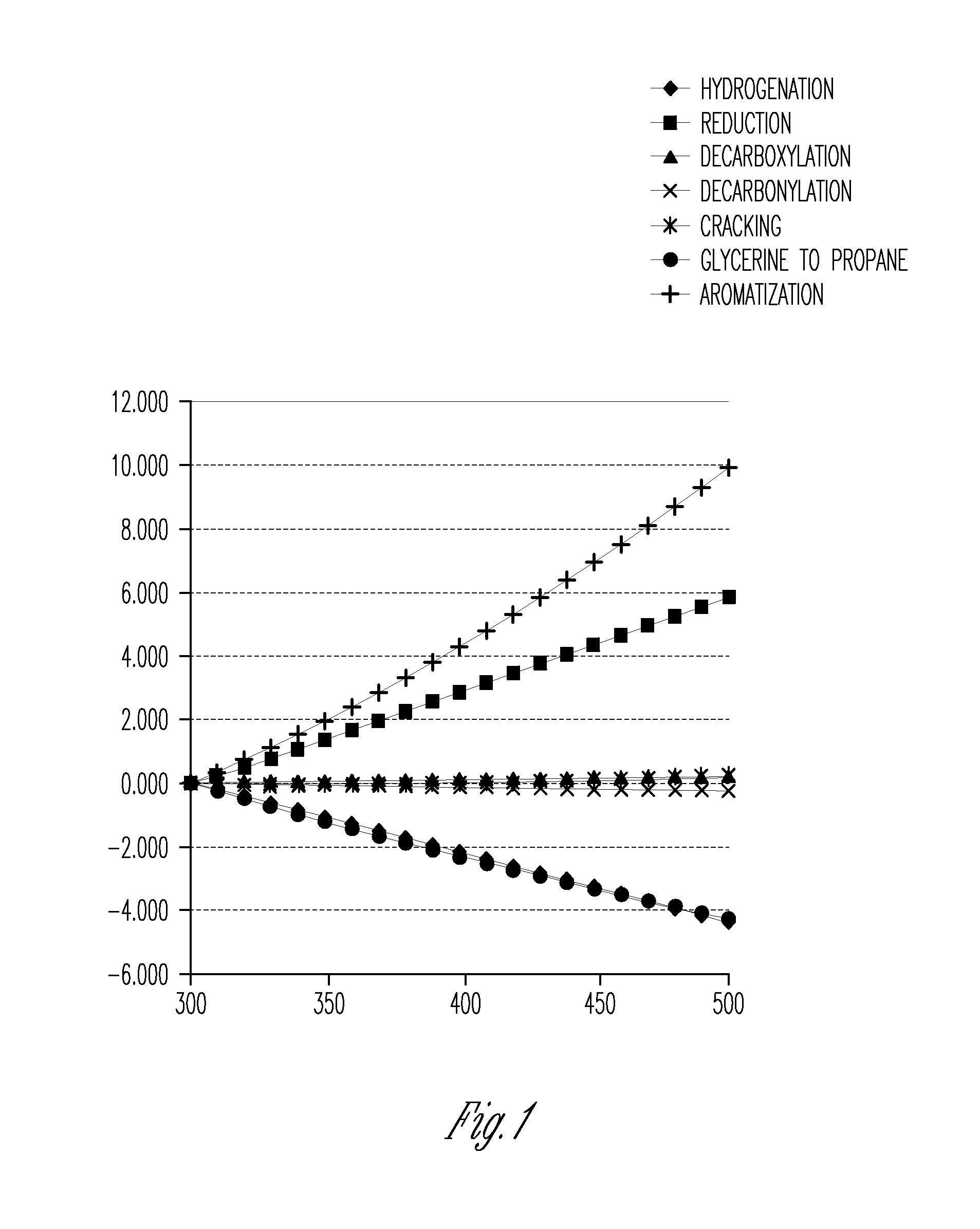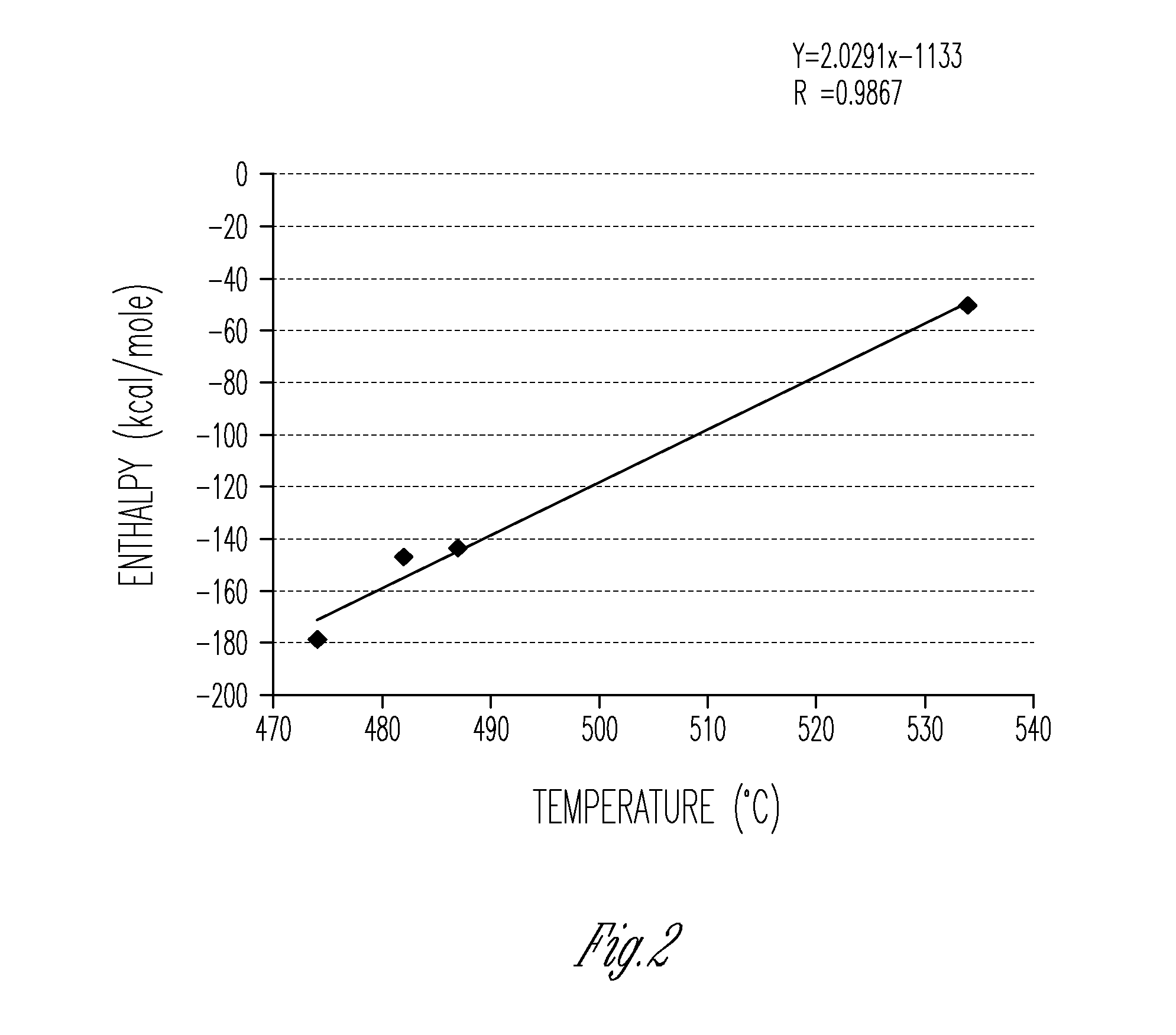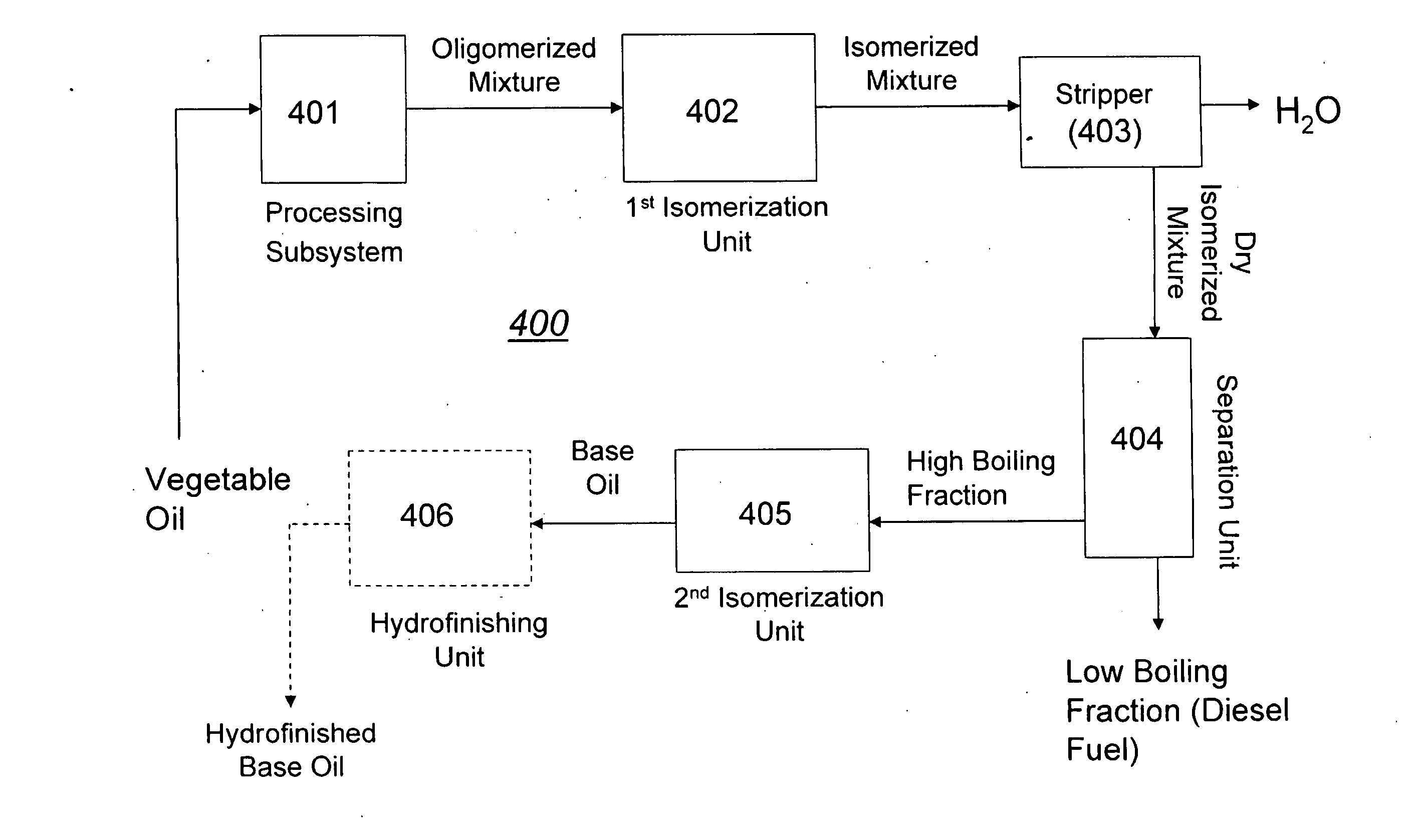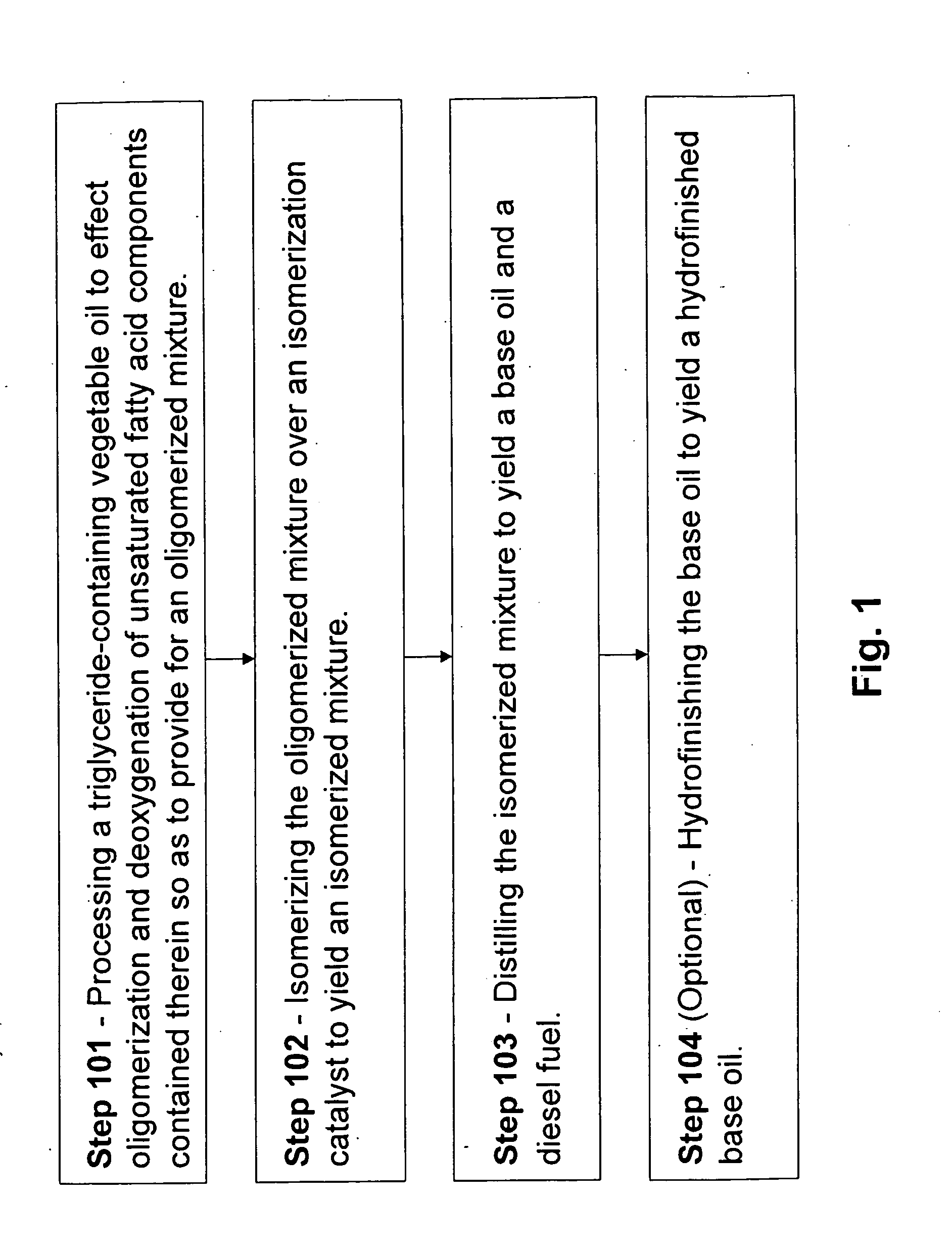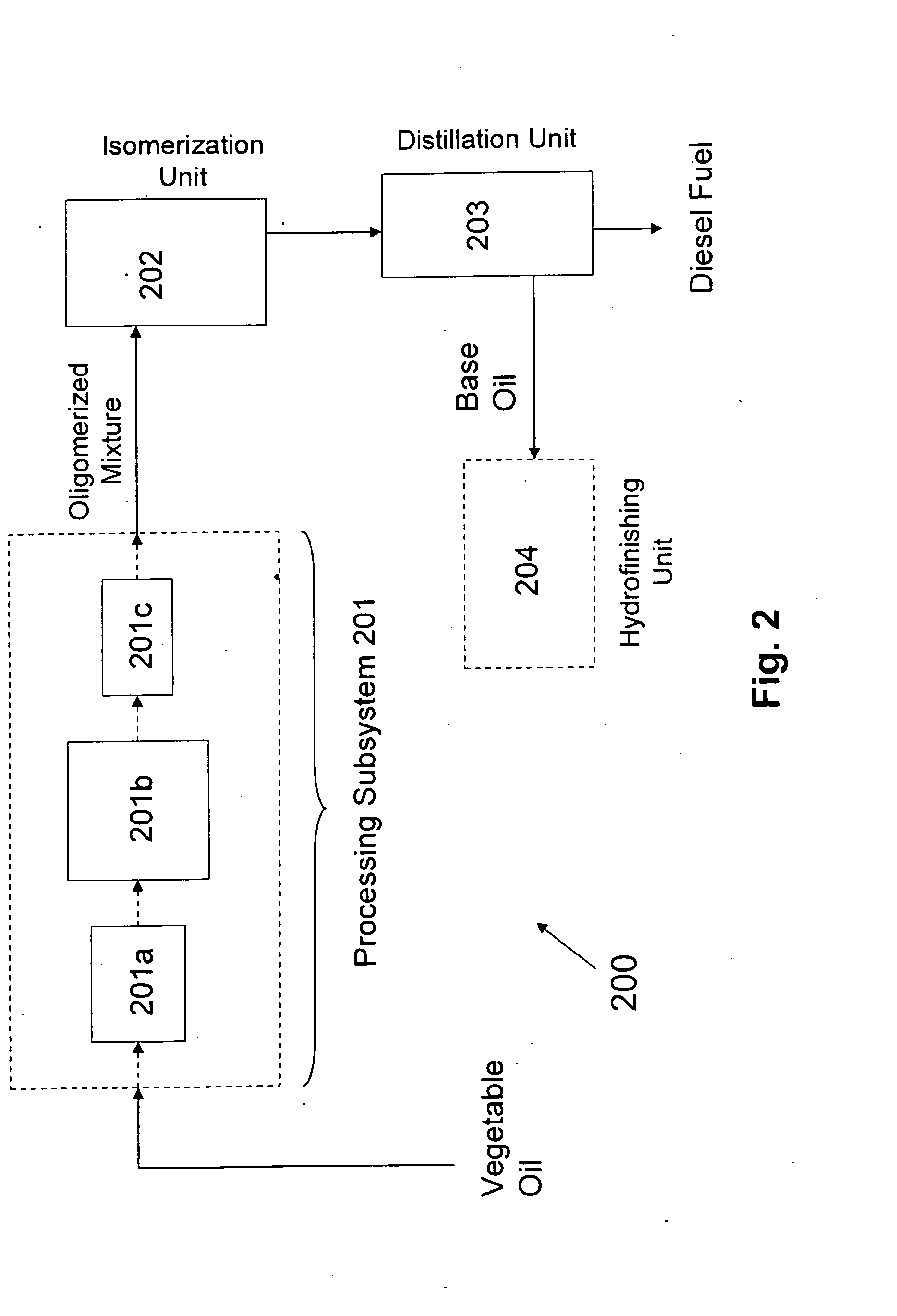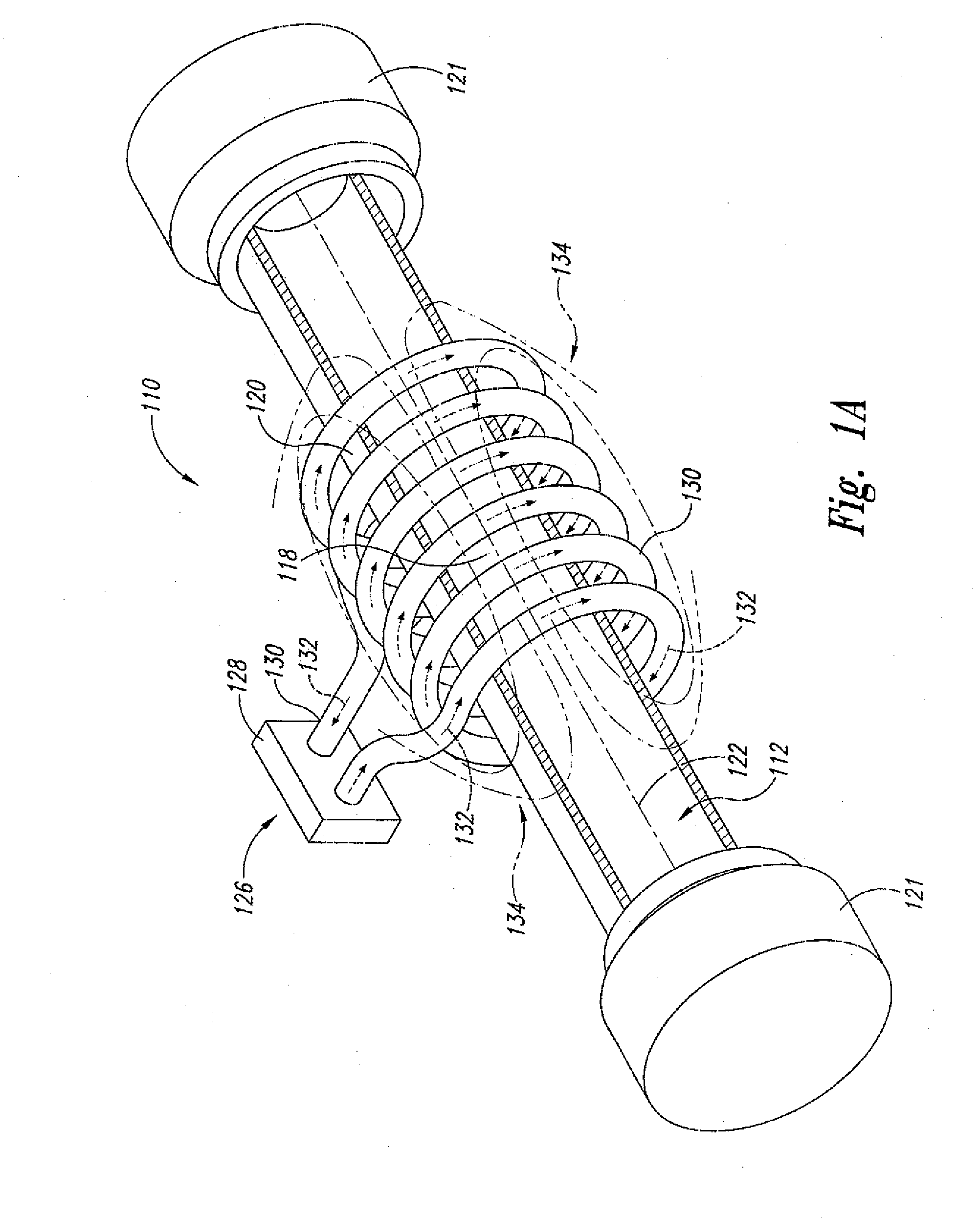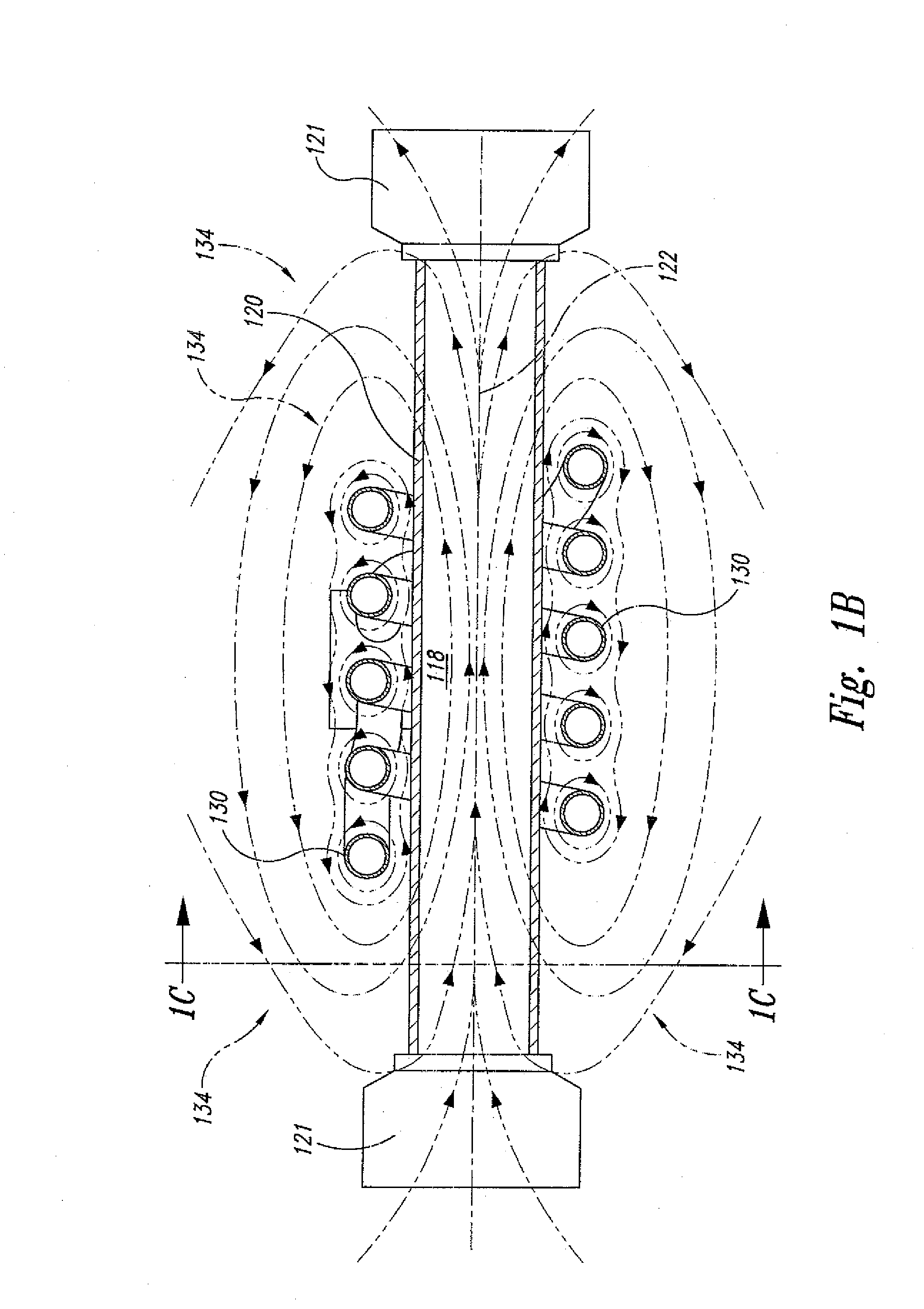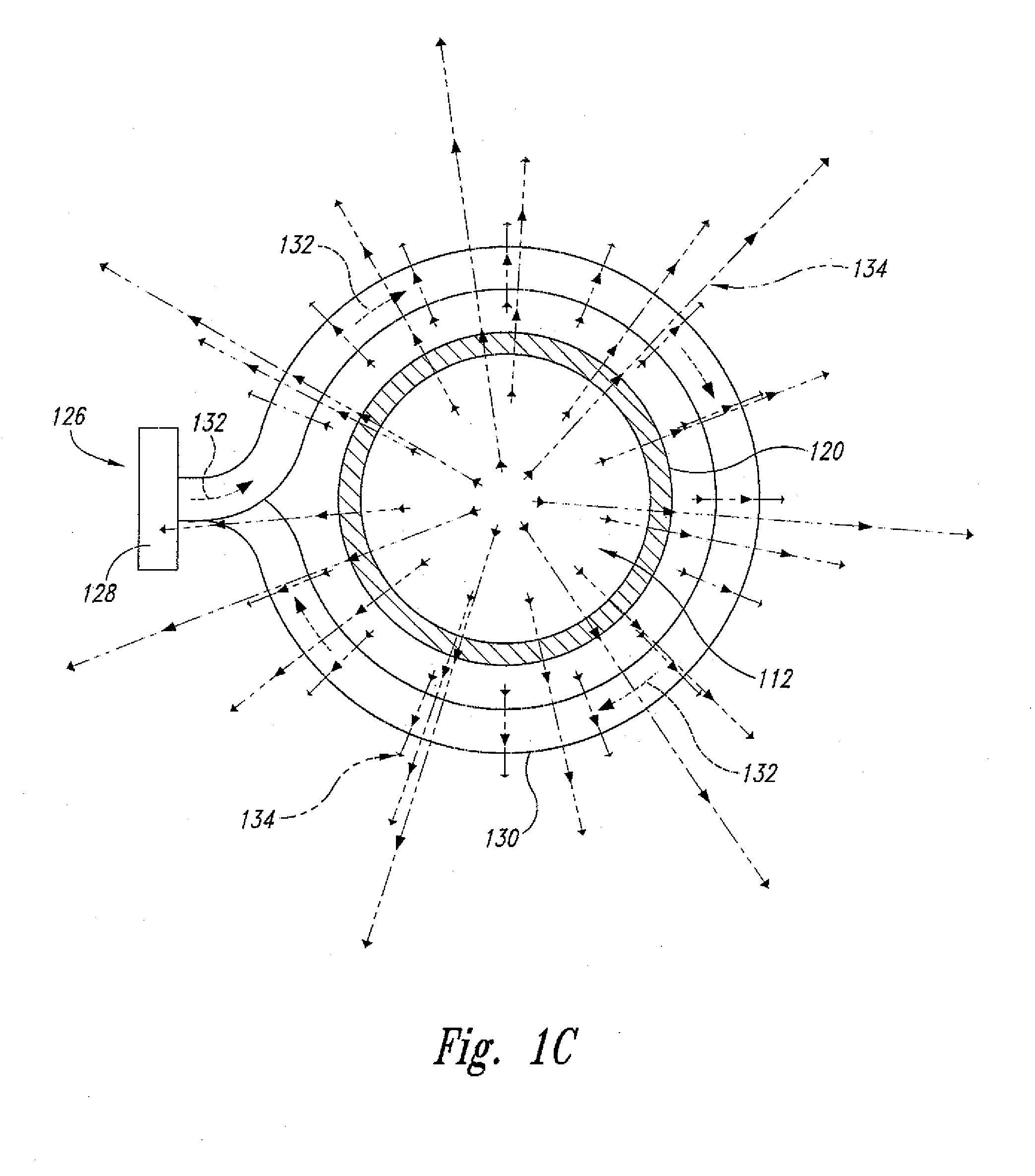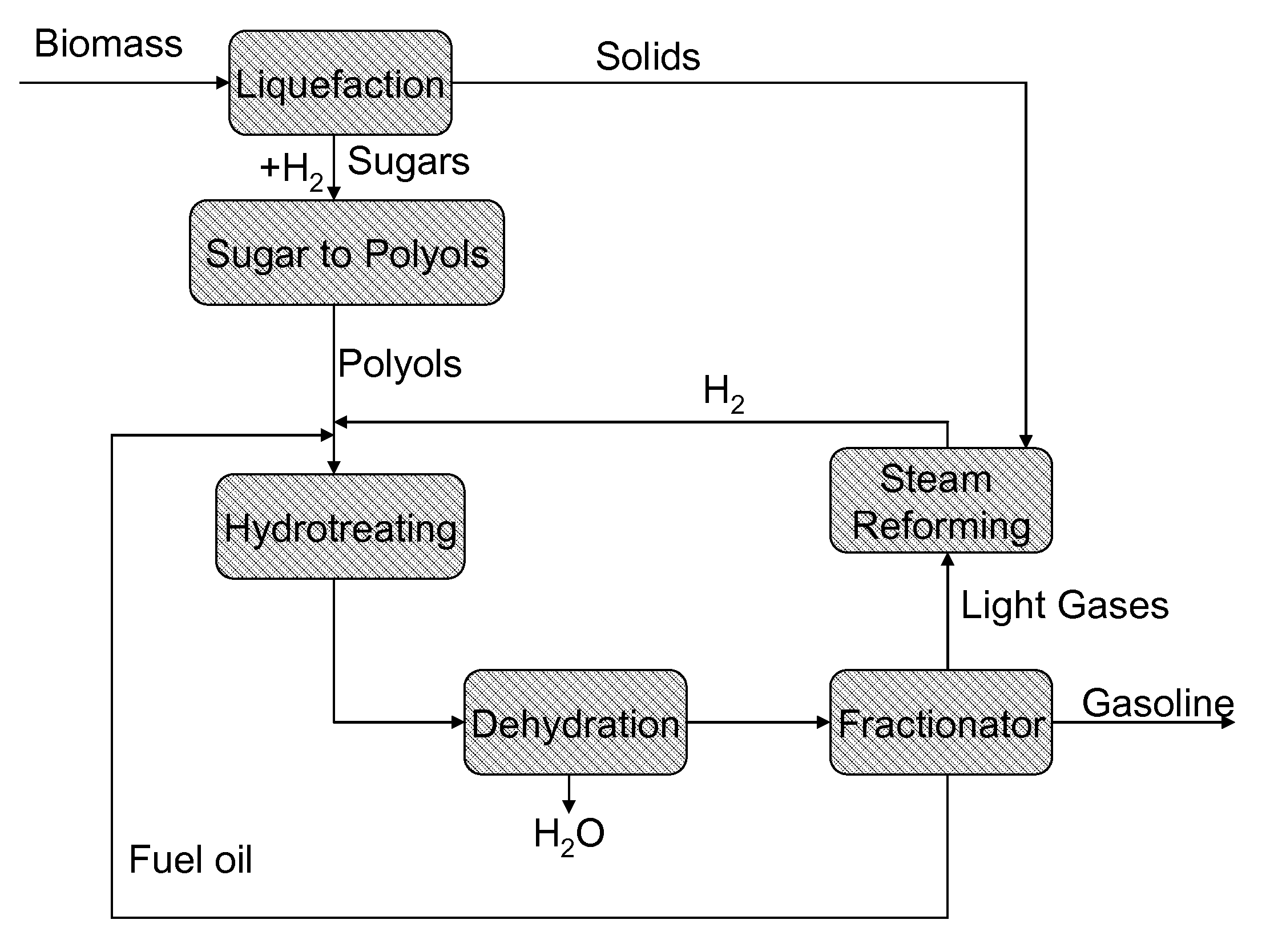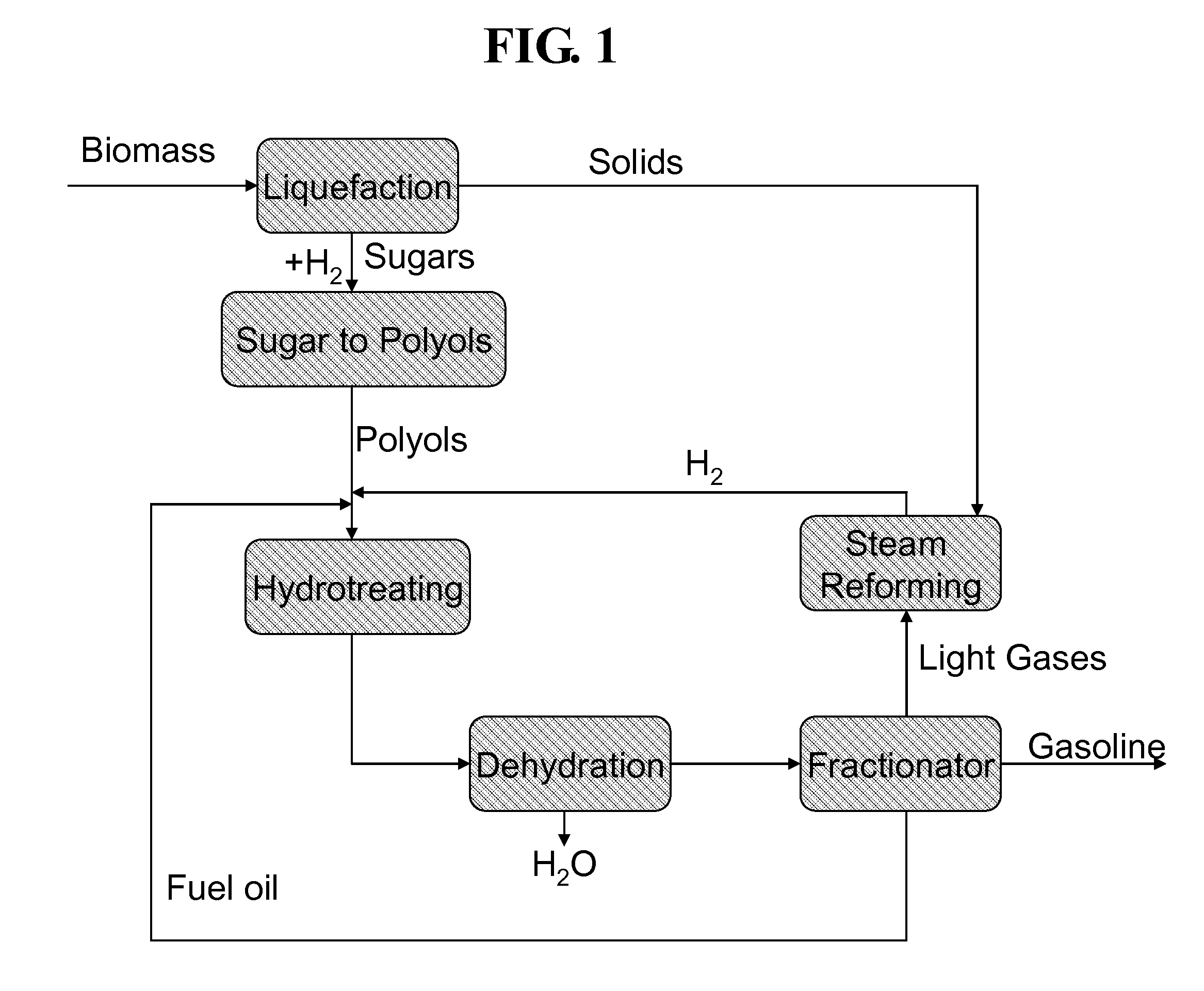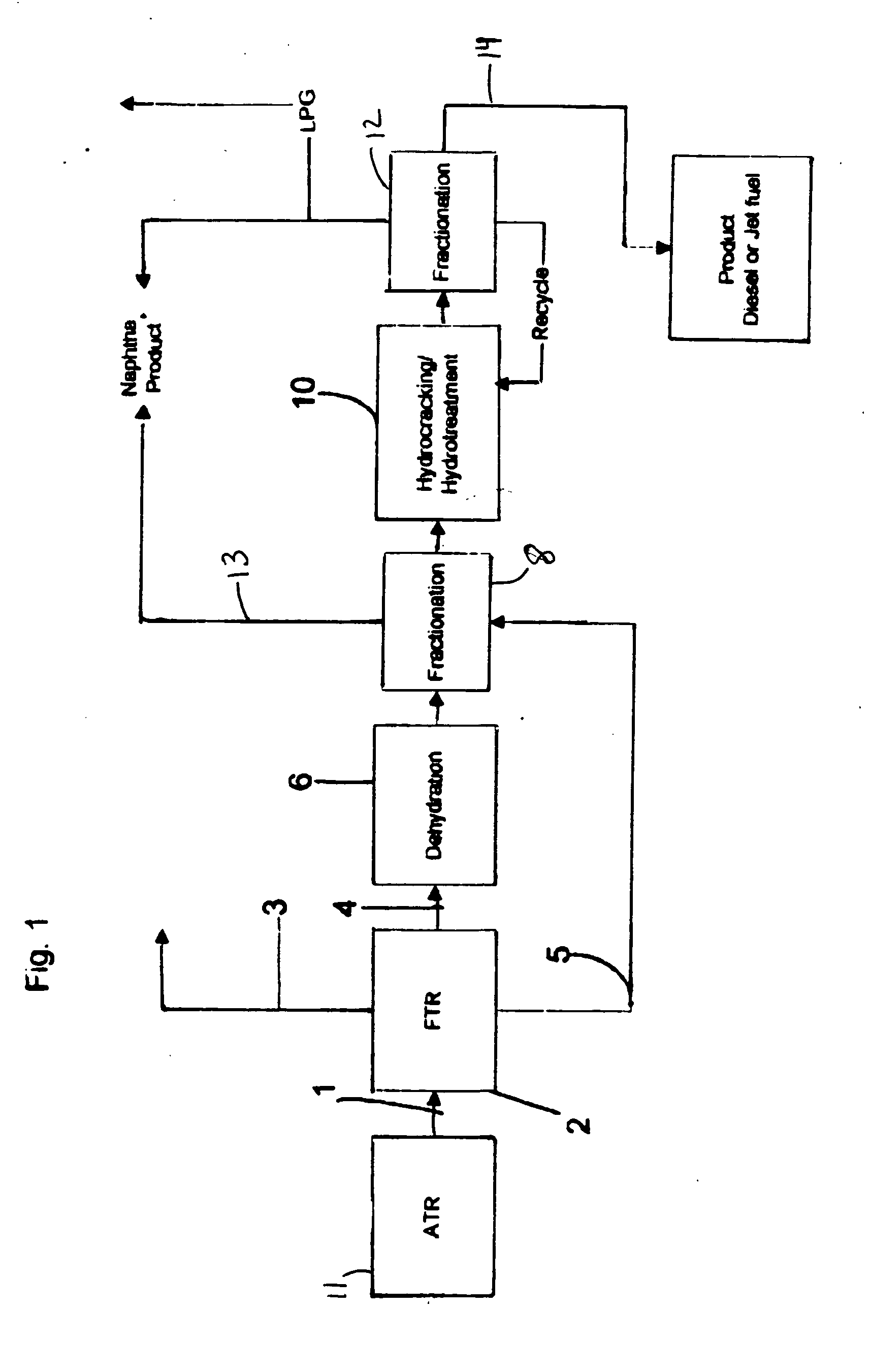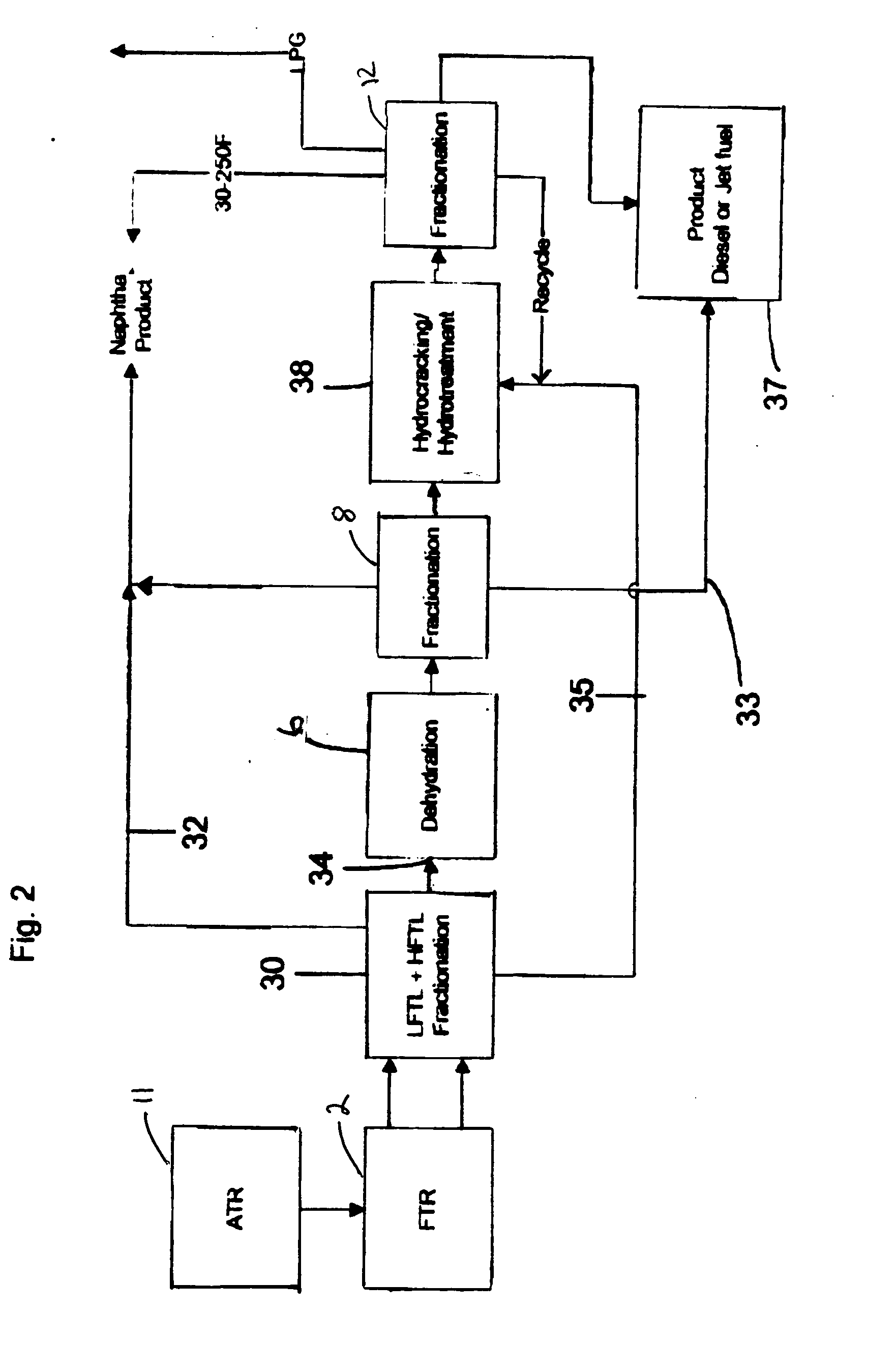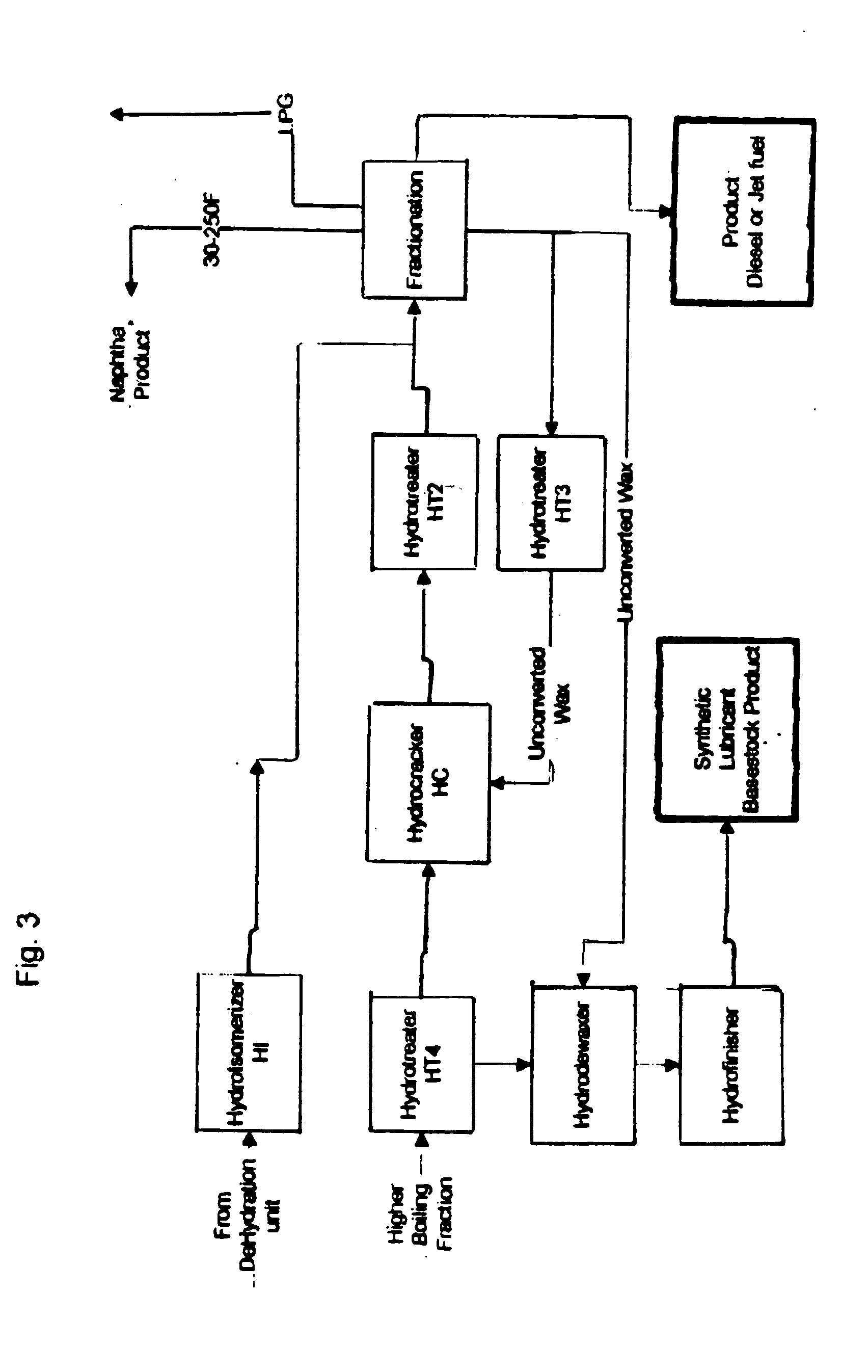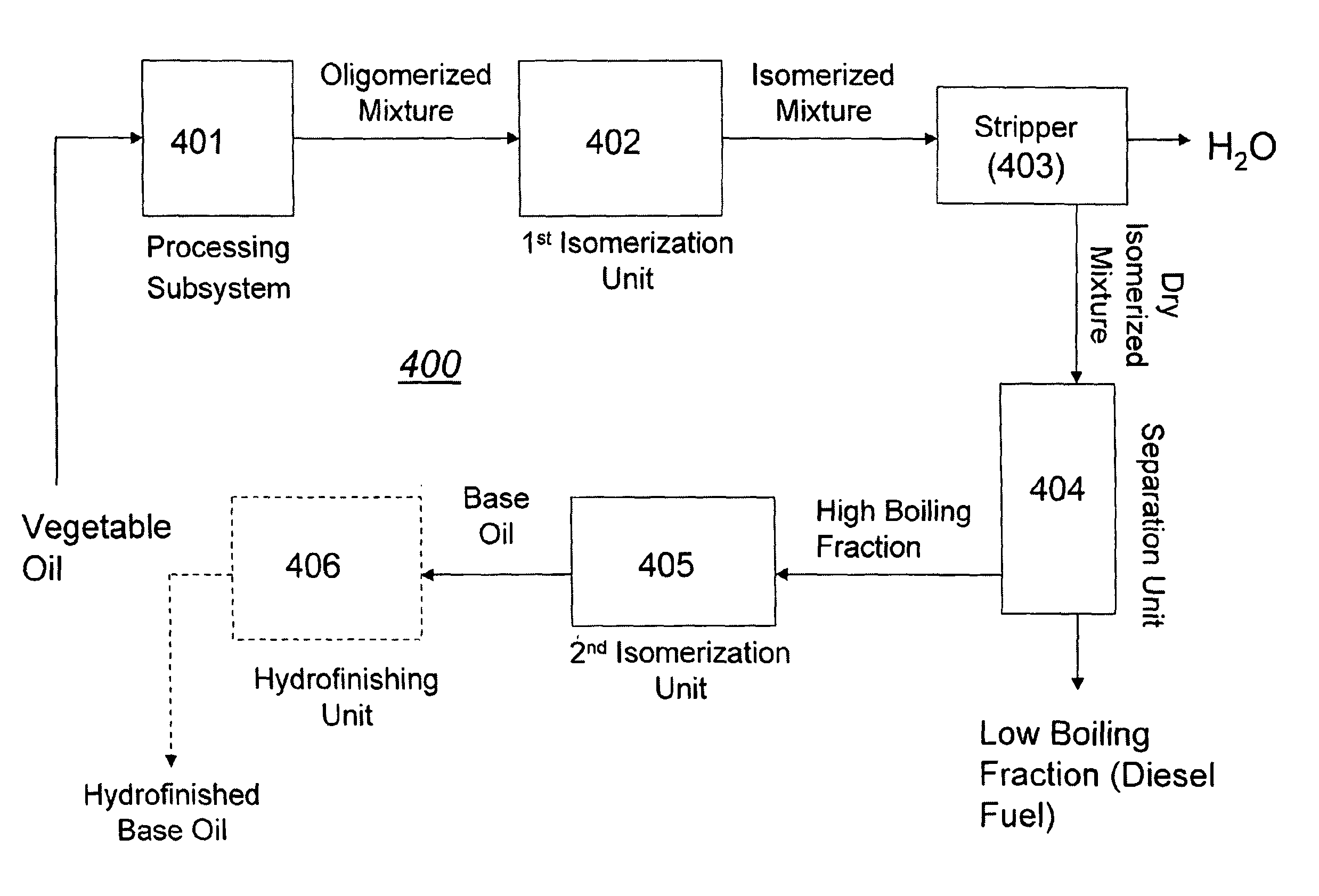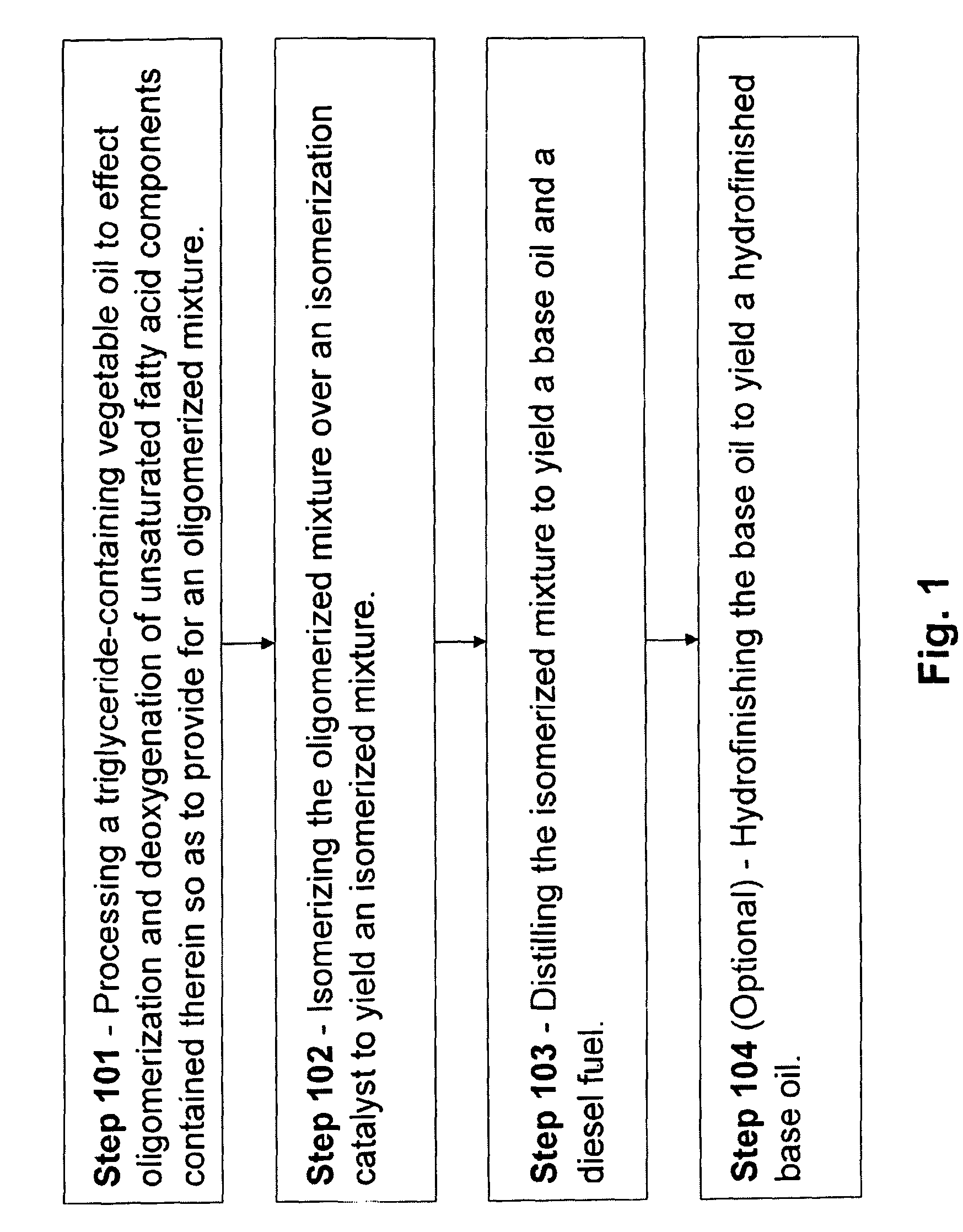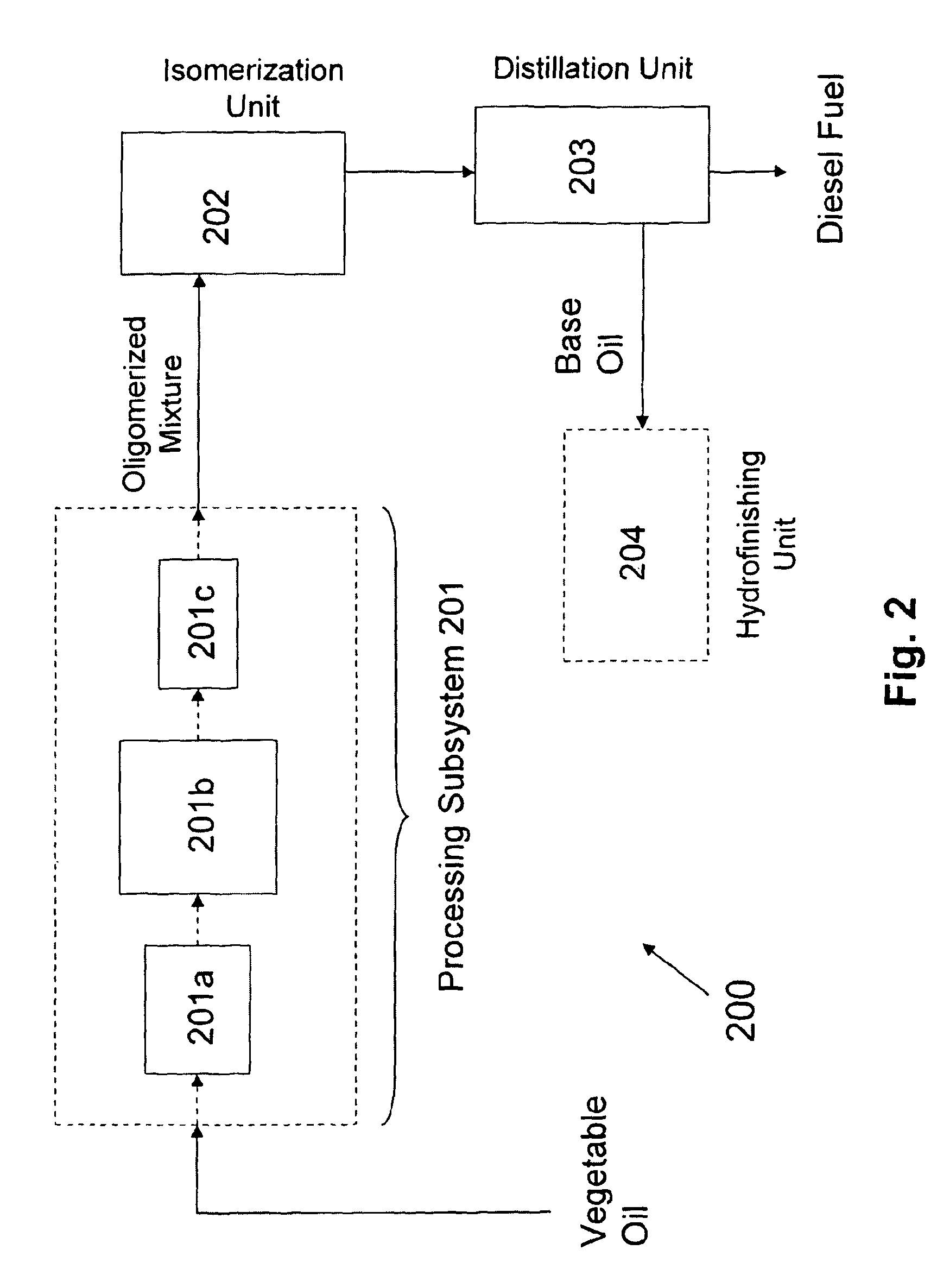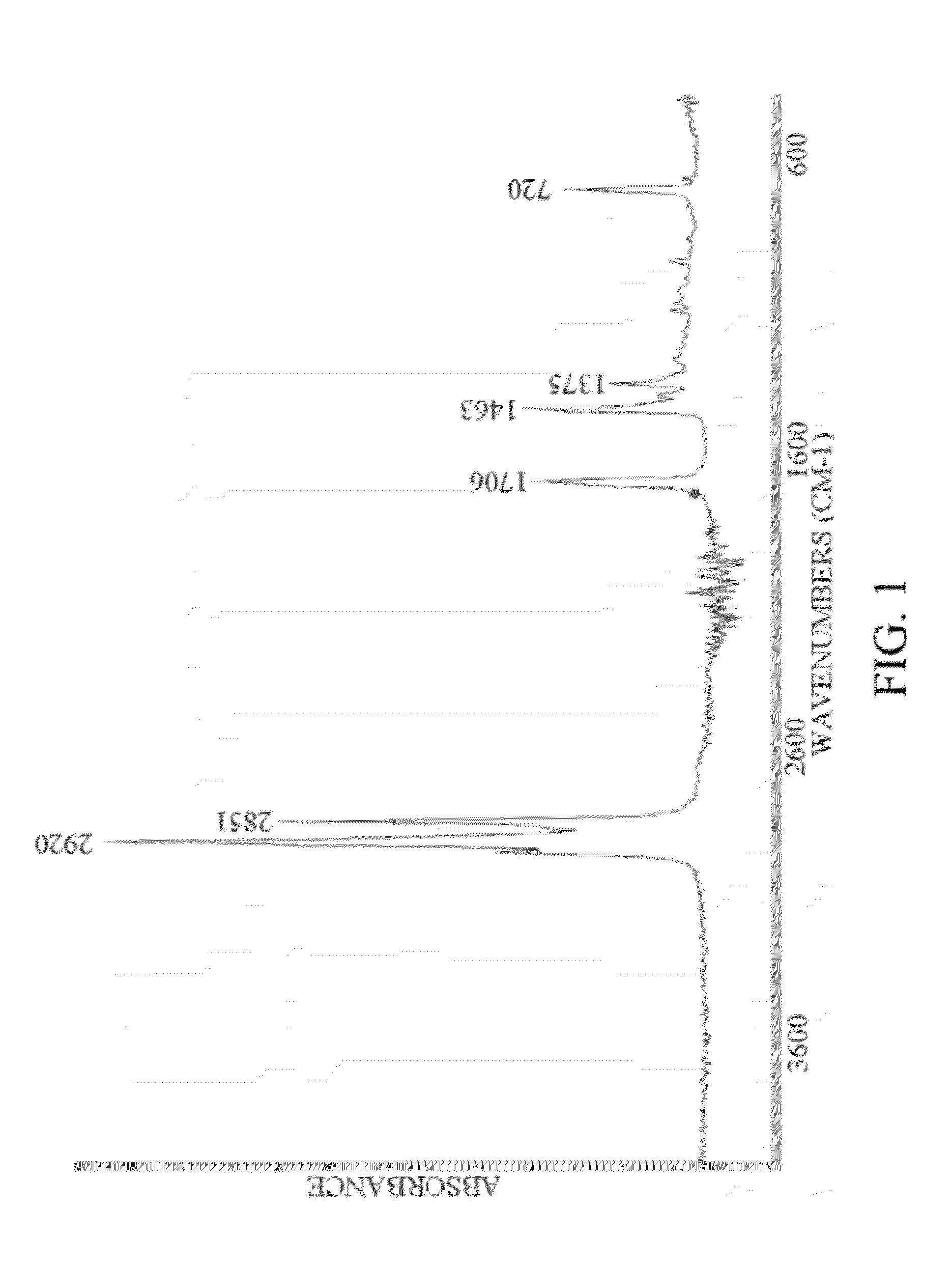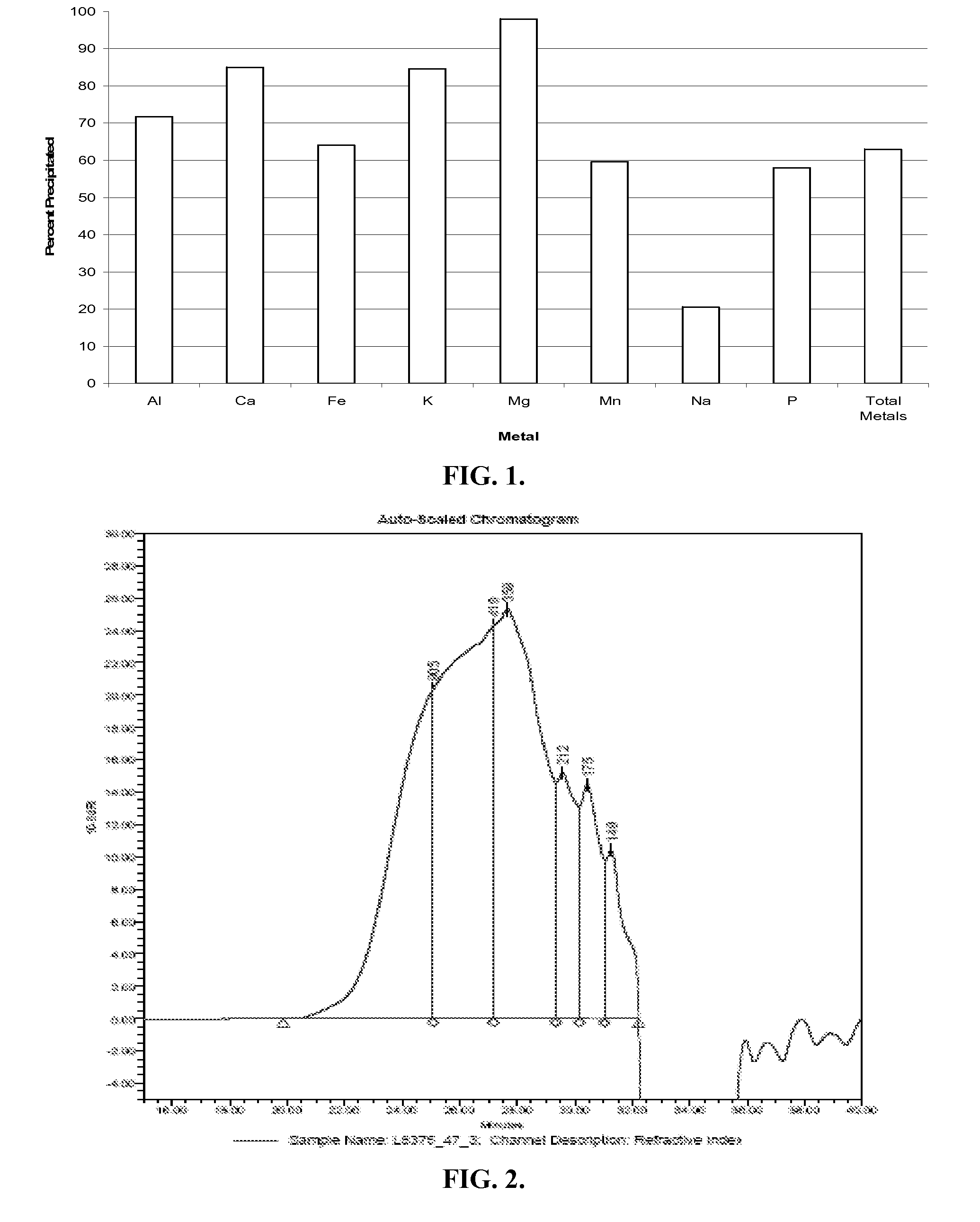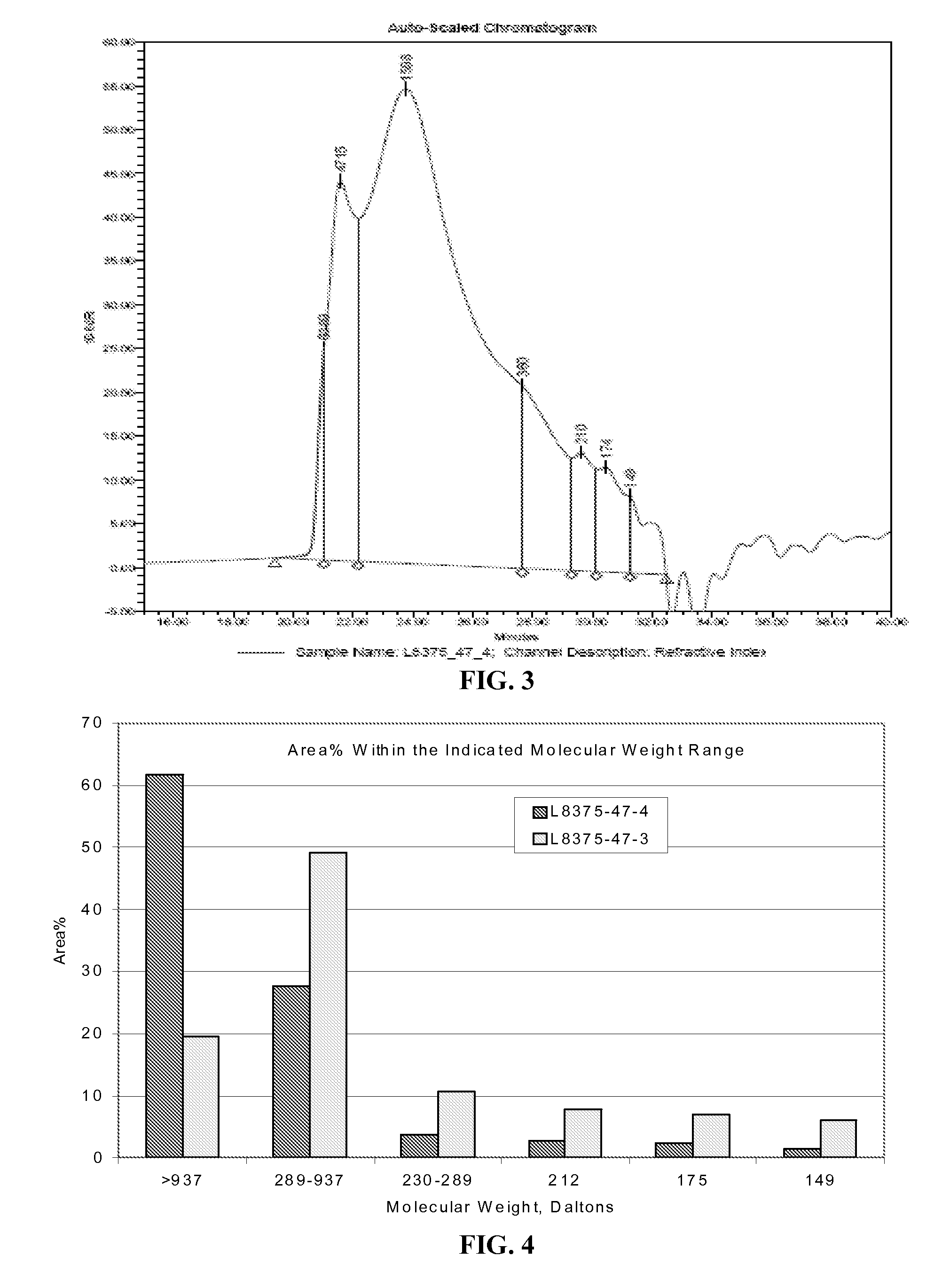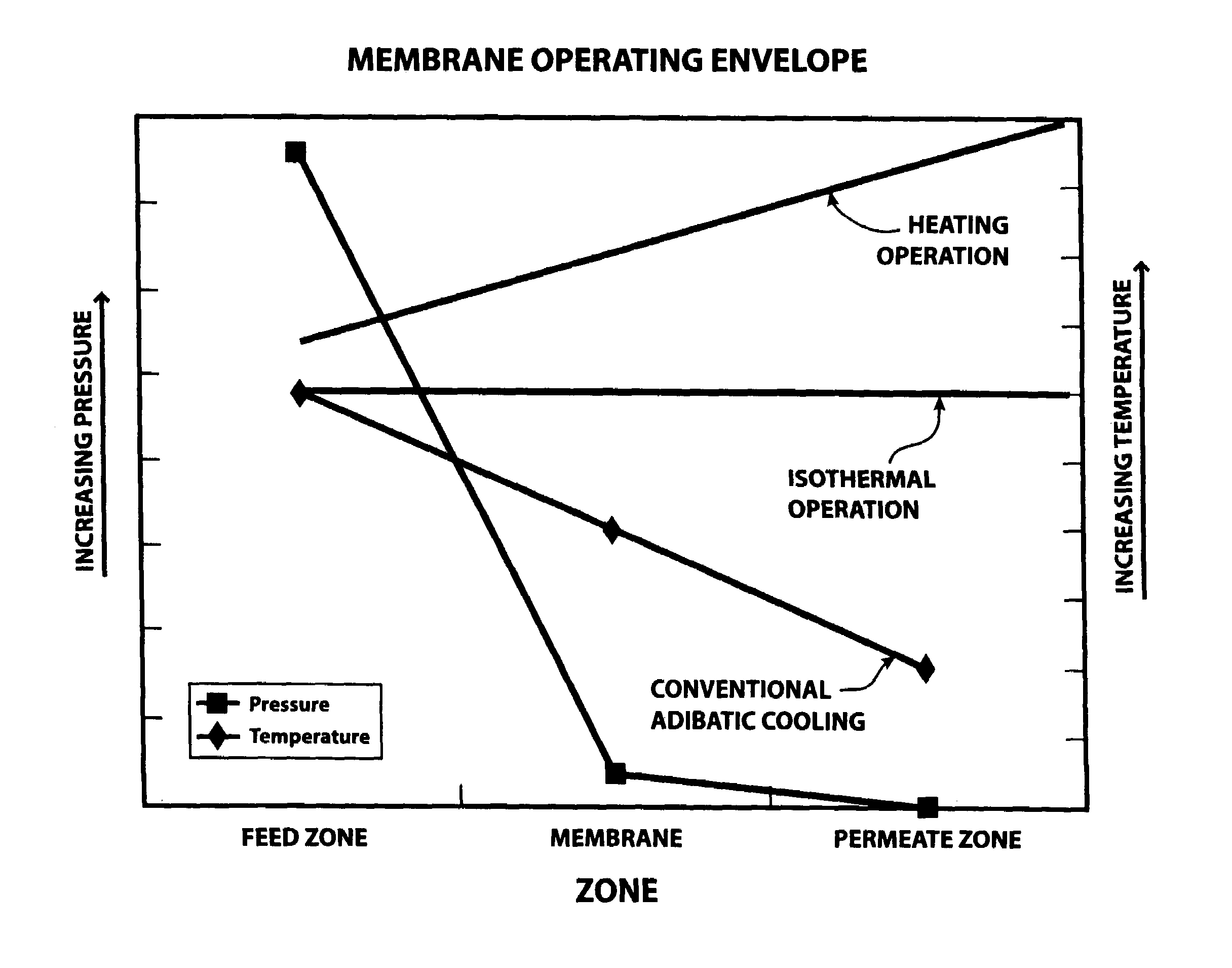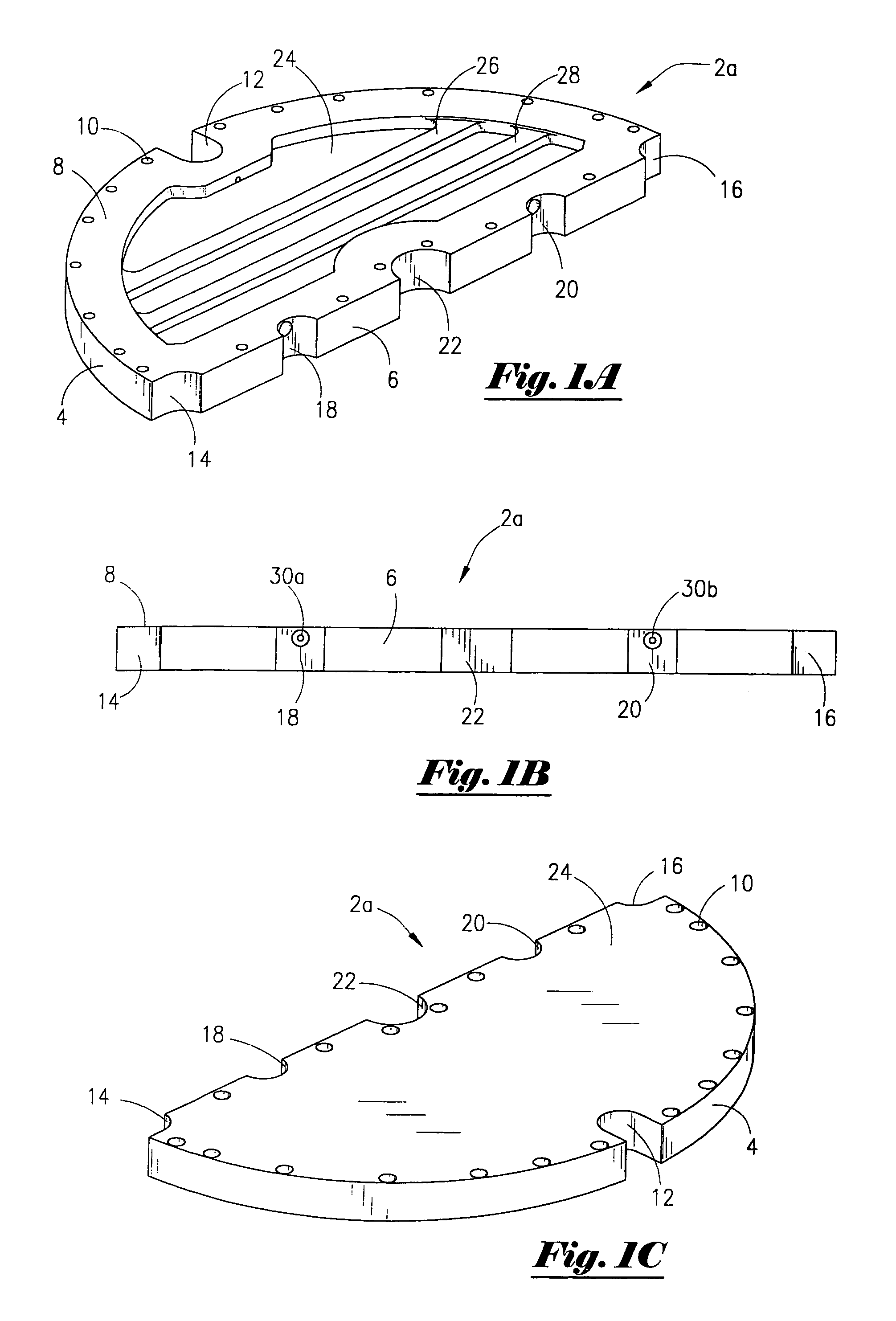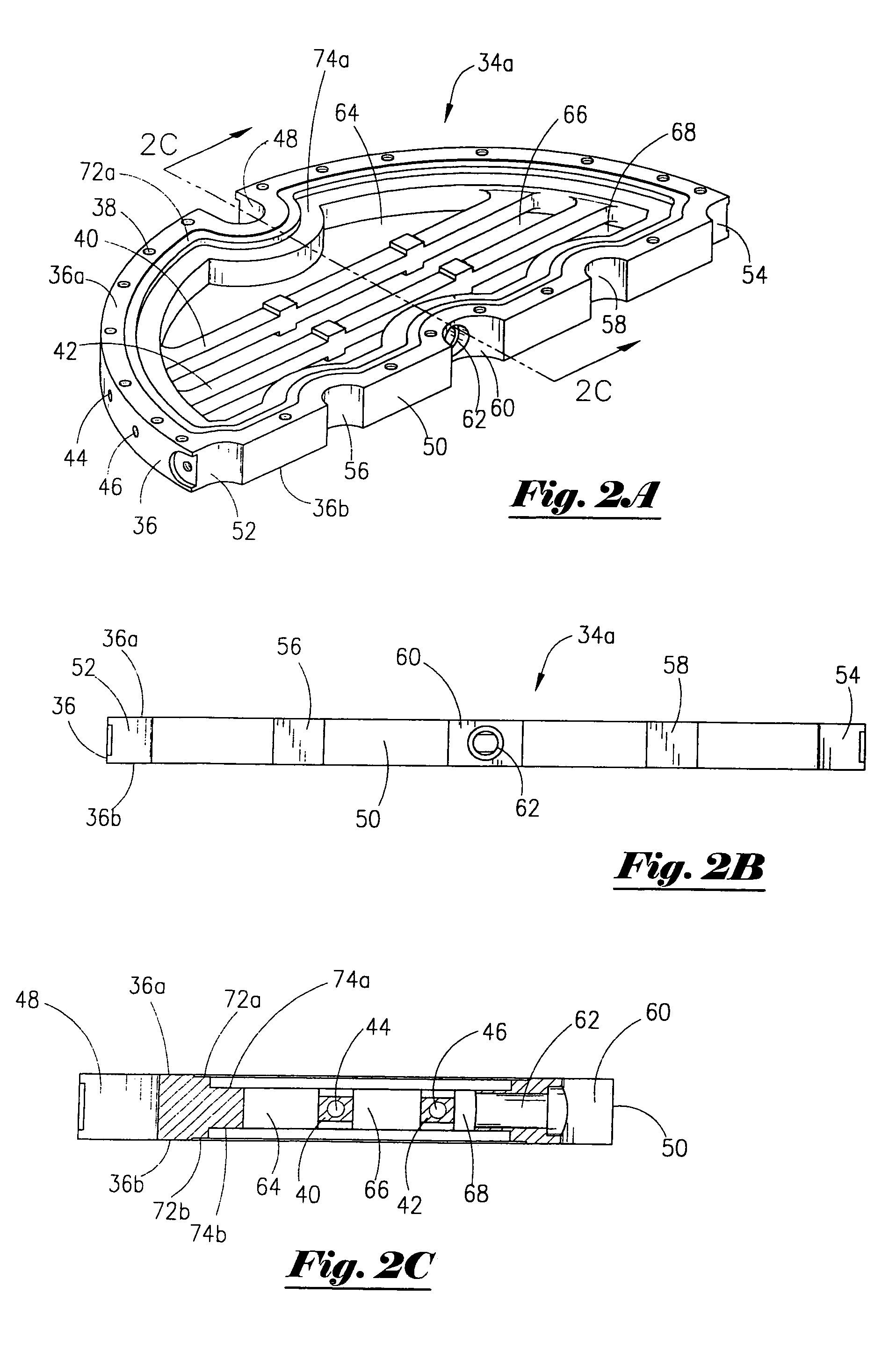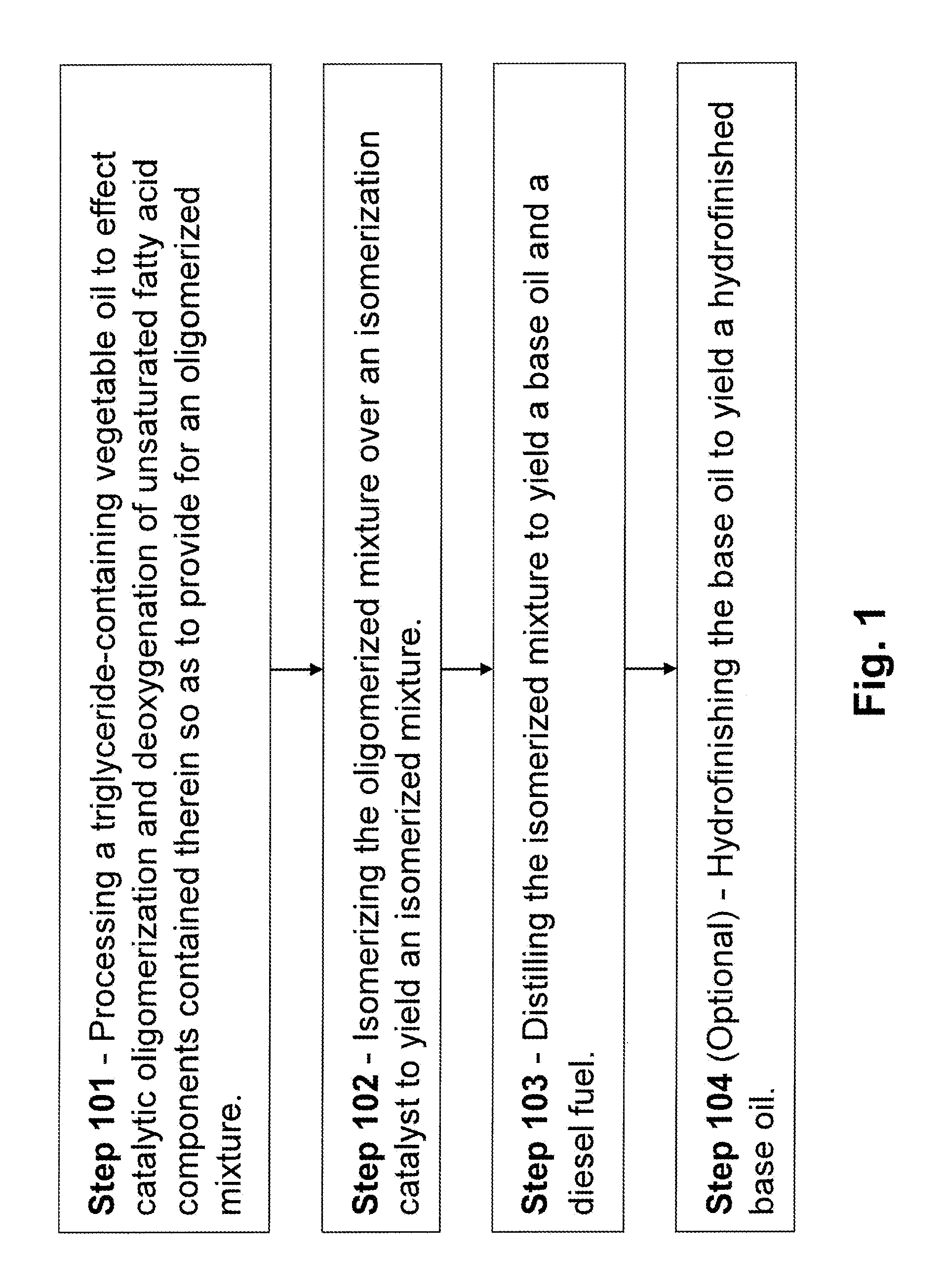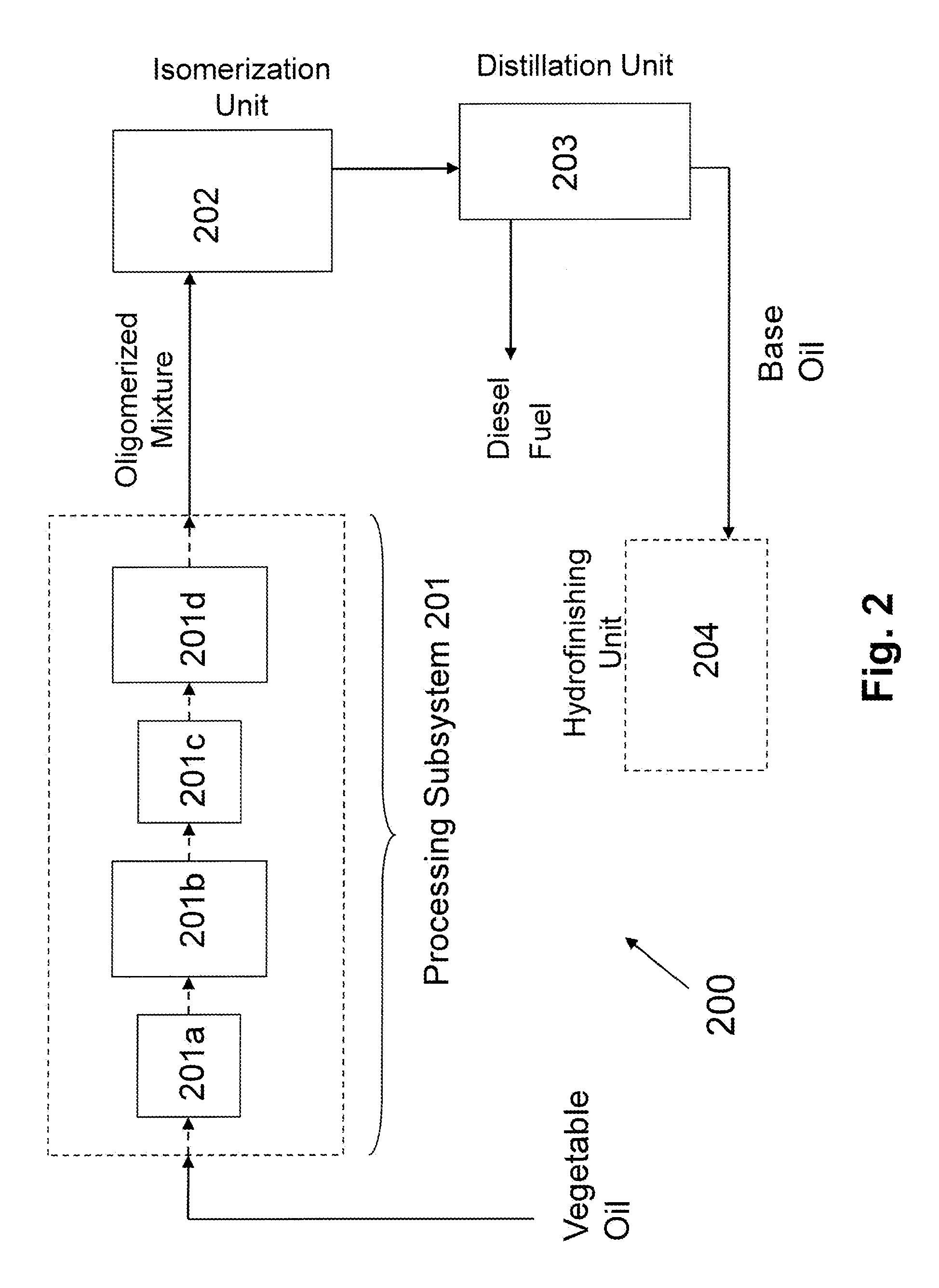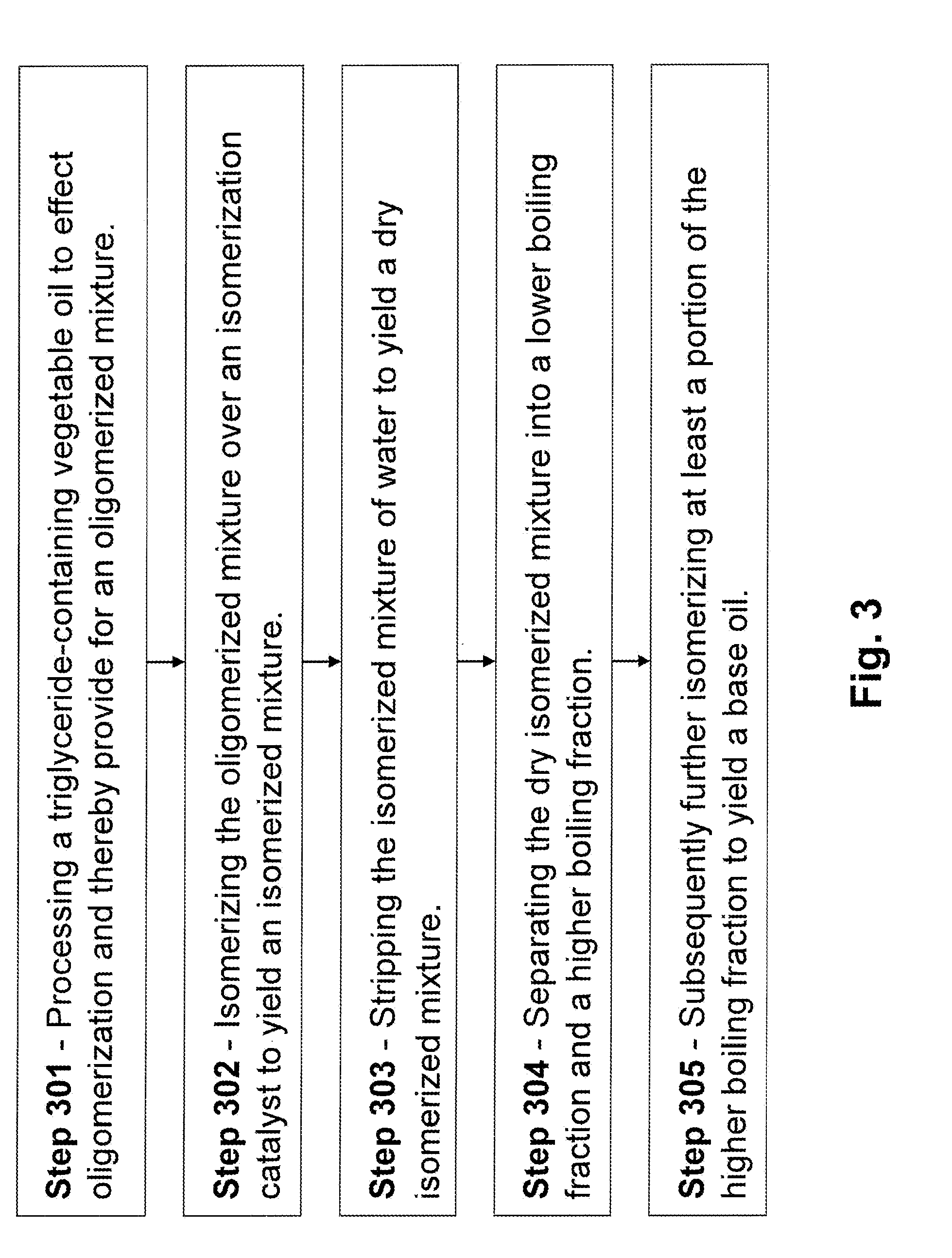Patents
Literature
249 results about "Transportation fuel" patented technology
Efficacy Topic
Property
Owner
Technical Advancement
Application Domain
Technology Topic
Technology Field Word
Patent Country/Region
Patent Type
Patent Status
Application Year
Inventor
Process for conversion of biomass to fuel
ActiveUS7816570B2Meet growth needsEasy to processFatty acid esterificationRefining to change hydrocarbon structural skeletonAlkaneChain length
Owner:NORTH CAROLINA STATE UNIV
Production of liquid alkanes in the jet fuel range (c8-c15) from biomass-derived carbohydrates
Described is a method for making a composition comprising alkanes. The composition is suitable for use as a liquid transportation fuel in general, and jet fuel in particular. The method includes dehydrating a feedstock solution comprising a carbohydrate, in the presence of an acid catalyst, to yield at least one furan derivative compound, in a reaction vessel containing a biphasic reaction medium: an aqueous reaction solution and a substantially immiscible organic extraction solution. The furan derivative compound is then subjected to a self-aldol condensation reaction or a crossed-aldol condensation reaction with another carbonyl compound to yield a beta-hydroxy carbonyl compound and / or an alpha-beta unsaturated carbonyl compound. The beta-hydroxy carbonyl and / or alpha-beta unsaturated compounds are then hydrogenated to yield a saturated or partially saturated compound, followed by hydrodeoxygenation (e.g., dehydrating and hydrogenating) of the saturated or partially saturated compound to yield a composition of matter comprising alkanes.
Owner:WISCONSIN ALUMNI RES FOUND
Energy network
InactiveUS20050165511A1Improve efficiencyEmission reductionMechanical power/torque controlElectrolysis componentsElectricityPower station
An energy network is provided. An embodiment includes a network having a plurality of power stations and a plurality of loads interconnected by an electricity grid. The loads include electrolysers. The network also includes a controller that is connected to both the stations and the loads. The controller is operable to vary the available power from the power stations and / or adjust the demand from the electrolysers to provide a desired match of availability with demand and produce hydrogen as a transportation fuel with specific verifiable emission characteristics
Owner:STUART ENERGY SYST
Process for conversion of biomass to fuel
ActiveUS20090069610A1Meet growth needsEasy to processFatty acid esterificationRefining to change hydrocarbon structural skeletonAlkaneChain length
The present invention is directed to processes for the direct conversion of lipidic biomass fuelstock to combustible fuels. In particular, the invention provides a process for the direct conversion of animal fats to transportations fuels suitable as replacement for petroleum-derived transportation fuels. In one embodiment, the method comprises the steps of hydrolyzing a lipidic biomass to form free fatty acids, catalytically deoxygenating the free fatty acids to form n-alkanes, and reforming at least a portion of the n-alkanes into a mixture of compounds in the correct chain length, conformations, and ratio to be useful transportation fuels. Particularly, the product prepared according to the invention comprises mixtures of hydrocarbon compounds selected from the group consisting of n-alkanes, isoalkanes, aromatics, cycloalkanes, and combinations thereof.
Owner:NORTH CAROLINA STATE UNIV
Production of synthetic transportation fuels from carbonaceous material using self-sustained hydro-gasification
InactiveUS7208530B2Easy to analyzeEnergy efficiencyWaste based fuelHydrogen productionElectricitySyngas
A process and apparatus for producing a synthesis gas for use as a gaseous fuel or as feed into a Fischer-Tropsch reactor to produce a liquid fuel in a substantially self-sustaining process. A slurry of particles of carbonaceous material in water, and hydrogen from an internal source, are fed into a hydro-gasification reactor under conditions whereby methane rich producer gases are generated and fed into a steam pyrolytic reformer under conditions whereby synthesis gas comprising hydrogen and carbon monoxide are generated. A portion of the hydrogen generated by the steam pyrolytic reformer is fed through a hydrogen purification filter into the hydro-gasification reactor, the hydrogen therefrom constituting the hydrogen from an internal source. The remaining synthesis gas generated by the steam pyrolytic reformer is either used as fuel for a gaseous fueled engine to produce electricity and / or process heat or is fed into a Fischer-Tropsch or similar reactor under conditions whereby a liquid fuel is produced.
Owner:RGT UNIV OF CALIFORNIA
Integrated method for producing a fuel component from biomass and system therefor
Disclosed here are integrated methods and systems for producing fuel from biomass. The methods and systems pertain to gasifying a feed derived from biomass fermentate separation residue, such as corn-based distiller's grains, and producing a liquid transportation fuel component, such as aviation turbine fuel, from the gasified feed in a hydrocarbon synthesis reactor. At least a portion of the waste heat from the hydrocarbon synthesis reactor is supplied to a thermal process for liquefying, fermenting or distilling a biomass, or to a thermal process for separating or treating a biomass fermentate separation residue.
Owner:GENERAL ELECTRIC CO
Production of Transportation Fuel from Renewable Feedstocks
ActiveUS20090229172A1Reduce first amountMinimize the numberBiofuelsLiquid hydrocarbon mixture productionNaphthaHigh pressure hydrogen
A process has been developed for producing a diesel boiling point range product and an aviation boiling point range product from renewable feedstocks such as plant and animal oils. The process involves treating a renewable feedstock by hydrogenating and deoxygenating to provide a hydrocarbon fraction which is then isomerized and selectively cracked to form the diesel boiling point range product and the aviation boiling point range product. A portion of the diesel boiling point range product, aviation boiling point range product, naphtha product, LPG, or any combination thereof can be optionally used as a rectification agent in the selective hot high pressure hydrogen stripper to decrease the amount of product carried in the stripper overhead.
Owner:UOP LLC
Conversion of biomass feedstocks into hydrocarbon liquid transportation fuels
InactiveUS20100036181A1Reducing and even eliminating transportationReducing and even eliminating and distribution costLiquid hydrocarbon mixture productionTreatment with hydrotreatment processesProduct gasHydrocarbon
Methods for converting a carbon-containing feedstock into a fluid transportation fuel are described. The methods may include converting the carbon-containing feedstock into a producer gas comprising H2, CO, CO2, and N2, and reacting the producer gas with a substrate catalyst to produce a combination of Fischer-Tropsch (F-T) products, the F-T products including the fluid transportation fuel. A portion of the F-T products may be catalytically cracked to produce additional amounts of the fluid transportation fuel. A portion of the F-T products may also be hydrogenated to produce additional amounts of the fluid transportation fuel. Apparatuses are also described or converting a carbon-containing feedstock into a fluid transportation fuel. The apparatuses may include a producer gas reactor, a Fischer-Tropsch reactor, a cracking reactor, and a hydrogenation reactor.
Owner:COMMUNITY POWER CORP
Production of liquid alkanes in the jet fuel range (C8-C15) from biomass-derived carbohydrates
ActiveUS7880049B2High selectivityHydrocarbon from oxygen organic compoundsLiquid hydrocarbon mixture productionAlkaneFuran
Described is a method for making a composition comprising alkanes. The composition is suitable for use as a liquid transportation fuel in general, and jet fuel in particular. The method includes dehydrating a feedstock solution comprising a carbohydrate, in the presence of an acid catalyst, to yield at least one furan derivative compound, in a reaction vessel containing a biphasic reaction medium: an aqueous reaction solution and a substantially immiscible organic extraction solution. The furan derivative compound is then subjected to a self-aldol condensation reaction or a crossed-aldol condensation reaction with another carbonyl compound to yield a beta-hydroxy carbonyl compound and / or an alpha-beta unsaturated carbonyl compound. The beta-hydroxy carbonyl and / or alpha-beta unsaturated compounds are then hydrogenated to yield a saturated or partially saturated compound, followed by hydrodeoxygenation (e.g., dehydrating and hydrogenating) of the saturated or partially saturated compound to yield a composition of matter comprising alkanes.
Owner:WISCONSIN ALUMNI RES FOUND
Catalytic hydroconversion of chemically digested organic municipal solid waste materials
InactiveUS6270655B1Increase surface areaReduce total nitrogenLiquid hydrocarbon mixture productionHydrocarbon oil crackingParticulatesLiquid product
A hydrocarbon liquid feedstock containing at least 50 wt. % chemically digested organic-MSW material is catalytically hydroconverted utilizing either a single stage or two-stage catalytic reaction process to produce desirable lower-boiling hydrocarbon liquid products. The catalyst can be either a particulate supported type catalyst such as containing cobalt and / or molybdenum and / or nickel on alumina support, or a dispersed slurry type catalyst containing mainly iron oxide with anions of molybdate, phosphate, sulfate or tungstate, and combinations thereof. Broad useful reaction conditions are 600-860° F. (315-460° C.) temperature, 1000-3000 psi hydrogen partial pressure, and fresh feed rate of 20-60 pounds / hr / ft3 reactor volume. Effluent material from the final stage catalytic reactor is phase separated and the resulting liquid portion is fractionated to produce the desired low-boiling hydrocarbon liquid products particularly useful as transportation fuels. If desired, the chemically digested organic-MSW feedstock can be blended with petroleum residua and / or particulate coal and / or mixed waste plastics and the blended feed material processed in catalytic two-stage reactors to produce similar desirable low-boiling hydrocarbon liquid products.
Owner:HYDROCARBON TECH
System and method for producing transportation fuels from waste plastic and biomass
InactiveUS20090151233A1Refining to change hydrocarbon structural skeletonBiofuelsEnvironmental engineeringTransportation fuel
The present invention is generally directed to methods and systems for producing biofuels via biomass, waste plastic, and / or Fischer-Tropsch product feeds. Such methods and systems are an improvement over the existing art at least in that they are feed-tolerant (i.e. allow for variability) and provide an economy of scale, while typically retaining the environmental benefits associated with such processing of such feeds.
Owner:CHEVROU USA INC
Preparation of components for transportation fuels
InactiveUS6881325B2Environmentally friendlyRefining with oxygen compoundsRefining with acid-containing liquidsPhosphomolybdic acidComponents of crude oil
Economical processes are disclosed for the production of components for refinery blending of transportation fuels by selective oxidation of feedstocks comprising a mixture of hydrocarbons, sulfur-containing and nitrogen-containing organic compounds. Oxidation feedstock is contacted with a soluble quaternary ammonium salt containing halogen, sulfate, or bisulfate anion, and an immiscible aqueous phase comprising a source of hydrogen peroxide, and at least one member of the group consisting of phosphomolybdic acid and phosphotungstic acid, in a liquid reaction mixture under conditions suitable for reaction of one or more of the sulfur-containing and / or nitrogen-containing organic compounds. Blending components containing less sulfur and / or less nitrogen than the oxidation feedstock are recovered from the reaction mixture. Advantageously, at least a portion of the immiscible acid-containing phase is recycled to the oxidation.
Owner:BP CORP NORTH AMERICA INC
Oxidative Desulfurization Process
InactiveUS20080308463A1Reduce sulfur contentRefining with metalsMolecular sieve catalystsSulfurNitrogen
Disclosed is a process which reduces the sulfur and / or nitrogen content of a distillate feedstock to produce a refinery transportation fuel or blending components for refinery transportation fuel, by contacting the feedstock with an oxygen-containing gas in an 5 oxidation / adsorption zone at oxidation conditions in the presence of an oxidation catalyst comprising a titanium-containing composition whereby the sulfur species are converted to sulfones and / or sulfoxides which are adsorbed onto the titanium-containing composition.
Owner:BP CORP NORTH AMERICA INC
Transportation fuels from biomass oxygenates
ActiveUS20130237728A1Liquid hydrocarbon mixtures productionCatalyst activation/preparationOxygenatePulp and paper industry
Oxygenate feedstocks derived from biomass are converted to a variety of fuels including gas, jet, and diesel fuel range hydrocarbons. General methods are provided including hydrolysis, dehydration, hydrogenation, condensation, oligomerization, and / or a polishing hydrotreating.
Owner:PHILLIPS 66 CO
Energy network using electrolysers and fuel cells
InactiveUS20060208571A1Improve system reliabilityAvoid the needDc network circuit arrangementsElectrolysis componentsElectricityFuel cells
Owner:STUART ENERGY SYST
Solvent-enhanced biomass liquefaction
InactiveUS20120005949A1Conducive to liquefactionReduce side effectsSolvent extractionLiquid carbonaceous fuelsLiquid productHydrogen
The present invention provides an improved method for solvent liquefaction of biomass to produce liquid products such as transportation fuel. The method uses a novel solvent combination that promotes liquefaction relatively quickly, and it reduces the need to transport large amounts of hydrogen or hydrogen-carrying solvents. It operates at lower pressure than previous methods, does not require a catalyst or hydrogen gas or CO input, and provides very high conversion of biomass into a bio-oil that can be further processed in a petroleum refinery. It also beneficially provides a way to recycle a portion of the crude liquefaction product for use as part of the solvent combination for the biomass liquefaction reaction.
Owner:CLE HLDG
System and method for producing transportation fuels from waste plastic and biomass
InactiveUS7834226B2Refining to change hydrocarbon structural skeletonBiofuelsEnvironmental engineeringTransportation fuel
The present invention is generally directed to methods and systems for producing biofuels via biomass, waste plastic, and / or Fischer-Tropsch product feeds. Such methods and systems are an improvement over the existing art at least in that they are feed-tolerant (i.e., allow for variability) and provide an economy of scale, while typically retaining the environmental benefits associated with such processing of such feeds.
Owner:CHEVROU USA INC
Process for the conversion of renewable oils to liquid transportation fuels
InactiveUS20120157734A1Efficient reductionEfficient processingBiofuelsSolid fuelsIsomerizationKerosene
The present invention relates to production of fuels or fuel blendstocks from renewable sources. Various embodiments provide a method of producing a hydrocarbon product by hydrotreating a feedstock including at least one of a renewable triacylglyceride (TAG), renewable free fatty acid (FFA), and renewable fatty acid C1-C5 alkyl ester (C1-C5 FAE) in the presence of a nonsulfided hydrotreating catalyst to produce a first product including hydrocarbons. In some examples, the first product can be subjected to further chemical transformations such as aromatization, cracking, or isomerization to produce a second product including hydrocarbons. In various embodiments, the first or second hydrocarbon product with minimal or substantially no further processing can be suitable as a liquid transportation fuel or fuel blendstock, including fuels such as gasoline, naptha, kerosene, jet fuel, and diesel fuels.
Owner:ENERGY & ENVIRONMENTAL RES CENT FOUNDATIO
Conversion of Vegetable Oils to Base Oils and Transportation Fuels
ActiveUS20100018108A1Increase the number ofImprove economyLiquid hydrocarbon mixtures productionBiofuelsIsomerizationVegetable oil
The present invention is directed to methods (processes) and systems for processing triglyceride-containing, biologically-derived oils to provide for base oils and transportation fuels, wherein partial oligomerization of fatty acids contained therein provide for an oligomerized mixture from which the base oils and transportation fuels can be extracted. Such methods and systems can involve an initial hydrotreating step or a direct isomerization of the oligomerized mixture.
Owner:CHEVROU USA INC
Biomass and waste plastics to neodiesel and valuable chemicals via supercritical water
ActiveUS20100329938A1Enhances the rapid cleavage and depolymerizationSolvent extractionLiquid displacementDepolymerizationChemical reaction
A supercritical fluid polymer depolymerization machine is disclosed herein, which machine is capable of converting a wide range of biomass and / or waste plastic materials into a plurality of reaction products (liquid and gaseous) including fermentable sugars, hydrocarbons, and various aromatic substances that, in turn, are readily convertible into liquid transportation fuel known as “neodiesel.” In one embodiment, a supercritical fluid reaction apparatus for transforming a selected polymeric material flowstream into a plurality of reaction products is disclosed and comprises, in fluidic series: an extruder; a supercritical fluid reaction zone fluidicly connected to the extruder, the supercritical fluid reaction zone being proximate to a circumferentially positioned heater, with the heater being configured to transfer heat to the selected polymeric material flowstream admixed together with water to supercritical conditions to thereby facilitate chemical reaction; and a reaction products separation chamber fluidicly connected to the supercritical fluid reaction zone.
Owner:XTRUDX TECH
Hydrotreating carbohydrates
Conversion of renewable hydrocarbons to transportation fuels is required to reduce carbon emission, limit the use of fossil fuels, and develop renewable energy sources. Sorbitol, xylitol and trehelose are polyalcohols generated from the liquefaction of various sugars and carbohydrates in biomass from algae, corn, sugarcane, switchgrasses, and biological wastes. Mixtures of aqueous polyols and fuel feedstocks are catalyzed over metal catalysts to produce hexanes, pentanes, and lighter hydrocarbons. By managing the catalyst, reaction conditions and sulfur content, the octane value of the product fuel is dramatically increased.
Owner:PHILLIPS 66 CO
Preparation of components for refinery blending of transportation fuels
InactiveUS20060021913A1Refining with oxygen compoundsTreatment with plural serial refining stagesChemical compositionSulfur
The process of the present invention involves reducing the sulfur and / or nitrogen content of a distillate feedstock to produce a refinery transportation fuel or blending components for refinery transportation fuel, by contacting the feedstock with an oxygen-containing gas in an oxidation zone at oxidation conditions in the presence of an oxidation catalyst comprising a zeolitic material, TIQ-6, whose chemical composition corresponds to the formula, expressed as oxides, SiO2:z ZO2:m MO2:x X2O3:aH2O Wherein Z is Ge, Sn,z is between 0 and 0.25 mol.mol−1 M is Ti or Zr, M has a value between 0.00001 and 0.25, preferably between 0.001 and 0.01, and a=has a value between 0 and 2.
Owner:BP CORP NORTH AMERICA INC
Synthetic transportation fuel and method for its production
InactiveUS20050165261A1Improve the lubrication effectLow temperature propertyHydrocarbon from carbon oxidesOrganic compound preparationSulfurOxygenate
A transportation fuel or blending stock for a transportation fuel which contains substantially no FT oxygenates and no sulfur is provided. An economical method of producing a transportation fuel or blending stock which eliminates oxygenates and which does not cause any significant yield loss is also provided.
Owner:SYNTROLEUM
Conversion of vegetable oils to base oils and transportation fuels
ActiveUS7960597B2Increase the number ofImprove economyFatty acid hydrogenationHydrocarbon by isomerisationVegetable oilIsomerization
The present invention is directed to methods (processes) and systems for processing triglyceride-containing, biologically-derived oils to provide for base oils and transportation fuels, wherein partial oligomerization of fatty acids contained therein provide for an oligomerized mixture from which the base oils and transportation fuels can be extracted. Such methods and systems can involve an initial hydrotreating step or a direct isomerization of the oligomerized mixture.
Owner:CHEVROU USA INC
Conversion of fatty acids to base oils and transportation fuels
The present invention is directed to methods for processing fatty acids to provide for base oil and transportation fuels, wherein decarboxylation-coupling dimerization of fatty acids provides dimer ketones from which the base oils and transportation fuels may be produced.
Owner:CHEVROU USA INC
Use of a guard bed reactor to improve conversion of biofeedstocks to fuel
The present invention involves a process for processing an acidic biorenewable feedstock comprising olefins, in which the acidic biorenewable feedstock is diluted with a deoxygenated feed to produce a diluted biorenewable feedstock and then is sent through a guard bed comprising a hydroprocessing catalyst to cause the olefins to be saturated with hydrogen and thereby to produce a treated biorenewable feedstock. This treated biorenewable feedstock can then be treated under standard hydroprocessing condition to produce an upgraded feedstock for transportation fuels.
Owner:UOP LLC
Metal impurity and high molecular weight components removal of biomass derived biocrude
This invention relates to a process for production of transportation fuels from biomass. More particularly, this invention relates to a process for using solvent to remove metal impurities and high molecular weight components from biomass derived biocrude to prevent potential catalyst poisoning and catalyst bed plugging in biocrude-to-transportation fuel upgrading process.
Owner:PHILLIPS 66 CO
Method and apparatus for separating aromatic hydrocarbons in an isothermal system
ActiveUS7314565B2Enhances overall pervaporationEasy to integrateMembranesSolid sorbent liquid separationAromatic hydrocarbonPolymer
An isothermal method is provided for separating aromatic hydrocarbons from a feed stream. The method includes flowing the feed stream through a first channel within a first wafer assembly that contains a rib member. Next, the feed stream is exposed to a first thin film polymer membrane. A stream permeates through the first thin film polymer membrane into a permeate zone. The permeate zone is heated via a heated fluid contained within the rib member. The permeate is produced from the first wafer assembly. The method may include having a plurality of tandem wafer assemblies arranged in series. An apparatus for separating aromatic components from a feed stream is also disclosed. In the preferred embodiment, the apparatus includes a series of tandem wafer assemblies specifically adapted for blending a transportation fuel.
Owner:EXXON RES & ENG CO
Transportable gas to liquid plant
A transportable GTL processing facility constructed on an inland barge is provided. Also provided is a process for producing liquid hydrocarbons from natural gas utilizing a transportable GTL processing facility. The facility and process may be used to access and convert stranded natural gas in an economical fashion into liquid hydrocarbons. Further provided is a transportable GTL processing facility and process for producing liquid hydrocarbons wherein the liquid hydrocarbons are upgraded into transportation fuels and other locally usable materials.
Owner:REG SYNTHETIC FUELS LLC
Conversion of vegetable oils to base oils and transportation fuels
ActiveUS20110107656A1Increase the number ofImprove economyRefining to change hydrocarbon structural skeletonBiofuelsVegetable oilIsomerization
The present invention is directed to methods (processes) and systems for processing triglyceride-containing, biologically-derived oils to provide for base oils and transportation fuels, wherein partial oligomerization of fatty acids contained therein provide for an oligomerized mixture from which the base oils and transportation fuels can be extracted. Such methods and systems can involve an initial hydrotreating step or a direct isomerization of the oligomerized mixture.
Owner:CHEVROU USA INC
Features
- R&D
- Intellectual Property
- Life Sciences
- Materials
- Tech Scout
Why Patsnap Eureka
- Unparalleled Data Quality
- Higher Quality Content
- 60% Fewer Hallucinations
Social media
Patsnap Eureka Blog
Learn More Browse by: Latest US Patents, China's latest patents, Technical Efficacy Thesaurus, Application Domain, Technology Topic, Popular Technical Reports.
© 2025 PatSnap. All rights reserved.Legal|Privacy policy|Modern Slavery Act Transparency Statement|Sitemap|About US| Contact US: help@patsnap.com
